

INTERNATIONAL RIGHTS GUIDE Duke University Press • Syracuse University Press • Texas Tech University Press • University of Georgia Press • University of Nebraska Press • University of New Mexico Press • University of North Carolina Press • University of Oklahoma Press • University of the West Indies Press • Vanderbilt University Press • Duke University Press • Syracuse University Press • Texas Tech University Press • University of Georgia Press • University of Nebraska Press • University of New Mexico Press • University of North Carolina Press • University of Oklahoma Press • University of the West
For the sale of translation rights, please contact the following subagents:
Albania, Belarus, Bosnia, Bulgaria, Croatia, Georgia, Macedonia, Montenegro, Romania, Serbia Slovenia and Ukraine
LIVIA STOIA AGENCY livia.stoia@liviastoiaagency.ro 00 (40) 21 222 95 82
Arabic
DAR CHERLIN amelie@darcherlin.com
China and Taiwan
BARDON-CHINESE MEDIA AGENCY david@bardonchinese.com 886 2 2364 4995
France
ANNA JAROTA AGENCY megan@ajafr.com 0033 0 1 45 75 21 28
Germany
BERLIN AGENCY jung-lindemann@berlinagency.de
Greece
READ N’ RIGHT AGENCY nike@readnright.gr 3022210 29798
Hungary
IZA CUPIAL Iza@ajapl.com
Indonesia
MAXIMA CREATIVE AGENCY santo@maximacreativeliterary.com 62 21 70010541
Italy
THE REISER AGENCY segreteria@reiseragency.it
Japan
TUTTLE-MORI AGENCY fumika-ogihara@tuttlemori.com 81 3 3230 4081
Korea
DURAN KIM AGENCY Duran@durankim.com 82 2 583 5724
Poland
IZA CUPIAL Iza@ajapl.com
Russia
ALEXANDER KORZHENEVSKI AGENCY Alex.akagency@gmail.com 31 020 616 0940
South Asia SURIT MITRA suritmaya@gmail.com
Spain, Portugal, Brazil, and Latin America AGENCIA LITERARIA RAQUEL DE LA CONCHA Beatriz.coll@rdclitera.com
Turkey
NURCIHAN KESIM® LITERARY AGENCY filiz@nurcihankesim.net 90 216 511 56 86
All other territories
Jennifer Schaper jennifer.schaper@duke.edu
Contacts Duke University Press 1 University of Oklahoma Press 34 Syracuse University Press 39 Texas Tech University Press 43 University of Georgia Press 47 University of Nebraska Press 51 University of New Mexico Press 61 University of North Carolina Press 68 Vanderbilt University Press 77
Contents
Cover credit: Aimee Goguen, stills from cloud and shadow animation Courtesy of the artist.
Duke University Press
About Duke University Press
Duke University Press books have long been known for advancing innovative new scholarship in the humanities and social sciences. In our books, our authors have defined new fields (sound studies, transgender studies, etc.), redefined existing fields (anthropology, cultural studies, Latin American studies, African American and African studies, art history, etc.), and explored the rich spaces between fields to reshape the way we think about the world and our connections to it. We take pride in publishing traditionally underrepresented voices in terms of both authors and areas of study, viewpoints that are critical to understanding the diverse, interconnected societies in which we live. Duke books continue to be an essential part of any humanities and social sciences program.
dukeupress.edu
When Monsters Speak
A Susan Stryker Reader
SUSAN STRYKER
EDITED BY MCKENZIE WARK
Susan Stryker is a foundational figure in trans studies. When Monsters Speak showcases the development of Stryker’s writing from the 1990s to the present. It combines canonical pieces, such as “My Words to Victor Frankenstein,” with her hard to find earlier work published in zines and newsletters. Brought together, they ground Stryker’s thought in 1990s San Francisco and its innovative queer, trans, and S/M cultures. The volume includes an introduction by editor McKenzie Wark, who highlights Stryker’s connections to developments in queer theory, media studies, and autotheory while foregrounding Stryker’s innovative writing style and scholarly methods. When Monsters Speak is an authoritative and essential collection by one of the most important and influential intellectuals of our time.
Susan Stryker is Professor Emerita of Gender and Women’s Studies at the University of Arizona. She is the author of Transgender History and coeditor of The Transgender Studies Reader McKenzie Wark is Professor of Culture and Media at The New School and the author of several books, including Raving and Philosophy for Spiders: On the Low Theory of Kathy Acker, both also published by Duke University Press.

July 2024
208 pages
Trans studies
Rights: World
1
October 2024
200 pages
Science studies / Anthropology / Philosophy
Rights: World

November 2023
408 pages
Literature and Literary Studies / Theory and Philosophy / Marxism / Cultural Studies / Animal Studies
Rights: World
Eating Is an English Word
ANNEMARIE MOL
This series of co-authored essays written with ethnographer and philosopher Annemarie Mol, builds off of previous work focused on eating’s application in theory to think more linguistically about eating as a theme in the English language. Considering the idiosyncratic connotations of eating as an English word, the contributors to this collection push back against the universality of language. By examining non-English equivalents of the word from languages such as Dutch, Portuguese, German, and Spanish, the book’s chapters contemplate eating’s verbal and physical meanings, as well as the pleasures that accompany it. Moreover, in using eating as an example of analytical difference, the authors explore the capabilities of language within research fields and practices. Eating thus becomes a vehicle for reorienting the act of valuingtowards appreciation instead of judgment, creating a deeper form of engagement for academic conversations.
Annemarie Mol is Professor of Anthropology of the Body, University of Amsterdam.
Marx for Cats
A Radical Bestiary LEIGH CLAIRE LA BERGE
At the outset of Marx for Cats, Leigh Claire La Berge declares that “all history is the history of cat struggle.” Revising the medieval bestiary form to meet Marxist critique, La Berge follows feline footprints through Western economic history to reveal an animality at the heart of Marxism. She draws on a twelve-hundred-year arc spanning capitalism’s feudal prehistory, its colonialist and imperialist ages, the bourgeois revolutions that supported capitalism, and the communist revolutions that opposed it to outline how cats have long been understood as creatures of economic critique and liberatory possibility. By attending to the repeated archival appearance of lions, tigers, wildcats, and “sabo-tabbies,” La Berge argues that felines are central to how Marxists have imagined the economy, and by asking what humans and animals owe each other in a moment of ecological crisis, La Berge joins current debates about the need for and possibility of eco-socialism. In this playful and generously illustrated radical bestiary, La Berge demonstrates that class struggle is ultimately an interspecies collaboration.
Leigh Claire La Berge is Professor of English at Borough of Manhattan Community College, City University of New York, and author of Wages Against Artwork: Decommodified Labor and the Claims of Socially Engaged Art, also published by Duke University Press.
2
Indie Porn
Revolution, Regulation, and Resistance ZAHRA STARDUST
In Indie Porn, Zahra Stardust examines the motivations and interventions of independent porn producers as they navigate criminal laws, risk-averse platforms, discriminatory algorithms, and rampant piracy. Herself a porn performer and participant, Stardust takes readers behind the scenes, offering intimate insights into this socio-political movement. She finds politicians who watch porn in parliament, protesters leading face-sitting demonstrations, sex workers making COVID-safe pornography, and artists reverse-engineering porn detection software. Against the backdrop of a global gig economy, Stardust documents the promises of indie porn to democratize content, revolutionize production, and redistribute wealth while outlining the fantasies of regulators, whose illusions of what porn is and does foreclose possibilities for transformation. Inevitably, as these paradigms collide, porn producers engage in creative tactics to hustle for survival and visibility, from ethical certification to law reform, sometimes reproducing hierarchies of stigma themselves. By highlighting how porn stigma is bound up with intersecting oppressions, Stardust identifies these junctions as coalitional opportunities for changing social relationships to sex, work, and capitalism.
Zahra Stardust is Postdoctoral Research Fellow in the Digital Media Research Centre, Queensland University of Technology.
Visual Disobedience
Art and Decoloniality in Central America
KENCY CORNEJO
In Visual Disobedience, Kency Cornejo traces the emergence of new artistic strategies for Indigenous, feminist, and anticarceral resistance in the wake of torture, disappearance, killings, and US-funded civil wars in Central America. Cornejo reveals a direct line from US intervention to current forms of racial, economic, and gender injustice in the isthmus, connecting this to the criminalization and incarceration of migrants at the US-Mexico border today. Drawing on interviews with Central American artists and curators, she theorizes a form of “visual disobedience” in which art operates in opposition to nation-states, colonialism, and visual coloniality. She counters historical erasure by examining over eighty artworks and highlighting forty artists across the region. Cornejo also rejects the normalized image of the suffering Central American individual by repositioning artists as creative agents of their own realities. With this a comprehensive exploration of contemporary Central American art, Cornejo highlights the role of visual disobedience as a strategy of decolonial aesthetics to expose and combat coloniality, heteropatriarchy, white supremacy, empire, and other systems of oppression.
Kency Cornejo is Associate Professor of Art History at the University of New Mexico.
November 2024
328 pages
Gender and S exuality / Media Studies / Critical Legal Theory
Rights: World
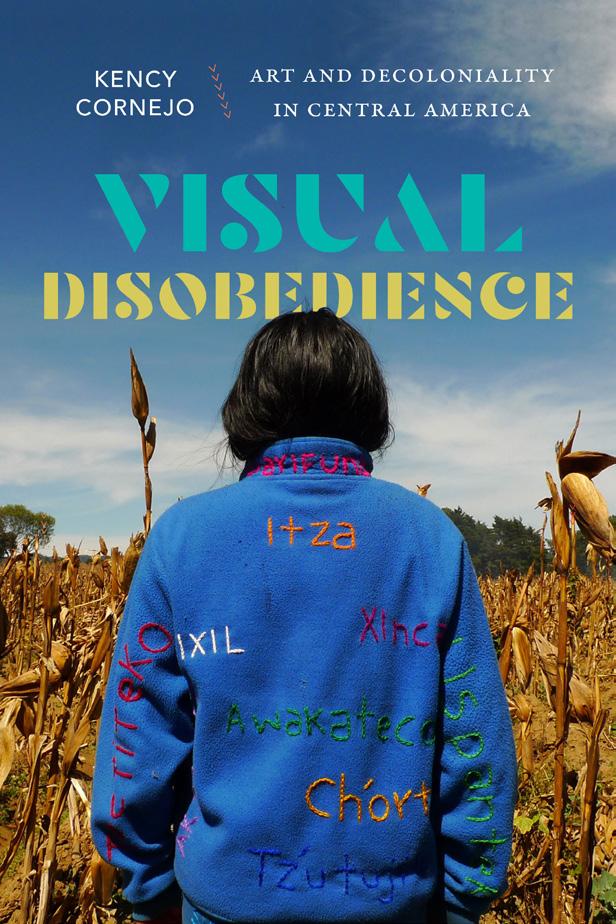
October 2024
312 pages
Contemporary Art / Latin American Studies
Rights: World
3 Duke University Press dukeupress.edu

March 2024
312 pages
General Interest / Environmental Studies
Rights: World

November 2023
152 pages
Music / Popular Music / American Studies / Cultural Studies
Rights: World
Escaping Nature
How to Survive Global Climate Change
ORRIN H. PILKEY, CHARLES O. PILKEY, LINDA P. PILKEY-JARVIS, NORMA J. LONGO, KEITH C. PILKEY, FRED B. DODSON, AND HANNAH L. HAYES
Industrial and agricultural greenhouse gas emissions are rapidly warming Earth’s climate, unleashing rising seas, ocean acidification, melting permafrost, powerful storms, wildfires, floods, deadly heat waves, droughts, tsunamis, food shortages, and armed conflict over shrinking water supplies while reducing nutritional levels in crops. Billions of people will become climate refugees. Hotter temperatures will allow tropical diseases to spread into temperate regions. Higher levels of CO2, allergens, dust, and other particulate matter will impair our physical and mental health and even reduce our cognitive abilities. Climate change disproportionately affects the world’s poor. It also harms Nature, and could ultimately trigger a sixth mass extinction. In Escaping Nature, Orrin H. Pilkey and his coauthors offer concrete suggestions for how to respond to the threats posed by global climate change. They argue that while we wait for the world’s governments to get serious about mitigating climate change we can adapt to a hotter world through technological innovations, behavioral changes, naturebased solutions, political changes, and education.
Orrin H. Pilkey is Emeritus James B. Duke Professor of Earth and Ocean Sciences at Duke University and the author and coauthor of many books. Charles O. Pilkey is a former geologist turned freelance sculptor, writer, and illustrator. Linda P. Pilkey-Jarvis is a geologist and coauthor with Orrin H. Pilkey of two books. Norma J. Longo, a geologist and photographer, is coauthor with Pilkey of several books on coastal issues. Keith C. Pilkey, an attorney concerned with legal issues of coastal development, is coauthor with Orrin H. Pilkey of two books about sea level rise. Fred B. Dodson is a real estate developer who manages his organization’s affordable housing development activities. Hannah L. Hayes is a scholar of climate justice, sustainable development, and disaster capitalism.
Old Town Road CHRIS MOLANPHY
In Old Town Road, Chris Molanphy considers Lil Nas X’s debut single as pop artifact, chart phenomenon, and cultural watershed. “Old Town Road” was more than a massive hit, with the most weeks at No. 1 in Billboard Hot 100 history. It is also a prism through which to track the evolution of popular music consumption and the ways race influences how the music industry categorizes songs and artists. By both lionizing and satirizing genre tropes—it’s a country song built from an alternative rock sample, a hip-hop song in which nobody raps, a comical song that transcends novelty, and a queer anthem—Lil Nas X troubles the very idea of genre. Ultimately, Molanphy shows how “Old Town Road” channeled decades of Americana to point the way toward our cultural future.
Chris Molanphy is a columnist for Slate and the host of the Hit Parade podcast. He has written for publications including Rolling Stone, Pitchfork, New York Magazine, NPR Music, the Village Voice, and others. He is author of Kurt Cobain: Voice of a Generation
4
Live Dead
The Grateful Dead, Live Recordings, and the Ideology of Liveness JOHN BRACKETT
The Grateful Dead were one of the most successful live acts of the rock era. Performing more than 2,300 shows between 1965 and 1995, the Grateful Dead’s reputation as a “live band” was—and continues to be—sustained by thousands of live concert recordings from every era of the group’s long and colorful career. In Live Dead, musicologist John Brackett examines how live recordings—from the group’s official releases to fan-produced tapes, bootlegs to “Betty Boards,” and Dick’s Picks to From the Vault—have shaped the general history and popular mythology of the Grateful Dead for more than fifty years. Drawing on a diverse array of materials and documents contained in the Grateful Dead Archive, Live Dead details how live recordings became meaningful among the band and their fans not only as sonic souvenirs of past musical performances but also as expressions of assorted ideals, including notions of “liveness,” authenticity, and the power of recorded sound.
John Brackett is an independent scholar and author of John Zorn: Tradition and Transgression, and coeditor of The Routledge Companion to Popular Music Analysis: Expanding Approaches
Get Shown the Light
Improvisation and Transcendence in the Music of the Grateful Dead
MICHAEL KALER
Of all the musical developments of rock in the 1960s, one in particular fundamentally changed the music’s structure and listening experience: the incorporation of extended improvisation into live performances. While many bands—including Cream, Pink Floyd, and the Velvet Underground—stretched out their songs with improvisations, no band was more identified with the practice than the Grateful Dead. In Get Shown the Light Michael Kaler examines how the Dead’s dedication to improvisation stemmed from their belief that playing in this manner enabled them to touch upon transcendence. Drawing on band testimonials and analyses of early recordings, Kaler traces how the Dead developed an approach to playing music that they believed would facilitate their spiritual goals. He focuses on the band’s early years, the significance of their playing Ken Kesey’s Acid Test parties, and their evolving exploration of the myriad musical and spiritual possibilities that extended improvisation afforded. Kaler demonstrates that the Grateful Dead developed a radical new way of playing rock music as a means to unleash the spiritual and transformative potential of their music.
Michael Kaler is Associate Professor, teaching stream, at the Institute for the Study of University Pedagogy at the University of Toronto Mississauga and author of Flora Tells a Story: The Apocalypse of Paul and Its Contexts

December 2023
232 pages
Music / Popular Music / American Studies / Cultural Studies
Rights: World
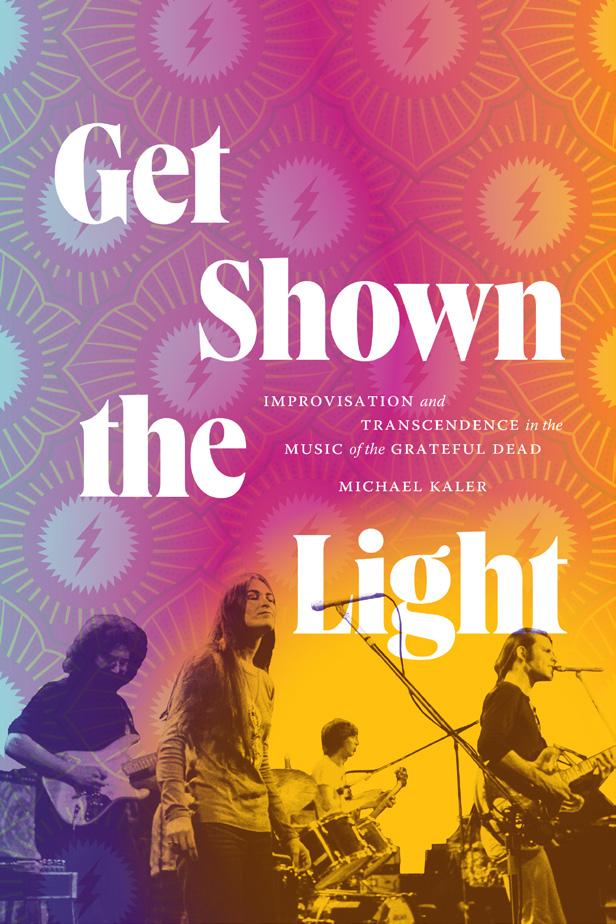
November 2023
304 pages
General Interest / Music / Popular Music / Religious Studies Rights: World
5
University Press dukeupress.edu
Duke

February 2024
208 pages
Black Feminism / Art Criticism
Rights: World
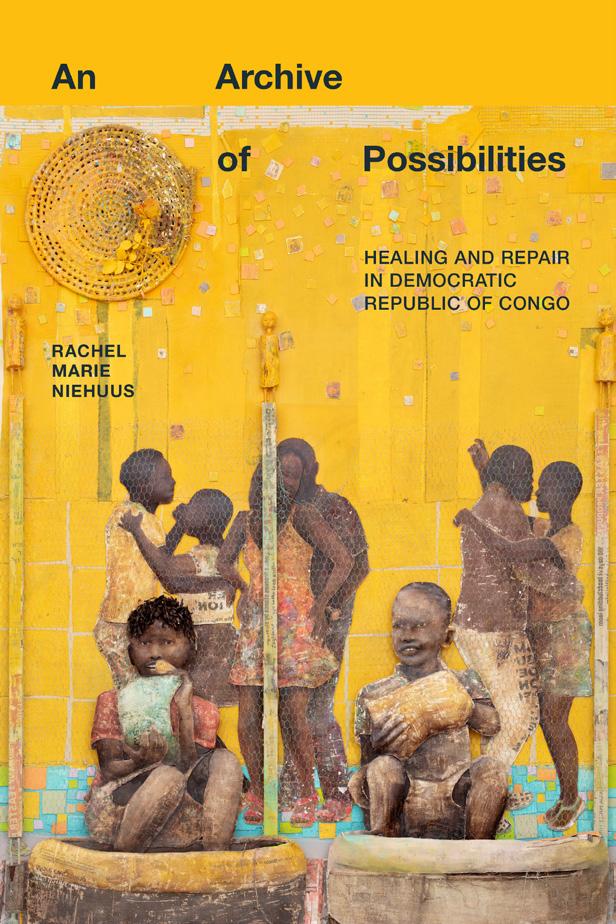
January 2024
216 pages
Black Thought / Medical Anthropology / African Studies
Rights: World
Between Shadows and Noise
Sensation, Situatedness, and the Undisciplined AMBER JAMILLA MUSSER
In Between Shadows and Noise Amber Jamilla Musser theorizes sensation as a Black feminist method for aesthetic interpretation and criticism that uses the knowledges held by the body to access the unrepresentable. Thinking through Blackness, empire, and colonialism, Musser examines artworks ranging from Ming Smith’s Flamingo Fandango, Jordan Peele’s Us, and Katherine Dunham’s Shango to Samita Sinha’s This ember state, Titus Kaphar’s A Pillow for Fragile Fictions, and Teresita Fernández’s Puerto Rico (Burned) 6. She engages with these works from an embodied situatedness to grapple with the questions and sensations of racialization and difference that the works produce. Throughout, Musser rethinks how we consider the relationships between race, representation, and politics by dwelling in those spaces and concepts that elude Western norms of representation, objectivity, and logic. In so doing, she explores ways of being and knowing that exceed overdetermined parameters while offering a blueprint for sensing, imagining, and living otherwise.
Amber Jamilla Musser is Professor of English at the Graduate Center, City University of New York, and author of Sensual Excess: Queer Femininity and Brown Jouissance and Sensational Flesh: Race, Power, and Masochism
An Archive of Possibilities
Healing and Repair in Democratic Republic of Congo RACHEL MARIE NIEHUUS
In An Archive of Possibilities, anthropologist and surgeon Rachel Marie Niehuus explores possibilities of healing and repair in the eastern Democratic Republic of Congo against a backdrop of 250 years of Black displacement, enslavement, death, and chronic war. Niehuus argues that in a context in which violence characterizes everyday life, Congolese have developed innovative and imaginative ways to live amid and mend from repetitive harm. Drawing on ethnographic fieldwork and the Black critical theory of Achille Mbembe, Christina Sharpe, Alexis Pauline Gumbs and others, Niehuus explores the renegotiation of relationships with land as a form of public healing, the affective experience of living in insecurity, the hospital as a site for the socialization of pain, the possibility of necropolitical healing, and the uses of prophesy to create collective futures. By considering the radical nature of cohabitating with violence, Niehuus demonstrates that Congolese practices of healing imagine and articulate alternative ways of living in a global regime of antiblackness.
Rachel Marie Niehuus is Surgical Critical Care Fellow in the Department of Traumatology and Surgical Critical Care at the University of Pennsylvania.
6
A History of Argentina
From the Spanish Conquest to the Present EZEQUIEL ADAMOVSKY
In A History of Argentina, originally published in Spanish in 2020, Ezequiel Adamovsky presents over five hundred years of Argentine economic, political, social, and cultural history. Adamovsky highlights the experiences of women, Indigenous communities, and other groups that have traditionally been left out of the historical archive. He focuses on harmful aspects of Spanish colonization such as gender subjugation, the violence enacted in the name of the Catholic Church, the role of the economy as it shifted from the encomienda system into modern industrialization, and the devastating effects of slavery, violence, and disease brought to the region by Spanish colonizers. Adamovsky also discusses Argentina’s independence and territorial consolidation, the first democratic elections in 1916, military coups, Peronism, democratization and the neoliberal reforms of the 1980s, and many other facets of Argentine life up to the 2019 presidential election. Concise, accessible, and comprehensive, A History of Argentina is an essential guide to this nation.
Ezequiel Adamovsky is Principal Researcher at CONICET (National Council for Scientific and Technological Research), Professor of History at the Universidad Nacional de San Martín, and the author of several books in Spanish.
Unspooled
How the Cassette Made Music Shareable ROB DREW
Well into the new millennium, the analog cassette tape continues to claw its way back from obsolescence. New cassette labels emerge from hipster enclaves while the cassette’s likeness pops up on T-shirts, coffee mugs, belt buckles, and cell phone cases. In Unspooled, Rob Drew traces how a lowly, hissy format that began life in office dictation machines and cheap portable players came to be regarded as a token of intimate expression through music and a source of cultural capital. Drawing on sources ranging from obscure music zines to transcripts of Congressional hearings, Drew examines a moment in the early 1980s when music industry representatives argued that the cassette encouraged piracy. At the same time, 1980s indie rock culture used the cassette as a symbol to define itself as an outsider community. Indie’s love affair with the cassette culminated in the mixtape, which advanced indie’s image as a gift economy. By telling the cassette’s long and winding history, Drew demonstrates that sharing cassettes became an acceptable and meaningful mode of communication that initiated rituals of independent music recording, re-recording, and gifting.
Rob Drew is Professor of Communication at Saginaw Valley State University and author of Karaoke Nights: An Ethnographic Rhapsody

March 2024
360 pages
Politics / History / Latin American History / Latin American Studies
Rights: World

March 2024
232 pages
Music / Popular Music / Media Studies / Cultural Studies
Rights: World
7 Duke University Press dukeupress.edu

April 2024
192 pages
Literature
Rights: World

January 2024
264 pages
Legal Studies / Critical Theory
Rights: World
Sound and Silence
My Experience with China and Literature
LIANKE YAN
TRANSLATED AND WITH AN INTRODUCTION BY CARLOS ROJAS
Yan Lianke is a world-renowned author of novels, short stories, and essays whose provocative and nuanced writing explores the reality of everyday life in contemporary China. In Sound and Silence, Yan compares his literary project to a blind man carrying a flashlight whose role is to help others perceive the darkness that surrounds them. Often described as China’s most censored author, Yan reflects candidly on literary censorship in contemporary China. He outlines the Chinese state’s project of national amnesia that suppresses memories of past crises and social traumas. Although being banned in China is often a selling point in foreign markets, Yan argues that there is no requisite correlation between censorship and literary quality. Among other topics, Yan also examines the impact of American literature on Chinese literature in the 1980s and 1990s. Encapsulating his perspectives on life, writing, and literary history, Sound and Silence includes an introduction by translator Carlos Rojas and an afterword by Yan.
Yan Lianke is the author of Discovering Fiction, also published by Duke University Press, as well as Hard Like Water, The Day the Sun Died, The Explosion Chronicles, and many other books. Winner of the Franz Kafka Prize and a two-time finalist for the Man Booker International Prize, Yan teaches at Renmin University in Beijing and Hong Kong University of Science and Technology. Carlos Rojas is Professor of Modern Chinese Cultural Studies at Duke University and translator of several of Yan’s novels.
Struggles for the Human Violent Legality and the Politics of Rights
LARA MONTESINOS COLEMAN
In Struggles for the Human, Lara Montesinos Coleman blends ethnography, political philosophy, and critical theory to reorient debates on human rights through attention to understandings of legality, ethics, and humanity in anticapitalist and decolonial struggle. Drawing on her extensive involvement with grassroots social movements in Colombia, Coleman observes that mainstream expressions of human rights have become counterparts to capitalist violence, even as this discourse disavows capitalism’s deadly implications. She rejects claims that human rights are inherently tied to capitalism, liberalism, or colonialism, instead showing how human rights can be used to combat these forces. Coleman demonstrates that social justice struggles that are rooted in marginalized communities’ lived experiences can reframe human rights in order to challenge oppressive power structures and offer a blueprint for constructing alternative political economies. By examining the practice of redefining human rights away from abstract universals and contextualizing them within concrete struggles for justice, Coleman reveals the transformative potential of human rights and invites readers to question and reshape dominant legal and ethical narratives.
Lara Montesinos Coleman is Reader in International Relations, Law, and Development and Director of the Centre for Global Political Economy at the University of Sussex and coeditor of Situating Global Resistance: Between Discipline and Dissent
8
Subterranean Matters
Cooperative Mining and Resource Nationalism in Plurinational Bolivia
ANDREA MARSTON
In Subterranean Matters, Andrea Marston examines the ongoing history of Bolivian mining cooperatives, an economic formation that has been central to Bolivian politics and to the country’s economy. Marston outlines how mining cooperatives occupy a contradictory place in Bolivian politics. They were major backers of left-wing president Evo Morales in 2006 and participated significantly in the crafting of the constitution that would declare Bolivia a plurinational state. At the same time, many Bolivians regard mining cooperatives as thieves because they derive personal profits from the subterranean mineral resources that are the legal inheritance of all Bolivians. Through extensive fieldwork underground in Bolivian cooperative mines, Marston explores how these miners—and the subterranean spaces they occupy—embody the tensions at the heart of Bolivia’s plurinational project. Marston shows how persistent commitment to nation and nationalism is a shared feature of left-wing and right-wing politics in Bolivia, illustrating how bodies, identities, and resources fit into this complex political matrix.
Andrea Marston is Assistant Professor of Geography at Rutgers University.
The Color Black
Enslavement and Erasure in Iran
BEETA BAGHOOLIZADEH
In The Color Black, Beeta Baghoolizadeh traces the twin processes of enslavement and erasure of Black people in Iran during the nineteenth and twentieth centuries. She illustrates how geopolitical changes and technological advancements in the nineteenth century made enslaved East Africans uniquely visible in their servitude in wealthy and elite Iranian households. During this time, Blackness, Africanness, and enslavement became intertwined—and interchangeable—in Iranian imaginations. After the end of slavery in 1929, the implementation of abolition involved an active process of erasure on a national scale, such that a collective amnesia regarding slavery and racism persists today. The erasure of enslavement resulted in the erasure of Black Iranians as well. Baghoolizadeh draws on photographs, architecture, theater, circus acts, newspapers, films, and more to document how the politics of visibility framed discussions around enslavement and abolition during the nineteenth and twentieth centuries. In this way, Baghoolizadeh makes visible the people and histories that were erased from Iran and its diaspora.
Beeta Baghoolizadeh is Associate Research Scholar in the Sharmin and Bijan Mossavar-Rahmani Center for Iran and Persian Gulf Studies at Princeton University.

February 2024
312 pages
Environmental Studies / Latin American Studies / Geography
Rights: World
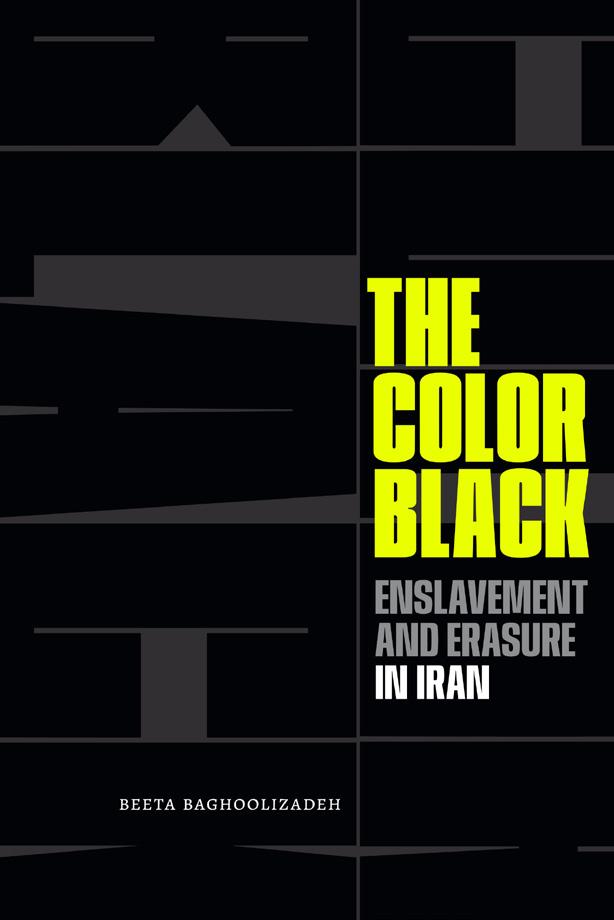
March 2024
248 pages
Middle East Studies / Black Studies / History
Rights: World
9 Duke University Press dukeupress.edu

April 2024
256 pages
Literary Studies / Indigenous Studies / Environment Rights: World

March 2024
312 pages
Latin American History
Rights: World
The Ocean on Fire
Pacific Stories from Nuclear Survivors and Climate Activists ANAÏS MAURER
Bombarded with the equivalent of one Hiroshima bomb a day for half a century, Pacific people have long been subjected to man-made cataclysm. Well before climate change became a global concern, nuclear testing brought about untimely death, widespread diseases, forced migration, and irreparable destruction to the shores of Oceania. In The Ocean on Fire, Anaïs Maurer analyzes the Pacific literature that incriminates the environmental racism behind radioactive skies and rising seas. Maurer identifies strategies of resistance uniting the region by analyzing an extensive multilingual archive of decolonial Pacific art in French, Spanish, English, Tahitian, and Uvean, ranging from literature to songs and paintings. She shows how Pacific nuclear survivors’ stories reveal an alternative vision of the apocalypse: instead of promoting individualism and survivalism, they advocate mutual assistance, cultural resilience, South-South transnational solidarities, and Indigenous women’s leadership. Drawing upon their experience resisting both nuclear colonialism and carbon imperialism, Pacific storytellers offer compelling narratives to nurture the land and each other in times of global environmental collapse.
Anaïs Maurer is Assistant Professor of French and Comparative Literature at Rutgers University.
The Prestes Column
An Interior History of Modern Brazil JACOB BLANC
In The Prestes Column, Jacob Blanc offers a new interpretation of the legendary rebellion, in which a band of rebel officers and soldiers marched fifteen thousand miles through the vast interior regions of Brazil between 1924 and 1927. Blanc’s analysis of the Prestes Column is a showcase of what he calls “interior history.” At a pivotal moment in national politics, the long march of the column came to embody the constructed duality of Brazil’s interior: a space that was seen by coastal elites as simultaneously backward—in relation to the more modern coast—and dormant, an expanse of untapped potential waiting to be brought into the nation. Drawing on a range of materials, from officers’ memoirs and local eyewitness accounts to physical memorials and government archives, Blanc’s framework of interior history helps explain the column’s initial rise to fame and also its enduring legacy across the twentieth century, offering a new approach for the study of space and nation.
Jacob Blanc is an Associate Professor of History and International Development Studies at McGill University, author of Before the Flood: The Itaipu Dam and the Visibility of Rural Brazil, also published by Duke University Press, and coeditor of Big Water: The Making of the Borderlands between Brazil, Argentina, and Paraguay
10
The Theological Metaphors of Marx
ENRIQUE DUSSEL
TRANSLATED BY CAMILO PÉREZ-BUSTILLO WITH A FOREWORD BY
EDUARDO MENDIETA
In The Theological Metaphors of Marx, Enrique Dussel provides a groundbreaking combination of Marxology, theology, and ethical theory. Dussel shows that Marx unveils the theology of capitalism in his critique of commodity fetishization. Capitalism constitutes an idolatry of the commodity that undergirds the capitalist expropriation of labor. Dussel examines Marx’s early writings on religion and fetishism and proceeds through what Dussel refers to as the four major drafts of Capital, ultimately situating Marx’s philosophical, economic, ethical, and historical insights in relation to the theological problems of his time. Dussel notes a shift in Marx’s underlying theological schema from a political critique of the state to an economic critique of the commodity fetish as the Devil, or anti-God, of modernity. Marx’s thought, impact, and influence cannot be fully understood without Dussel’s historic reinterpretation of the theological origins and implications of Marx’s critiques of political economy and politics.
Enrique Dussel (1934–2023) was Emeritus Professor, Universidad Autonoma Metropolitana-Iztapalapa and the author of many books, including Twenty Theses on Politics and Ethics of Liberation: In the Age of Globalization and Exclusion, both also published by Duke University Press. Camilo Pérez-Bustillo is coauthor of Human Rights, Hegemony, and Utopia in Latin America Eduardo Mendieta is Professor of Philosophy and Latina/o Studies at Pennsylvania State University.
Waiting for the Cool Moon
Anti-imperialist Struggles in the Heart of Japan's Empire
A Study of the Weatherhead East Asian Institute
WENDY MATSUMURA
In Waiting for the Cool Moon Wendy Matsumura interrogates the erasure of colonial violence at the heart of Japanese nation-state formation. She critiques Japan studies’ role in this effacement and contends that the field must engage with anti-Blackness and anti-Indigeneity as the grounds on which to understand imperialism, colonialism, fascism, and other forces that shape national consciousness. Drawing on Black radical thinkers’ critique of the erasure of the Middle Passage in universalizing theories of modernity’s imbrication with fascism, Matsumura traces the consequences of the Japanese empire’s categorization of people as human and less-than-human as manifested in the 1920s and 1930s, and the struggles of racialized and colonized people against imperialist violence. She treats the archives safeguarded by racialized, colonized women throughout the empire as traces of these struggles, including the work they performed to keep certain stories out of view. Matsumura demonstrates that tracing colonial sensibility and struggle is central to grappling with their enduring consequences for the present.
Wendy Matsumura is Associate Professor of History at the University of California, San Diego, and author of The Limits of Okinawa: Japanese Capitalism, Living Labor, and Theorizations of Community, also published by Duke University Press.
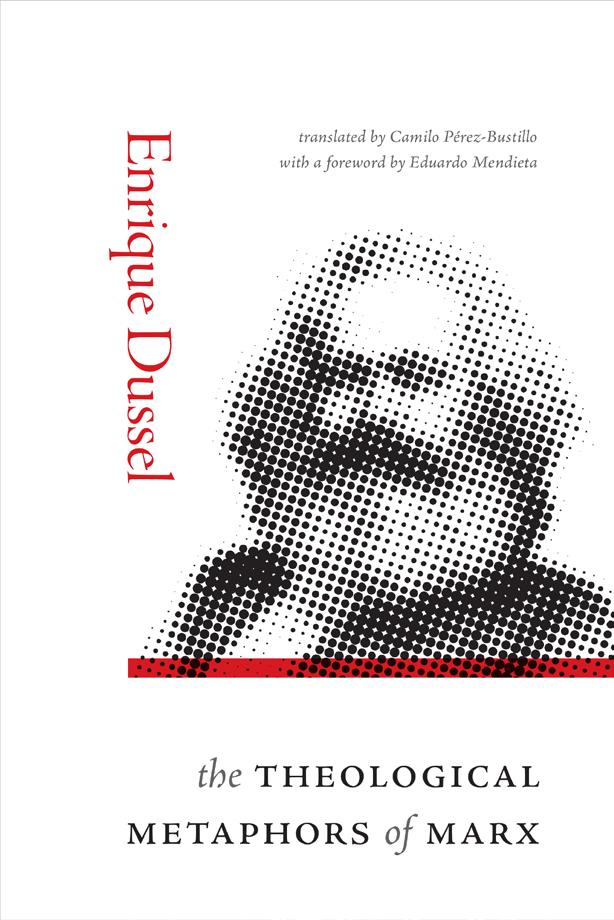
April 2024
288 pages
Theology / Marxism / Philosophy Rights: World
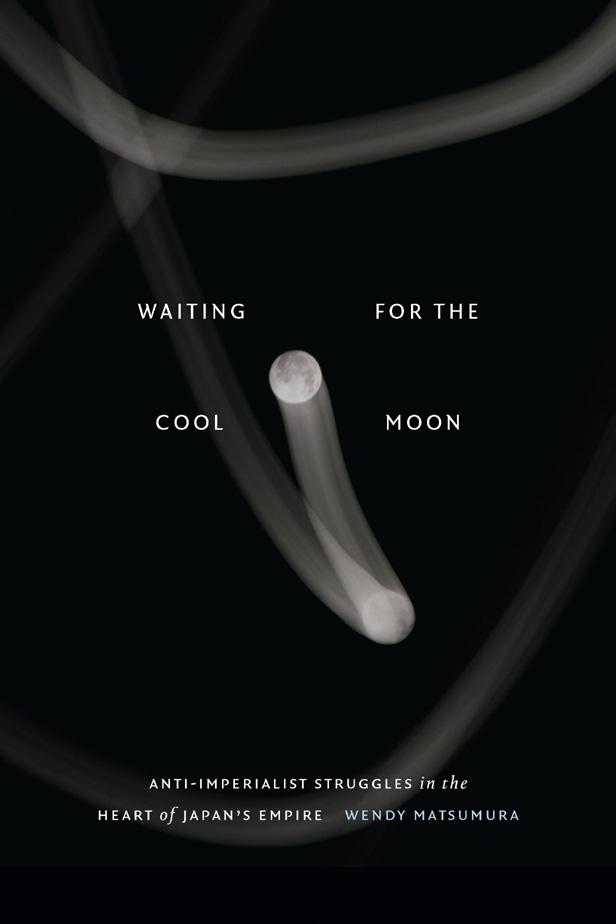
January 2024
288 pages
Postcolonial and Colonial Studies / Theory and Philosophy / Asian Studies Rights: World
11
dukeupress.edu
Duke University Press

February 2024
400 pages
Anthropology / Film, Asian Studies
Rights: World

February 2024
360 pages
Music / Media Studies / Cultural Studies
Rights: World
The Archival Afterlives of Philippine Cinema
BLISS CUA LIM
Drawing on cultural policy, queer and feminist theory, materialist media studies, and postcolonial historiography, Bliss Cua Lim analyzes the crisis-ridden history of Philippine film archiving—a history of lost films, limited access, and collapsed archives. Rather than denigrate underfunded Philippine audiovisual archives in contrast to institutions in the global North, The Archival Afterlives of Philippine Cinema shows how archival practices of making do can inspire alternative theoretical and historical approaches to cinema. Lim examines formal state and corporate archives, analyzing restorations of the last nitrate film and a star-studded lesbian classic as well as archiving under the Marcos dictatorship. She also foregrounds informal archival efforts: a cinephilic video store specializing in vintage Tagalog classics; a microcuratorial initiative for experimental films; and guerilla screenings for rural Visayan audiences. Throughout, Lim centers the improvisational creativity of audiovisual archivists, collectors, advocates, and amateurs who embrace imperfect access in the face of inhospitable conditions.
Bliss Cua Lim is Professor of Cinema Studies at the University of Toronto and the author of Translating Time: Cinema, the Fantastic, and Temporal Critique, also published by Duke University Press.
Streaming Music, Streaming Capital
ERIC DROTT
In Streaming Music, Streaming Capital, Eric Drott analyzes the political economy of online music streaming platforms. Attentive to the way streaming has reordered the production, circulation, and consumption of music, Drott examines key features of this new musical economy, including the roles played by data collection, playlisting, new methods of copyright enforcement, and the calculation of listening metrics. Yet because streaming underscores how uneasily music sits within existing regimes of private property, its rise calls for a broader reconsideration of music’s complex and contradictory relation to capitalism. Drott's analysis is not simply a matter of how music is formatted in line with dominant measures of economic value; equally important is how music eludes such measures, a situation that threatens to reduce music to a cheap, abundant resource. By interrogating the tensions between streaming’s benefits and pitfalls, Drott sheds light on music’s situation within digital capitalism, from growing concentrations of monopoly power and music’s use in corporate surveillance to issues of musical value, labor, and artist pay.
Eric Drott is Associate Professor of Music Theory at the University of Texas at Austin and author of Music and the Elusive Revolution: Cultural Politics and Political Culture in France, 1968–1981
12
The Rock of Arles
RICHARD KLEIN
Founded 2,600 years ago on a massive limestone eminence, the city of Arles has been the home of Roman emperors and captured slaves, pagan temples and Christian spires, bloody revolutionaries and powerful papists. In The Rock of Arles Richard Klein relays the history of the city as told to him by the Rock, its genius loci, which infallibly remembers every moment of its existence, from the Roman conquest of Gaul to the fall of feudal aristocracy, from the domination of the Catholic Church to the present French representative democracy. The Rock’s contrarian and dissident history resurrects the memory of three of the city’s most radical yet largely forgotten revolutionary minds: Hellenistic philosopher Favorinus, medieval Hebrew poet Kalonymus ben Kalonymus, and subversive aristocrat Pierre-Antoine Antonelle. For the Rock, each figure represents a freethinking current running through Arlesian history which countered the reactionary, bigoted forces that governed the city for fifteen centuries. Erudite, witty, and opinionated, the Rock tells the story of Arles in order to sketch the broader canvas of European history while invoking the city’s possible future.
Richard Klein is Professor Emeritus of French Literature at Cornell University and author of Cigarettes Are Sublime, also published by Duke University Press, Jewelry Talks: A Novel Thesis, and Eat Fat
Platinum Bible of the Public Toilet
Ten Queer Stories
CUI ZI'EN
EDITED AND WITH AN INTRODUCTION BY
PETRUS LIU AND LISA ROFEL
Platinum Bible of the Public Toilet is the first English-language collection of short stories by Cui Zi’en, China’s most famous and controversial queer filmmaker, writer, scholar, and LGBTQ rights activist. Drawing on his own experiences growing up in socialist and postsocialist China, Cui presents ten queer coming-of-age stories of young boys and men as they explore their sexuality and desires. From a surreal fairytale depicting a ragtag crew of neighborhood boys in the throes of sexual awakening to a chronicle of the gender-bending and homoerotic entanglements of university students to romantic love triangle erotica to a story that examines teacher-student love and the norms of sex and age, Cui centers queer sexuality as a core part of human experience. Richly imaginative and vividly written, Platinum Bible of the Public Toilet portrays the emergence of queer cultures in postsocialist China while foregrounding the commitments to one’s erotic and passionate attractions even as they lead to cultural transgressions. This volume includes a preface by and an interview with the author.
Cui Zi’en is a film director, writer, and activist. He is Associate Professor at the Film Research Institute of the Beijing Film Academy. Petrus Liu is Associate Professor of Chinese and Comparative Literature at Boston University. Lisa Rofel is Professor Emerita of Anthropology at the University of California, Santa Cruz.

February 2024
176 pages
Literature and Literary Studies / History
Rights: World
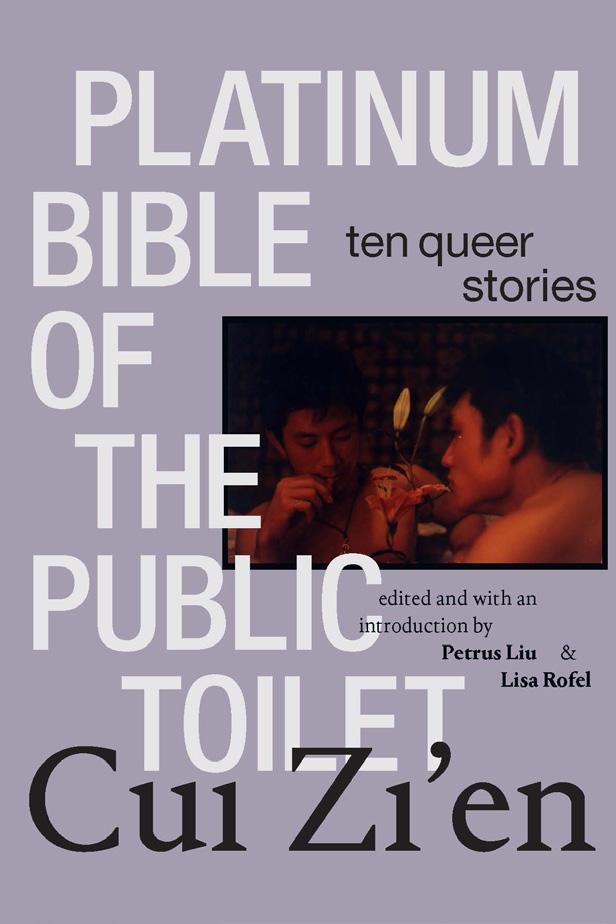
February 2024
312 pages
Gender and Sexuality / Literature and Literary Studies
Rights: World
Duke University Press dukeupress.edu
13

February 2024
248 pages
Science and Technology Studies / Cultural Studies / Environmental Studies
Rights: World

March 2024
448 pages
Music / Media Studies / Cultural Studies
Rights: World
Oceaning
Governing Marine Life with Drones ADAM FISH
Drones are revolutionizing ocean conservation. By flying closer and seeing more, drones enhance intimate contact between ocean scientists and activists and marine life. In the process, new dependencies between nature, technology, and humans emerge, and a paradox becomes apparent: Can we have a wild ocean whose survival is reliant upon technology? In Oceaning, Adam Fish answers this question through eight stories of piloting drones to stop the killing of porpoises, sharks, and seabirds and to check the vitality of whales, seals, turtles, and coral reefs. Drone conservation is not the end of nature. Instead, drone conservation results in an ocean whose flourishing both depends upon and escapes the control of technologies. Faulty technology, oceanic and atmospheric turbulence, political corruption, and the inadequacies of basic science serve to foil governance over nature. Fish contends that what emerges is an ocean/culture—a flourishing ocean that is distinct from but exists alongside humanity.
Adam Fish is a Scientia Associate Professor of Arts and the Media at the University of New South Wales, author of Technoliberalism and the End of Participatory Culture in the United States, and coauthor of Hacker States and After the Internet
At the Vanguard of Vinyl A Cultural History of the Long-Playing Record in Jazz DARREN MUELLER
In At the Vanguard of Vinyl, Darren Mueller examines how the advent of the long-playing record (LP) in 1948 revolutionized the recording and production of jazz in the 1950s. The LP’s increased fidelity and playback capacity allowed lengthy compositions and extended improvisations to fit onto a single record, ushering in a period of artistic exploration. Despite these innovations, LP production became another site of negotiating the uneven power relations of a heavily segregated music industry. Exploring how musicians, producers, and other industry professionals navigated these dynamics, Mueller contends that the practice of making LPs significantly changed how jazz was created, heard, and understood in the 1950s and beyond. By attending to the details of audio production, he reveals how Black musicians such as Louis Armstrong, Miles Davis, Duke Ellington, and Charles Mingus worked to redefine prevailing notions of race and cultural difference within the United States. Mueller demonstrates that the LP emerges as a medium of sound and culture that maps onto the more expansive sonic terrain of Black modernity in the 1950s.
Darren Mueller is Assistant Professor of Musicology at the Eastman School of Music, University of Rochester, and coeditor of Digital Sound Studies, also published by Duke University Press.
14
The Fold
From Your Body to the Cosmos
LAURA U. MARKS
In The Fold, Laura U. Marks offers a practical philosophy and aesthetic theory for living in an infinitely connected cosmos. Drawing on the theories of Leibniz, Glissant, Deleuze, and theoretical physicist David Bohm—who each conceive of the universe as being folded in on itself in myriad ways—Marks contends that the folds of the cosmos are entirely constituted of living beings. From humans to sandwiches to software to stars, every entity is alive and occupies its own private enclosure inside the cosmos. Through analyses of fiction, documentary and experimental movies, interactive media, and everyday situations, Marks outlines embodied methods for detecting and augmenting the connections between each living entity and the cosmos. She shows that by affectively mediating with the ever-shifting folded relations within the cosmos, it is possible to build “soul-assemblages” that challenge information capitalism, colonialism, and other power structures and develop new connections with the infinite. With this guide for living within the enfolded and unfolding cosmos, Marks teaches readers to richly apprehend the world and to trace the processes of becoming that are immanent within the fold.
Laura U. Marks is Grant Strate University Professor at Simon Fraser University and author of The Skin of the Film: Intercultural Cinema, Embodiment, and the Senses, also published by Duke University Press, and Hanan al-Cinema: Affections for the Moving Image, among other books.
Camera Geologica
An Elemental History of Photography SIOBHAN ANGUS
In Camera Geologica Siobhan Angus tells the history of photography through the minerals upon which the medium depends. Challenging the emphasis on immateriality in discourses on photography, Angus focuses on the inextricable links between image-making and resource extraction, revealing how the mining of bitumen, silver, platinum, iron, uranium, and rare earth elements is a precondition of photography. Photography, Angus contends, begins underground and, in photographs of mines and mining, frequently returns there. Through a materials-driven analysis of visual culture, she illustrates histories of colonization, labor, and environmental degradation to expose the ways in which photography is enmeshed within and enables global extractive capitalism. Angus places nineteenth-century photography in dialogue with digital photography and its own entangled economies of extraction, demonstrating the importance of understanding photography’s complicity in the economic, geopolitical, and social systems that order the world.
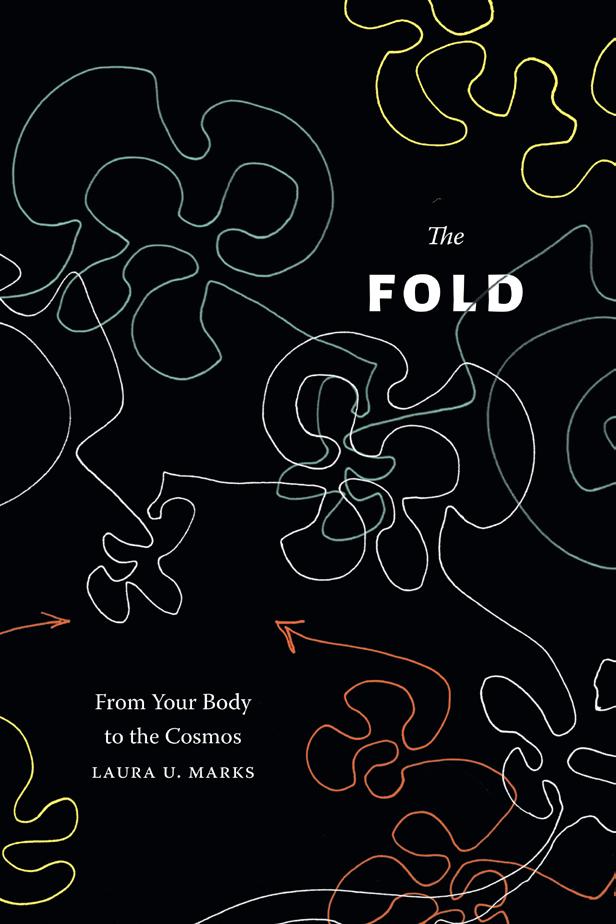
March 2024
344 pages
Theory and Philosophy / Media Studies / Art and Visual Culture Rights: World

Siobhan Angus is Assistant Professor of Communication and Media Studies at Carleton University. March 2024
328 pages
Science and Technology Studies / Art and Visual Culture Rights: World
15 Duke University Press dukeupress.edu

May 2023
504 pages
African Studies / Marxist Theory / Black Studies Rights: World

March 2024
256 pages
History / Anthropology / Postsocialism
Rights: World
Apartheid Remains SHARAD CHARI
In Apartheid Remains, Sharad Chari explores how people handle the remains of segregation and apartheid in South Africa as witnessed through portals in an industrial-residential landscape in the Indian Ocean city of Durban. Through long-term historical and ethnographic research, Chari portrays South Africa’s twentieth century as a palimpsest that conserves the remains of multiple pasts, including attempts by the racial state to remake territory and personhood, while instead deepening spatial contradictions and struggles. When South Durban’s denizens collectively mobilized in various ways, including through Black Consciousness politics and other attempts at refusing the ruinous articulation of biopolitics, sovereignty, and capital, submerged traditions of the Indian Ocean and the Black Atlantic offered them powerful resources. Of these, Chari reads Black documentary photography as particularly insightful audiovisual blues critique. At the tense interface of Marxism, feminism, and Black study, he offers a method and form of geography attentive to the spatial and embodied remains of history. Apartheid Remains looks out from South Durban to imaginations of abolition of all forms of racial capitalism and environmental suffering that define our planetary predicament.
Sharad Chari is Associate Professor of Geography and Critical Theory at the University of California, Berkeley, and author of Gramsci at Sea and Fraternal Capital: Peasant-Workers, Self-Made Men, and Globalization in Provincial India
Utopia of the Uniform Affective Afterlives of the Yugoslav People's Army
TANJA PETROVI c
The compulsory service for young men in the Yugoslav People’s Army (JNA) created bonds across ethnic, religious, and social lines. These bonds persisted even after the horrific violence of the 1990s, in which many of these men found themselves on opposite sides of the front lines. In Utopia of the Uniform, Tanja Petrović draws on memories and material effects of dozens of JNA conscripts to show how their experience of military service points to futures, forms of collectivity, and relations between the state and the individual different from those that prevailed in the post-Yugoslav reality. Petrović argues that the power of repetitive, ritualized, and performative practices that constituted military service in the JNA provided a framework for drastically different men to live together and befriend each other. While Petrović and her interlocutors do not idealize the JNA, they acknowledge its capacity to create interpersonal relationships and affective bonds that brought the key political ideas of collectivity, solidarity, egalitarianism, education, and comradeship into being.
Tanja Petrović is Head of the Institute of Culture and Memory Studies at the Research Center of the Slovenian Academy of Sciences and Arts. She is the author of numerous books, including A Long Way Home: Representations of the Western Balkans in Political and Media Discourses
16
Violent Intimacies
The Trans Everyday and the Making of an Urban World
ASLI ZENGIN
In Violent Intimacies, Aslı Zengin traces how trans people in Turkey creatively negotiate and resist everyday cisheteronormative violence. Drawing on the history and ethnography of the trans communal life in Istanbul, Zengin develops an understanding of cisheteronormative violence that expands beyond sex, gender and sexuality. She shows how cisheteronormativity forms a connective tissue among neoliberal governmentality, biopolitical and necropolitical regimes, nationalist religiosity and authoritarian management of social difference. As much as trans people are shaped by these processes, they also transform them in intimate ways. Transness in Turkey provides an insightful site for developing new perspectives on statecraft, securitization and surveillance, family and kin-making, urban geography, and political life. Zengin offers the concept of violent intimacies to theorize this entangled world of the trans everyday where violence and intimacy are co-constitutive. Violent intimacies emerge from trans people’s everyday interactions with the police, religious and medical institutions, street life, family and kinship, and trans femicides and funerals. The dynamic of violent intimacies prompts new understandings of violence and intimacy and the world-making struggles of trans people in a Middle Eastern context.
Aslı Zengin is Assistant Professor of Women’s, Gender, and Sexuality Studies at Rutgers University.
Fugitive Time
Global Aesthetics and the Black Beyond MATTHEW OMELSKY
In Fugitive Time, Matthew Omelsky theorizes the embodied experience of time in twentieth- and twenty-first-century black artforms from across the world. Through the lens of time, he charts the sensations and coursing thoughts that accompany desires for freedom as they appear in the work of artists as varied as Toni Morrison, Yvonne Vera, Aimé Césaire, and Issa Samb. “Fugitive time” names a distinct utopian desire directed at the anticipated moment when the body and mind have been unburdened of the violence that has consumed black life globally for centuries, bringing with it a new form of being. Omelsky shows how fugitive time is not about attaining this transcendent release but is instead about sustaining the idea of it as an ecstatic social gathering. From the desire for ethereal queer worlds in the Black Audio Film Collective’s Twilight City to Sun Ra’s transformation of nineteenth-century scientific racism into an insurgent fugitive aesthetic, Omelsky shows how fugitive time evolves and how it remains a dominant form of imagining freedom in global black cultural expression.
Matthew Omelsky is Assistant Professor of English at the University of Rochester.
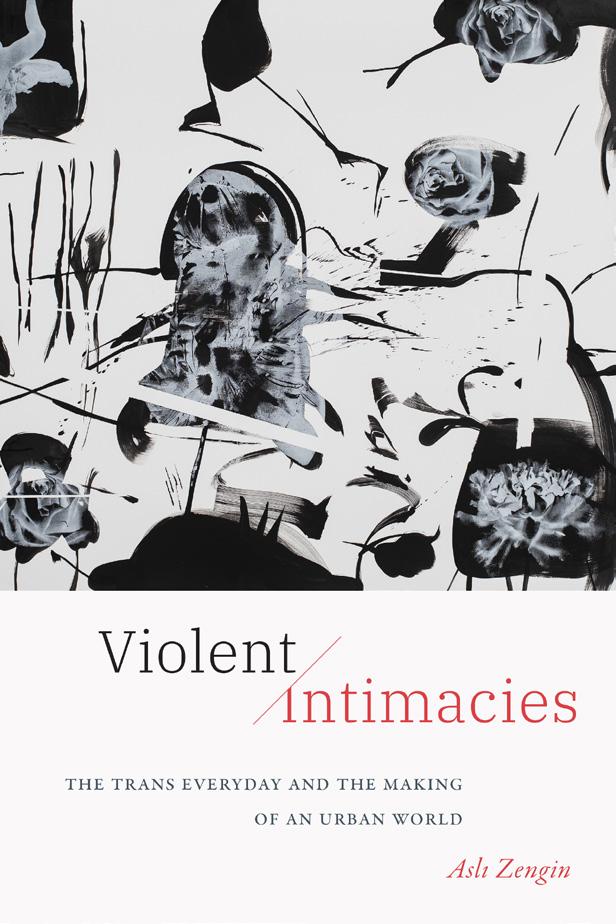
February 2024
296 pages
Anthropology / Trans Studies / Middle East Studies
Rights: World

December 2023
280 pages
Literature and Literary Studies / Theory and Philosophy / African American Studies and Black Diaspora
Rights: World
17 Duke University
dukeupress.edu
Press
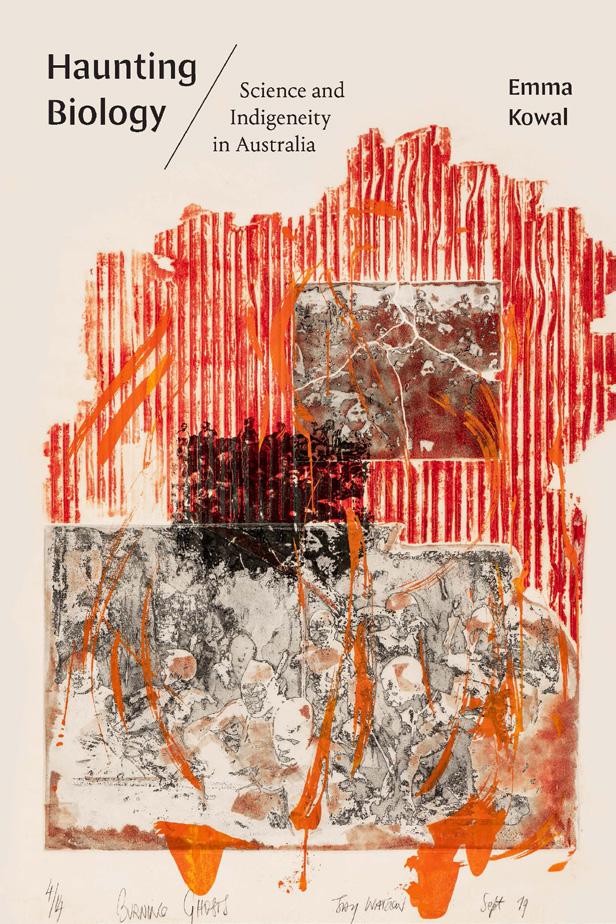
November 2023
264 pages
Native and Indigenous Studies / Science and Technology Studies / Anthropology Rights: World

Haunting Biology
Science and Indigeneity in Australia
EMMA KOWAL
In Haunting Biology Emma Kowal recounts the troubled history of Western biological studies of Indigenous Australians and asks how we now might see contemporary genomics, especially that conducted by Aboriginal and Torres Strait Islander scientists. Kowal illustrates how the material persistence of samples over decades and centuries folds together the fates of different scientific methodologies. Blood, bones, hair, comparative anatomy, human biology, physiology, and anthropological genetics all haunt each other across time and space, together with the many racial theories they produced and sustained. The stories Kowal tells feature a variety of ghostly presences: a dead anatomist, a fetishized piece of hair hidden away in a war trunk, and an elusive white Indigenous person. By linking this history to contemporary genomics and twenty-first-century Indigeneity, Kowal outlines the fraught complexities, perils, and potentials of studying Indigenous biological difference in the twenty-first century. Emma Kowal is Alfred Deakin Professor of Anthropology at Deakin University, author of Trapped in the Gap: Doing Good in Indigenous Australia, and coeditor of Cryopolitics: Frozen Life in a Melting World
Borderland Dreams
The Transnational Lives of Korean Chinese Workers
JUNE HEE KWON
In Borderland Dreams June Hee Kwon explores the trajectory of the “Korean dream” that has fueled the massive migration of Korean Chinese workers from the Yanbian Korean Autonomous Prefecture in northeast China to South Korea since the early 1990s. Charting the interplay of bodies, money, and time, the ethnography reveals how these migrant workers, in the course of pursuing their borderland dreams, are transformed into a transnational ethnicized class. Kwon analyzes the persistent desire of Korean Chinese to “leave to live better” at the intersection between the neoliberalizing regimes of post-socialist China and post–Cold War South Korea. Scrutinizing the tensions and affinities among the Korean Chinese, North and South Koreans, and Han Chinese whose lives intertwine in the borderland, Kwon captures the diverse and multifaceted aspirations of Korean Chinese workers caught between the ascendant Chinese dream and the waning Korean dream.
June Hee Kwon is Associate Professor of Asian Studies at California State University, Sacramento. November 2023
256 pages
Sociology, Anthropology / Cultural Anthropology / Asian Studies / East Asia Rights: World
18
Trust Matters
Parsi Endowments in Mumbai and the Horoscope of a City LEILAH VEVAINA
Although numbering fewer than 60,000 in a city of more than 12 million people, Mumbai’s Parsi community is one of the largest private landowners in the city due to its network of public charitable trusts. In Trust Matters Leilah Vevaina explores the dynamics and consequences of this conjunction of religion and capital as well as the activities of giving, disputing, living, and dying it enables. As she shows, communal trusts are the legal infrastructure behind formal religious giving and ritual in urban India that influence communal life. Vevaina proposes the trusts as a horoscope of the city—a constellation of housing, temples, and other spaces providing possible futures. She explores the charitable trust as a technology of time, originating in the nineteenth century, one that structures intergenerational obligations for Mumbai’s Parsis, connecting past and present, the worldly and the sacred. By approaching Mumbai through the legal mechanism of the trust and the people who live within its bounds as well as those who challenge or support it, Vevaina offers a new pathway into exploring property, religion, and kinship in the urban global South.
Leilah Vevaina is Assistant Professor of Anthropology at the Chinese University of Hong Kong.
Beyond the Sovereign Self
Aesthetic Autonomy from the Avant-Garde to Socially Engaged Art
GRANT H. KESTER
In Beyond the Sovereign Self Grant H. Kester continues the critique of aesthetic autonomy begun in The Sovereign Self, showing how socially engaged art provides an alternative aesthetic with greater possibilities for critical practice. Instead of grounding art in its distance from the social, Kester shows how socially engaged art, developed in conjunction with forms of social or political resistance, encourages the creative capacity required for collective political transformation. Among others, Kester analyzes the work of conceptual artist Adrian Piper, experimental practices associated with the escrache tradition in Argentina, and indigenous Canadian artists such as Nadia Myre and Michèle Taïna Audette, showing how socially engaged art catalyzes forms of resistance that operate beyond the institutional art world. From the Americas and Europe to Iran and South Africa, Kester presents a historical genealogy of recent engaged art practices rooted in a deep history of cultural production, beginning with nineteenth-century political struggles and continuing into contemporary anticolonial resistance and other social movements.
Grant H. Kester is Professor of Art History at the University of California, San Diego, author of The Sovereign Self: Aesthetic Autonomy from the Enlightenment to the Avant-Garde and The One and the Many: Contemporary Collaborative Art in a Global Context, and coeditor of Collective Situations: Readings in Contemporary Latin American Art, 1995–2010, all also published by Duke University Press.

December 2023
224 pages
Sociology / Urban Studies / Anthropology / Cultural Anthropology / Asian Studies / South Asia
Rights: World

December 2023
296 pages
Theory and Philosophy / Art and Visual Culture / Art Criticism and Theory
Rights: World x Chinese (s)
19 Duke University Press dukeupress.edu

November 2023
240 pages
Queer Theory / Feminist Science Studies / Critical Ethnic Studies Rights: World

December 2023
224 pages
Medicine and Health / Public Health and Health Policy / Politics / History / U.S. History Rights: World
Making Gaybies
Queer Reproduction and Multiracial Feeling JAYA KEANEY
In Making Gaybies Jaya Keaney explores queer family making as a site of racialized intimacy. Drawing on interviews with queer families in Australia, Keaney traces the lived experiences of choice and constraint as these families seek to craft likeness with their future children and tell stories of chosen family made through love. Queer family building often involves multiracial and multicultural encounters, as intending parents take part in the global fertility industry. Keaney follows queer family making through reproductive technologies and highlights the confines of varied transnational reproductive markets and policies as well as changing formations of race, gender, sexuality, and kinship. Whether sharing the story of white gay men choosing Indian and Thai egg donors to make their surrogate-born children’s ethnicities visually distinct from their own or that of an Aboriginal lesbian and her white partner choosing a Cherokee donor from the United States to articulate a global Indigeneity, Keaney foregrounds the entwinement of reproduction, race, and affect. By focusing on queer family making, Keaney demonstrates how reproduction fosters a queer multiracial imaginary of kinship.
Jaya Keaney is Lecturer in Gender Studies at the University of Melbourne.
The Long War on Drugs
ANNE L. FOSTER
Since the early twentieth century, the United States has led a global prohibition effort against certain drugs in which production restriction and criminalization are emphasized over prevention and treatment as means to reduce problematic usage. This “war on drugs” is widely seen to have failed, and periodically decriminalization and legalization movements arise. Debates continue over whether the problems of addiction and crime associated with illicit use of drugs stem from their illegal status or the nature of the drugs themselves. In The Long War on Drugs Anne L. Foster explores the origin of the punitive approach to drugs and its continued appeal despite its obvious flaws. She provides a comprehensive overview, focusing not only on a political history of policy developments but also on changes in medical practices and understanding of drugs. Foster also outlines the social and cultural changes prompting different attitudes about drugs; the racial, environmental, and social justice implications of particular drug policies; and the international consequences of US drug policy.
Anne L. Foster is Associate Professor of History at Indiana State University, author of Projections of Power: The United States and Europe in Colonial Southeast Asia, 1919–1941, and coeditor of The American Colonial State in the Philippines: Global Perspectives, both also published by Duke University Press.
20
The Lettered Indian
Race, Nation, and Indigenous Education in Twentieth-Century Bolivia
BROOKE LARSON
Bringing into dialogue the fields of social history, Andean ethnography, and postcolonial theory, The Lettered Indian maps the moral dilemmas and political stakes involved in the protracted struggle over Indian literacy and schooling in the Bolivian Andes. Brooke Larson traces Bolivia’s major state efforts to educate its unruly Indigenous masses at key junctures in the twentieth century. While much scholarship has focused on “the Indian boarding school” and other Western schemes of racial assimilation, Larson interweaves state-centered and imperial episodes of Indigenous education reform with vivid ethnographies of Aymara peasant protagonists and their extraordinary pro-school initiatives. Exploring the field of vernacular literacy practices and peasant political activism, she examines the transformation of the rural “alphabet school” from an instrument of the civilizing state into a tool of Aymara cultural power, collective representation, and rebel activism. From the metaphorical threshold of the rural school, Larson rethinks the politics of race and indigeneity, nation and empire, in postcolonial Bolivia and beyond.
Brooke Larson is Professor Emerita of History at Stony Brook University; author of Cochabamba, 15501900: Colonialism and Agrarian Transformation in Bolivia, also published by Duke University Press, and Trials of Nation Making: Liberalism, Race, and Ethnicity in the Andes, 1810–1910; and coeditor of Ethnicity, Markets, and Migration in the Andes: At the Crossroads of History and Anthropology
Politics in the Crevices
Urban Design and the Making of Property Markets in Cairo and Istanbul
SARAH EL-KAZAZ
In Politics in the Crevices, Sarah El-Kazaz takes readers into the world of urban planning and design practices in Istanbul and Cairo. In this transnational ethnography of neighborhoods undergoing contested rapid transformations, she reveals how the battle for housing has shifted away from traditional political arenas onto private crevices of the city. She outlines how multiple actors—from highly capitalized international NGOs and corporations to city dwellers, bureaucrats, and planning experts—use careful urban design to empower conflicting agendas, whether manipulating property markets to protect affordable housing or corner luxury real estate. El-Kazaz shows that such contemporary politicizations of urban design stem from unresolved struggles at the heart of messy transitions from the welfare state to neoliberalism, which have shifted the politics of redistribution from contested political arenas to design practices operating within market logics, ultimately relocating political struggles onto the city’s most intimate crevices. In so doing, she raises critical questions about the role of market reforms in redistributing resources and challenges readers to rethink neoliberalism and the fundamental ways it shapes cities and polities.
Sarah El-Kazaz is Associate Professor in the Department of Politics and International Studies, SOAS, University of London.
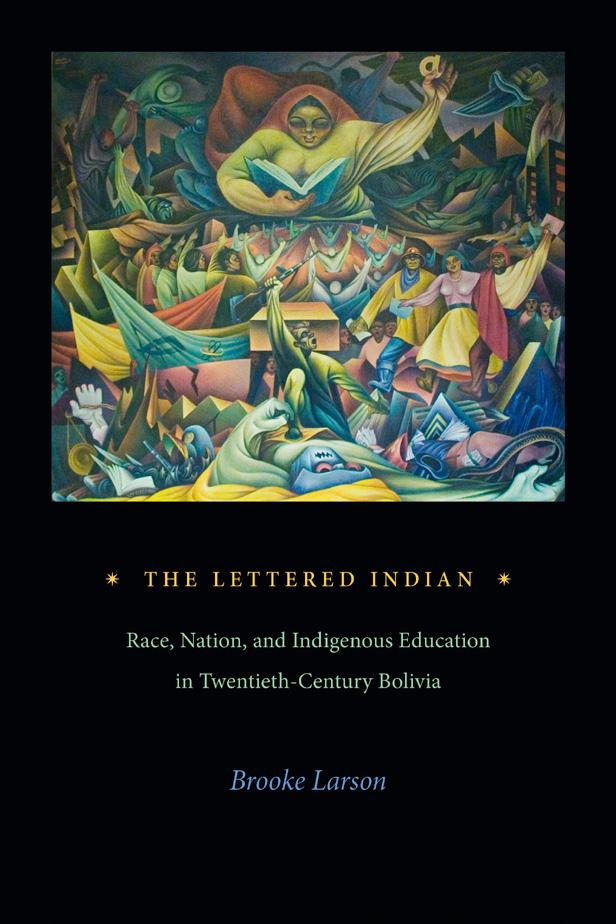
January 2024
496 pages
Native and Indigenous Studies / History Rights: World

November 2023
272 pages
Middle East Studies / Sociology / Urban Studies / Politics / Political Theory
Rights: World
Duke University Press dukeupress.edu
21

November 2023
264 pages Science and Technology Studies / Critical Theory Rights: World

November 2023
304 pages
Theory and Philosophy / Marxism / History / Asian History / Asian Studies / East Asia Rights: World
Virgin Mary and the Neutrino Reality in Trouble ISABELLE STENGERS
TRANSLATED BY ANDREW GOFFEY
In Virgin Mary and the Neutrino, first published in French in 2006 and here appearing in English for the first time, Isabelle Stengers experiments with the possibility of addressing modern practices not as a block but through their divergence from each other. Drawing on thinkers ranging from John Dewey to Gilles Deleuze, she develops what she calls an “ecology of practices” into a capacious and heterogeneous perspective that is inclusive of cultural and political forces but not reducible to them. Stengers first advocates for an approach to sciences that would emphasize the way each should be situated by the kind of relationships demanded by what it attempts to address. This approach turns away from the disabling scientific/nonscientific binary—like the opposition between the neutrino and the Virgin Mary. An ecology of practices instead stimulates an appetite for thinking reality not as an arbiter but as what we can relate to through the generation of diverging concerns and obligations.
Isabelle Stengers is Emerita Professor of the Philosophy of Science at the Université libre de Bruxelles and is the author of numerous books, including Making Sense in Common: A Reading of Whitehead in Times of Collapse, Another Science is Possible: A Manifesto for Slow Science, and In Catastrophic Times: Resisting the Coming Barbarism Andrew Goffey is Associate Professor of Critical Theory and Cultural Studies at the University of Nottingham.
Archaism and Actuality
Japan and the Global Fascist Imaginary HARRY HAROOTUNIAN
In Archaism and Actuality eminent Marxist historian Harry Harootunian explores the formation of capitalism and fascism in Japan as a prime example of the uneven development of capitalism. He applies his theorization of subsumption to examine how capitalism integrates and redirects preexisting social, cultural, and economic practices to guide the present. This subsumption leads to a global condition in which states and societies all exist within different stages and manifestations of capitalism. Drawing on Japanese philosophers Miki Kiyoshi and Tosaka Jun, Marxist theory, and Gramsci’s notion of passive revolution, Harootunian shows how the Meiji Restoration of 1868 and its program dedicated to transforming the country into a modern society exemplified a unique path to capitalism. Japan’s capitalist expansion in the nineteenth and twentieth centuries, rise as an imperial power, and subsequent transition to fascism signal a wholly distinct trajectory into modernity that forecloses any notion of a pure or universal development of capitalism. With Archaism and Actuality, Harootunian offers both a retheorization of capitalist development and a reinterpretation of epochal moments in modern Japanese history.
Harry Harootunian is Max Palevsky Professor of History Emeritus at the University of Chicago and Associate Research Scholar at the Weatherhead East Asian Institute at Columbia University. He is the author of numerous books, most recently, The Unspoken as Heritage: The Armenian Genocide and Its Unaccounted Lives, also published by Duke University Press.
22
Biennial Boom
Making Contemporary Art Global PALOMA CHECA-GISMERO
In Biennial Boom, Paloma Checa-Gismero traces an archeology of contemporary art biennials to uncover the processes that prompted these exhibitions to become the global art world’s defining events at the end of the twentieth century. Returning to the early post-Cold War years, Checa-Gismero examines the early iterations of three well-known biennials at the borders of North Atlantic liberalism: the Bienal de La Habana, inSITE, and Manifesta. She draws on archival and oral history fieldwork in Cuba, Mexico, the US/Mexico borderlands, and the Netherlands, showing how these biennials reflected a post-Cold War optimism for a pacified world by which artistic and knowledge production would help mend social, political, and cultural divisions. Checa-Gismero argues that, in reflecting this optimism, biennials facilitated the conversion of subaltern aesthetic genealogies into forms that were legible to a nascent cosmopolitan global elite—all under the pretense of cultural exchange. By outlining how early biennials set the basis for what is now recognized as “global contemporary art,” Checa-Gismero intervenes in previous accounts of the contemporary art world in order to better understand how it became the exclusionary, rarified institution of today.
Paloma Checa-Gismero is an Assistant Professor of Art History at Swarthmore College.
The Politics of Collecting Race and the Aestheticization of Property EUNSONG KIM
In The Politics of Collecting, Eunsong Kim traces how racial capitalism and colonialism situated the rise of US museum collections and conceptual art forms. Investigating historical legal and property claims, she argues that regimes of expropriation—rather than merit or good taste—is responsible for popular ideas of formal innovation and artistic genius. In doing so, she details how Marcel Duchamp’s canonization has more to do with his patron’s donations to museums than it does the quality of Duchamp’s work, and uncovers the racialized and financialized logic behind the Archive of New Poetry’s collecting practices. Ranging from the conception of philanthropy devised by the robber barons of the late nineteenth century to ongoing digitization projects, Kim provides a new history of contemporary art that accounts for the complicated entanglement of race, capital, and labor behind storied art institutions and artists. Drawing on history, theory, and economics, Kim challenges received notions of artistic success and talent and calls for a new vision of art beyond the cultural institution.
Eunsong Kim is an Associate Professor of English at Northeastern University.
August 2024
336 pages
Art / Globalization Rights: World
August 2024
312 pages
Cultural Studies / Museum Studies Rights: World
23 Duke University Press dukeupress.edu
August 2024
328 pages
Anthropology / Environment / South Asia
Rights: World
Plantation Worlds
MAAN BARUA
In Plantation Worlds, Maan Barua interrogates debates on planetary transformations through the histories and ecologies of plantations. Drawing on long-term research spanning fifteen years, Barua presents a unique ethnography attentive to the lives of both people and elephants amidst tea plantations in the Indian state of Assam. In the nineteenth and early twentieth centuries, nearly three million people were brought in to Assam’s plantations to work under conditions of indenture. Plantations dramatically altered the region’s landscape, plundered resources, and created fraught worlds for elephants and people. Their extractive logics and colonial legacies prevail as durations, forging the ambit of infrastructures, labor, habitability, and conservation in the present. And yet, as the perspectives of the Adivasi plantation worker community and lifeworlds of elephants show, possibilities for enacting a decolonial imaginary of landscape remain present amid immiseration. From the margins of the global South, Barua offers an alternative grammar for articulating environmental change. In so doing, he prompts a rethinking of multispecies ecologies and how they are structured by colonialism and race.
Ghostly Past, Capitalist Presence
A Social History of Fear in Colonial Bengal TITHI BHATTACHARYA

Ghostly Past, Capitalist Presence
August 2024
232 pages
South Asian Studies / Colonial and Postcolonial Studies / Marxist Theory
Rights: World
In Ghostly Past, Capitalist Presence, Tithi Bhattacharya maps the role that Bengali ghosts and ghost stories played in constituting the modern Indian nation, and the religious ideas seeded therein, as it emerged in dialogue with European science. Bhattacharya introduces readers to the multifarious habits and personalities of Bengal’s traditional ghosts and investigates and mourns their eventual extermination. For Bhattacharya, British colonization marked a transition from the older, multifaith folk world of traditional ghosts to newer and more frightening specters. These ‘modern’ Bengali ghosts, borne out of a new Rationality, were homogenous specters amenable to ‘scientific’ speculation and invoked at séance sessions in elite drawing rooms. Reading literature alongside the colonial archive, she uncovers a new reordering of science and faith from the middle of the nineteenth century. Bhattacharya argues that these shifts cemented the authority of a rising upper caste colonial elite who expelled the older ghosts in order to recast Hinduism as the conscience of the Indian nation. In so doing, Bhattacharya reveals how capitalism necessarily reshaped Bengal as part of the global colonial project.
Tithi Bhattacharya is Associate Professor of History at Purdue University, author of The Sentinels of Culture: Class, Education, and the Colonial Intellectual in Bengal, 1848–1885, and coauthor of Feminism for the 99%: A Manifesto
24
Maan Barua is University Lecturer in Human Geography at the University of Cambridge and author of Lively Cities: Reconfiguring Urban Ecology
A Soci A l Hi S tory of f e A r in c oloni A l Beng A l Ti T hi BhaTTacharya
After Palmares
Diaspora, Inheritance, and the Afterlives of Zumbi
MARC A HERTZMAN
Marc Hertzman tells the story of what was likely the world's largest fugitive-slave settlement, Palmares. Located in the dense forests and rough terrain of northeast Brazil, for most of the seventeenth century, Palmares was home to thousands of Africans and their kin, who escaped slavery and forged homes in the wilderness. While most scholarship on Palmares ends in 1695, with the killing of its most famous leader, Zumbi, who was assassinated by Portuguese forces, this book highlights the aftermaths of 1695, narrating the history of Palmares from a novel perspective. By treating 1695 as a starting point, the book challenges our knowledge about Palmares and proposes new directions in the study of the African diaspora by examining the unique spiritual beliefs and ways of living practiced there.
Marc Hertzman is Associate Professor of History, University of Illinois
On the Way to Theory
LAWRENCE GROSSBERG
In On the Way to Theory, Lawrence Grossberg introduces the major ways of thinking that provide the backstory for contemporary Western theory. Asking readers to think about thinking, Grossberg traces cultural and critical theory’s foundations from the contested enlightenments to modern and postmodern conceptualizations of power, experience, language, and existence. He introduces key figures as historical characters and lays out the unique set of tools for thought that their “deep theories” offer. Through finely tuned and accessible descriptions of their concepts and logics, Grossberg highlights thinkers including Spinoza, Kant, Hegel, Marx, Nietzsche, Wittgenstein, Heidegger, Derrida, Foucault, Deleuze, Hall, defining the possibilities of their thought. This book is essential for those interested in how theories shape our understanding of the world, influence our choices, and define our realities. It challenges us to recognize the multiplicity and complexities of ways of thinking in our quest for knowledge and understanding. By setting out a story of theoretical foundations, Grossberg invites readers to think toward the future of theory and expand conversations around theoretical scrutiny and criticism.
Lawrence Grossberg is Distinguished Professor Emeritus of Communication at the University of North Carolina at Chapel Hill and the author and editor of numerous books, including Cultural Studies 1983, Cultural Studies in the Future Tense, Bringing it all Back Home, and Dancing in Spite of Myself, all also published by Duke University Press.
September 2024
448 pages
Latin American History/African diaspora Rights: World

October 2024
472 pages
Theory / Cultural Studies / Philosophy Rights: World
25
University
dukeupress.edu
Duke
Press

September 2024
288 pages
Music / Theory and Philosophy / African American Studies and Black Diaspora
Rights: World
August 2024
152 pages
Poetry and Poetics / Latinx Studies / Queer Studies
Rights: World
Fantasies of Nina Simone JORDAN ALEXANDER STEIN
This unique book mines the tension between our collective and individual fantasies of Nina Simone the performer, Civil Rights activist, and icon, and Nina Simone’s desires for herself as an ordinary person. Simone has long served as a fantasy figure par excellence, embodying the contradictions that Black womanhood has been made to bear in our culture: beauty and dignity, abjection and power, expansive personal talent limited by narrow opportunities for advancement, while also being tasked with resolving these contradictions. Working through Simone’s biography and her scattered public archive, Jordan Stein maps two major movements in her work, her early covers of white male pop song writers and her later move to exploring Caribbean and Afro-diasporic sound, analyzing these shifts as Simone’s movement towards her desires, first for authority and authorship and second for her own becoming. Taking up Simone as an unconventional subject of psychoanalytic literary study, Stein illuminates how the operations of fantasy are perpetually bound up with the workings of race, gender, and history.
Left Turns in Brown Study
SANDRA RUIZ
In Left Turns in Brown Study Sandra Ruiz offers a poetic-theoretical inquiry into the interlacing forms of study and mourning. Drawing on Black and Brown activism and theory, Ruiz interweaves poetry, memoir, lyrical essay, and vignettes to examine study as an emancipatory practice. Proposing “brown study” as key for understanding how Brownness harbors loss and suffering along with the possibility for more abundant ways of living, Ruiz invites readers to turn left into the sounds, phrases, and principles of anticolonial ways of reading, writing, citing, and listening. In doing so, Ruiz engages with a panoply of hauntings, ghosts, and spectral presences, from deceased teachers, illiterate ancestors, and those lost to unnatural disasters to all those victims of institutional and colonial violence. Study is shared movement and Brownness lives in citation. Conceptual, poetic, and unconventional, this book is crucial for all those who theorize minoritarian literary aesthetics and think through utopia, queer possibility, and the entwinement of forms.
Sandra Ruiz is Sue Divan Associate Professor of Performance Studies in Theatre and English at the University of Illinois Urbana-Champaign and author of Ricanness: Enduring Time in Anticolonial Performance
26
The Banality of Good
The UN’s Global Fight against Human Trafficking
LIEBA FAIER
Examining Japan’s counter-human trafficking program, known as the Action Plan, Faier uses Japan as a case study through which she argues against globalization in response to local issues, stating that programs like the Trafficking Protocol erase the history, political and economic inequality, and cultural differences of the very people they are designed to aid. Borrowing from Hannah Arendt’s idea of the “banality of evil” as drawn from the trial of leading Nazi Adolf Eichmann, Faier coins the “banality of good,” using the phrase to refer to reality of Japan and the UN’s response to human trafficking that privileges bureaucracy and compliance over the needs of victims, often resulting in a lower quality of life, repatriation, and even criminalization of human trafficking survivors.
Lieba Faier is Associate Professor of Geography, University of California,
State of Fear
Policing a Postcolonial City
JOSHUA BARKER
In State of Fear, Joshua Barker reckons with how fear and violence are produced and reproduced through everyday practices of rule and control. Examining the ethnographic and historical genealogies of Indonesian policing, Barker focuses on the city of Bandung, which is permeated by anxieties about security, all in spite of the fact that it’s a relatively safe city according to the data. Drawing from his fieldwork there during the latter years of the authoritarian New Order regime, Barker traces the complex relationship between the state and vigilante groups like neighborhood watch patrols and street gangs. Through interviews with police officers, vigilantes, and street-level toughs, he uncovers a struggle between two visions of social control that continues to animate policing in Indonesia: the modern, bureaucratic approach favored by the state, and a territorial approach that divides the city into fiefdoms overseen by charismatic individuals of authority. Synthesizing insights from in-depth ethnographic, historical, and theoretical work, Barker reveals how authoritarianism can take root not just from the top-down but also the bottom up.
Joshua Barker is a Professor of Anthropology at University of Toronto and coeditor of Figures of Southeast Asian Modernity and State of Authority: State in Society in Indonesia
September 2024
352 pages
Anthropology/ Gender Studies/ Asian Studies Rights: World
September 2024
312 pages
Anthropology / Asian Studies
Rights: World
27
University Press dukeupress.edu
Duke
August 2024
384 pages
Political Theory / Asian Studies
Rights: World
August 2024
232 pages
Political Theory / Anthropology / Mexico Rights: World
The Book of Politics
China in Theory
MICHAEL DUTTON
In The Book of Politics, Michael Dutton offers an affective theorization of the political and a political theorization of affect. Drawing on Western and Chinese social theory and practice, Dutton rethinks Carl Schmitt’s insistence that the political can only be thought within the antagonistic pairing of friend and enemy. Dutton shows how the power of the friend/enemy binary must be understood by conceptualizing the political as the channeling, harnessing, and transforming of affective energy flows in relation to that binary. Given this affective nature of politics, Dutton contends that to rethink the political means moving away from a political science toward an art of the political. Such an art highlights fluidity and pulls away from Eurocentric political theory, requiring a conceptualization of the political as global. He juxtaposes ancient Chinese cosmology, medicine, and Maoism against the monuments of early capitalist modernity such as the Crystal Palace and the Eiffel Tower to highlight the differences in political investments and intensities. From the Chinese revolution to the global rise of right-wing movements, Dutton rethinks politics in the contemporary world.
Michael Dutton is Professor of Literature at Beijing Capital Normal University and Professor of Politics at Goldsmiths, University of London, and. He is the author of Policing Chinese Politics: A History, also published by Duke University Press, and coauthor of Beijing Time
Sovereignty and Extortion A New State Form in Mexico CLAUDIO LOMNITZ
Over the past fifteen years in Mexico, over 450,000 people have been murdered and 110,000 more have been disappeared. In Sovereignty and Extortion, Claudio Lomnitz examines the Mexican State in relation to this extreme violence, uncovering a reality that challenges the familiar narratives of “a war on drugs” or a “failed state.” Tracing how neoliberal reforms, free trade agreements, and a burgeoning drug economy have shaped Mexico’s socio-political landscape, Lomnitz shows that the current crisis does not represent a tear in the social fabric. Rather, it reveals a fundamental shift in the relationship between the state and the economy in which traditional systems of policing, governance, and the rule of law have eroded. Lomnitz finds that power is now concentrated in the presidency and enforced through militarization, which has left the state estranged from itself and incapable of administering justice or regaining control over violence. Through this critical examination, Lomnitz offers a new theory of the state, its forms of sovereignty, and its shifting relation to capital and militarization.
Claudio Lomnitz is Campbell Family Professor of Anthropology at Columbia University and the author of several books, including Nuestra América: Family in the Vertigo of Translation, The Return of Comrade Ricardo Flores Magón, and Death and the Idea of Mexico
28
Daughter, Mother, Grandmother, and Whore
The Story of a Woman Who Decided to be a Puta
GABRIELA LEITE
TRANSLATED BY MEG WEEKS
In the early 1970s, while living at home with her conservative, middle-class family and studying at the University of São Paulo, Gabriela Leite decided to become a sex worker. From her first client in a tiny room in downtown São Paulo to the launch of an exuberant clothing line designed for sex workers in Rio de Janeiro thirty years later, Daughter, Mother, Grandmother, and Whore tells the fascinating story of Leite’s bold and unique life in her own words. After helping organize Brazil’s first protests of sex workers against police brutality, she moved to Rio de Janeiro where she quickly became ensconced in the city’s storied red-light district. From there, Leite built a national network of politicized sex workers, worked for HIV/AIDS prevention efforts, and participated in Brazil’s robust new civil society after it returned to democracy in 1985 after a twenty-one-year military dictatorship. Insistent on advocating for the sex worker’s comprehensive human rights, Leite pioneered an irreverent grassroots Latin American feminism, which critiqued moral hypocrisies and Christian conservatism while affirming pleasure, joy, and agency. Daughter, Mother, Grandmother, and Whore also includes a foreword by artist and activist Carol Leigh.
Gabriela Leite (1951–2013) was a sex worker, activist and organizer, and the founder of Brazil’s sexworker movement. Meg Weeks is Assistant Professor at the Center for Latin American Studies at the University of Florida.
Third World Studies
Theorizing Liberation
Second Edition, Revised and Expanded
GARY Y. OKIHIRO
In this revised and expanded second edition of Third World Studies, Gary Y. Okihiro considers the methods and theories that might constitute the formation of Third World studies. Proposed in 1968 at San Francisco State College by the Third World Liberation Front but replaced by faculty and administrators with ethnic studies, Third World studies was over before it began. As opposed to ethnic studies, which Okihiro critiques for its liberalism and US-centrism, Third World studies begins with the colonized world and the anti-imperial, anticolonial, and antiracist projects located therein as was described by W. E. B. Du Bois in 1900. Third World studies analyzes the locations and articulations of power around the axes of race, gender, sexuality, (dis)ability, class, and nation. In this new edition, Okihiro emphasizes the work of Third World intellectuals such as M. N. Roy, José Carlos Mariátegui, and Oliver Cromwell Cox, foregrounds the importance of Bandung and the Tricontinental, and adds discussions of eugenics, feminist epistemologies, and religion. With this work, Okihiro establishes Third World studies as a theoretical formation and a liberatory practice.
Gary Y. Okihiro is Visiting Professor of American Studies and Ethnicity, Race, and Migration at Yale University. He is the author of many books, including The Boundless Sea: Self and History and American History Unbound: Asians and Pacific Islanders
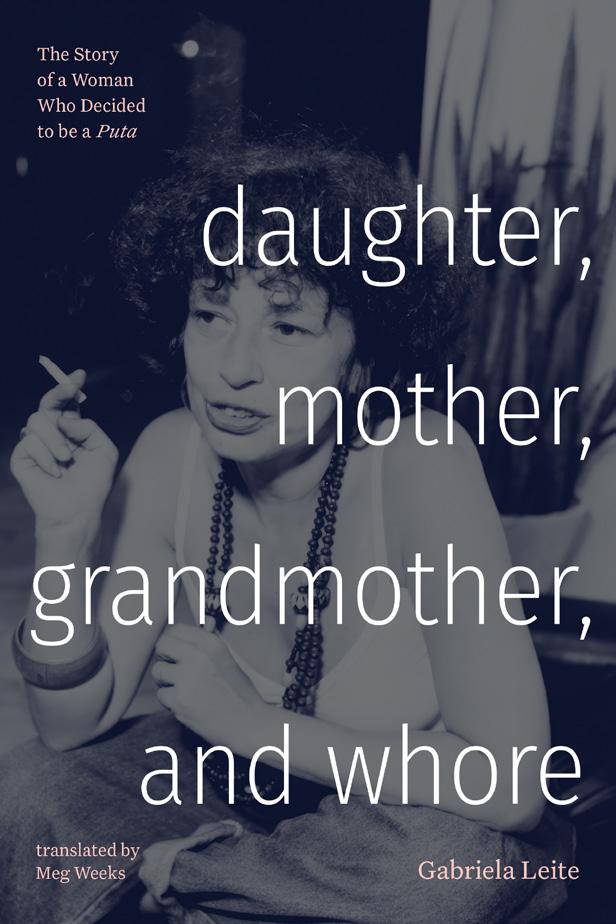
September 2024
208 pages
Memoir / Sexuality / Latin America
Rights: World

August 2024
328 pages
Third World Studies / Ethnic Studies
Rights: World
29
University Press dukeupress.edu
Duke
August 2024
328 pages
Gender Studies / Political Theory / Settler Colonial Studies
Rights: World
Unsettled Labors
Migrant Care Work in Palestine/Israel RACHEL H.
BROWN
In Unsettled Labors, Rachel H. Brown explores the overlooked labor of migrant workers in Israel’s eldercare industry. Brown argues that live-in eldercare in Palestine/Israel, which is primarily done by migrant workers, is an often invisible area where settler colonialism is reproduced culturally, economically, and biologically. Situating Israeli labor markets within a longer history of imperialism and dispossession of Palestinian land, Brown positions migrant eldercare within the resulting tangle of Israeli laws, policies, and social discourses. She draws from interviews with caretakers, public statements, court documents, and first-hand fieldwork to uncover the inherently contradictory nature of elder care work: the intimate presence of South and Southeast Asian workers in the home unsettles the idea of the Israeli home as an exclusively Jewish space. By paying close attention to the comparative racialization of migrant workers, Palestinians, asylum seekers, and Mizrahi and Ashkenazi settlers, Brown raises important questions of labor, social reproduction, displacement, and citizenship told through the stories of collective care provided by migrant workers in a settler colonial state.
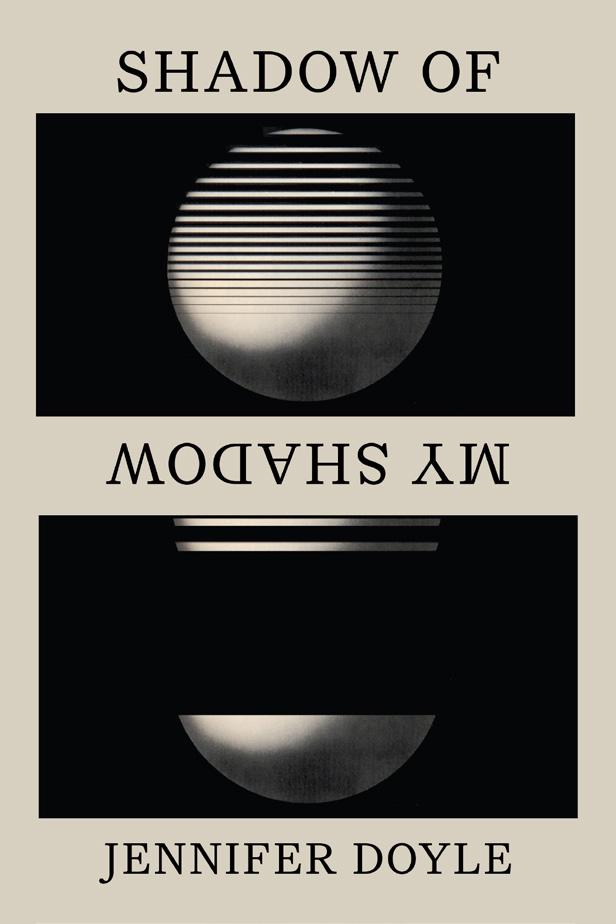
August 2024
184 pages
Feminist Studies
Rights: World
Shadow of My Shadow JENNIFER DOYLE
Over the course of two years, Jennifer Doyle filed multiple harassment complaints with her campus’s Title IX office and one with the Department of Labor. Her experiences with these complaints and how they subsequently impacted her life have led to this book, Shadow of My Shadow. Doyle tells her personal story, sharing how she lost her sense of voice, felt exposed at work, became distrustful of students and colleagues, and was consumed by grief. Working across autobiography, literary criticism, an analysis of the Larry Nassar Title IX case, and larger institutional critique of harassment administration, Doyle shows that harassment is both intimate, dynamic, and intensely social, flourishing in neglected social spaces. In her own case, it profoundly reshaped her relationship to her work, writing, and ultimately to herself. As Doyle explains, the experience drew out the distance between herself in the world and herself on the page. This book is her effort to understand and repair that breach and to consider how loss and grief can be sources of insight and compassion.
Jennifer Doyle is Professor of English at the University of California, Riverside, and author of Hold It Against Me: Difficulty and Emotion in Contemporary Art, also published by Duke University Press and Campus Sex, Campus Security
30
Rachel H. Brown is Assistant Professor of Women, Gender, and Sexuality Studies at Washington University in St. Louis.
Blood Loss
A Love Story of AIDS, Activism, and Art KEIKO LANE
In 1991, 16-year-old activist Keiko Lane joined the Los Angeles chapters of Queer Nation and ACT UP. They protested against legislation aimed at dismantling rights for LGBTQ people, people living with HIV, and immigrants, while fighting for needle exchange programs, reproductive justice, safer sex education, hospice funding, and the right to die with dignity. At the same time, they were a queer chosen family of friends and lovers who took care of one another in sickness and in health. Sometimes they helped each other die. By the time Lane turned 22, most of them had died of AIDS. In her evocative memoir, Lane weaves together the love stories and afterlives of queer resistance and survival, against the landscape of the Rodney King Rebellion, the movement for queer rights, and the censorship of queer artists and sexualities. Lane interrogates the social construction of power against and in queer communities of color, and the recovery of sexual agency in the midst and aftermath of violence. Luminous and powerfully moving, Blood Loss explores survival after those we love have died.
Keiko Lane is an independent scholar and practicing psychotherapist.
Impossible Things
MILLER OBERMAN
This is a collection of poetry that offers an intimate and personal account of fatherhood, loss, grief, and family. The collection stages an impossible encounter between Oberman and his late father, who spent his last years completing a manuscript on the loss of his first son, Joshua. In staging this encounter, Oberman provides excerpts from his father’s manuscript –streamlined and trimmed – alongside his own poetry, allowing for the emergence and study of difficult affects such as anxiety, anger, desire, and loss. Above all, the collection sits with and interrogates the capaciousness of “trans”-ness. Oberman traces the ways that transgenerational trauma, transmitted memory, and trans identity all operate together experientially and within the nexus of Oberman’s family.
Miller Oberman is the author of The Unstill Ones (Princeton University Press, 2017). He lives with his family in Queens, New York.
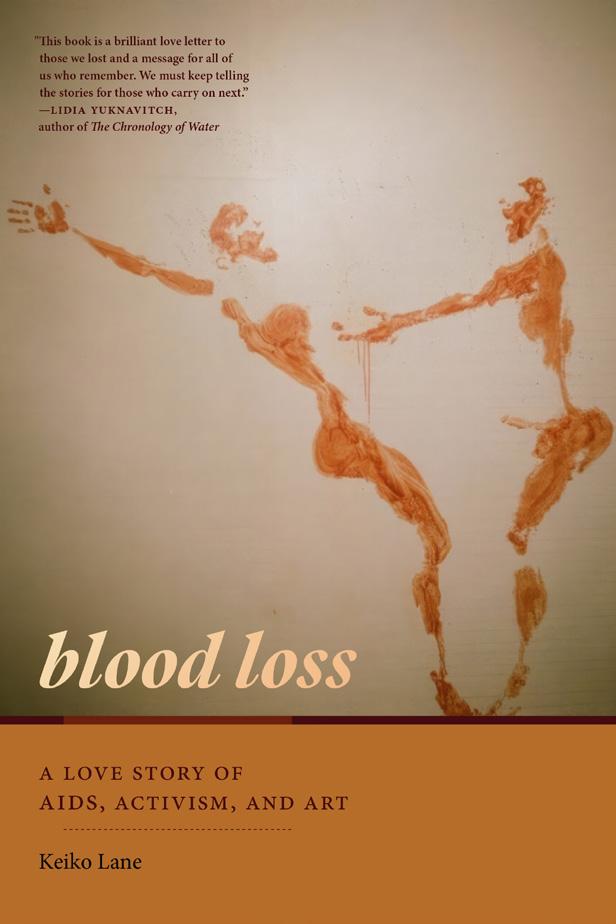
September 2024
312 pages
Memoir / AIDS Activism / Queer Studies
Rights: World
October 2024
96 pages
Poetry
Rights: World
31 Duke University Press dukeupress.edu

September 2024
208 pages
Medicine and Health / Science and Technology Studies / Sociology
Rights: World

September 2024
312 pages
Religious Studies / Sociology / Theory and Philosophy
Rights: World
On Addiction
Insights from History, Ethnography, and Critical Theory DARIN WEINBERG, EDITOR
A collection of essays exploring a socio-cultural context of addiction and addiction sciences, complicating ethical questions of control and alienation in the face of addiction. Mainstream addiction science is polarized: seeing addiction either as a biomedical disease rendering one incapable of self-control, or as a voluntary activity engaged in freely, always by choice. Instead, Weinberg argues for flexibility, a new theoretical framework of addiction studies that allows for movement into and out of self-control, through various social and natural processes always in flux. Utilizing an ethnomethodologically informed, post-humanist orientation to the history and sociology of addiction science and clinical care,this collection forms a more holistic approach, an “intellectual gestalt,” into the fundamental nature and ethics of addiction.
The Inner Life of Race
Souls, Bodies, and the History of Racial Power LEEROM MEDOVOI
Leerom Medovoi's The Inner Life of Race engages questions of race, power, and embodiment to analyze how systems of color-line racism are different and similar to other forms of racism, such as Islamophobia or anti-semitism. Working through a Foucauldian frame, Medovoi offers a genealogy of governmentally and security, outlining a parallel between hierarchies of racial embodiment and of what he calls “ensoulment,” a system he traces back to fifteenth-century Catholic Spain and the church’s attempts to sort out true believers from those who might be passing and thus threats to the whole. He argues that the Church’s active concern for true believers directly prefigures the racial-security biopolitics which emerges a few centuries later. This attention to religious concerns enables Medovoi to trace the mutations of religious control to political control and religious fanaticism into political fanaticism, and to analyze how contemporary antisemitism and Islamophobia—as well as homophobia and transphobia—draw on centuries-old anxieties about the particular threats posed by the soul who “passes” as Christian or as a white body.
32
Evacuation
The Politics and Aesthetics of Movement in Emergency PETER ADEY
This book examines the politics of emergency evacuations, arguing that, despite the undemocratic means and the violence of displacement that characterizes many evacuations, these events can also showcase human agency, collectivity, and compassion. Adey poses evacuation as an object of governance, examining the ways that local authorities, state governments, and federal governments interact with and control people in situations deemed as emergencies. Examining a range of evacuation case studies across the Global North such as the evacuation of the Twin Towers of the World Trade Centre on 9/11, evacuations of wounded soldiers during World War I, the forced evacuations of Jewish peoples and Japanese Americans during the second World War, and human and animal evacuations in response to natural disasters such as Hurricane Katrina and the recent Australian bushfires, Adey shows how evacuations cannot be separated from the legacies of racial colonialism that continue to fuel contemporary political and ecological disasters.
The Promise of Beauty
MIMI THI NGUYEN
Mimi Thi Nguyen examines how the perceived presence and absence of beautystructures cultural and historical inquiry. Drawing on a background in feminist and Asian American studies, Nguyen approaches beauty as a method that attends to questions of aesthetics and politics from within a multisensory world history. Comprehending beauty in this way, Nguyen analyzes affective and aesthetic responses to scarcity, precarity, and uncertainty through the crises of war and colonial and capital dispossession. Utilizing historical and philosophical thinkers from Plato and Adorno to Elaine Scarry and Saidiya Hartman, Nguyen describes how beauty operates as a reference for the human, collectivity, politics, ethics, and other forms of life. In doing so, she seeks to understand the promise of beauty and how it functions as a world-building engagement.
Mimi Thi Nguyen is Associate Professor and Chair of Gender and Women's Studies, University of Illinois, Urbana-Champaign.
Blues Mamas and Broadway Belters
Black Women, Voice, and the Musical Stage MASI ASARE
In Blues Mamas and Broadway Belters, singer, scholar, and dramatist Masi Asare explores the singing practice of Black women singers in US musical theatre between 1900 and 1970. Asare shows how a vanguard of Black women singers including Gertrude “Ma” Rainey, Bessie Smith, Ethel Waters, Pearl Bailey, Lena Horne, Eartha Kitt, and Diahann Carroll create a lineage of highly trained and effective voice teachers whose sound and vocal techniques continue to be heard today. Challenging pervasive narratives that these and other Black women possessed “untrained” voices, Asare theorizes singing as a form of sonic citational practice—the pedagogical lineage passed from teacher to student. Asare invites readers to not only study these singers, but to study with them—taking seriously what their contemporaries have had to say and how they taught voice. Ultimately, Asare speaks to the need to feel and hear the racial history in contemporary musical theatre.
September 2024
328 pages
Geography / Sociology / Cultural Studies
Rights: World
October 2024
312 pages
Feminist Theory / Cultural Studies
Rights: World
October 2024
296 pages
Music/African American studies
Rights: World
33 Duke University Press dukeupress.edu
The University of Oklahoma Press
About the University of Oklahoma Press
During its more than ninety years of continuous operation, the University of Oklahoma Press has gained international recognition as an outstanding publisher of scholarly literature. It was the first university press established in the Southwest, and the fourth in the western half of the country.
Building on the foundation laid by our previous directors, OU Press continues its dedication to the publication of outstanding scholarly works. The major goal of the Press is to strengthen its position as a preeminent publisher of books about the American West and Native Americans, while expanding its program in other scholarly disciplines, including classical studies, military history, political science, and natural science.
oupress.com
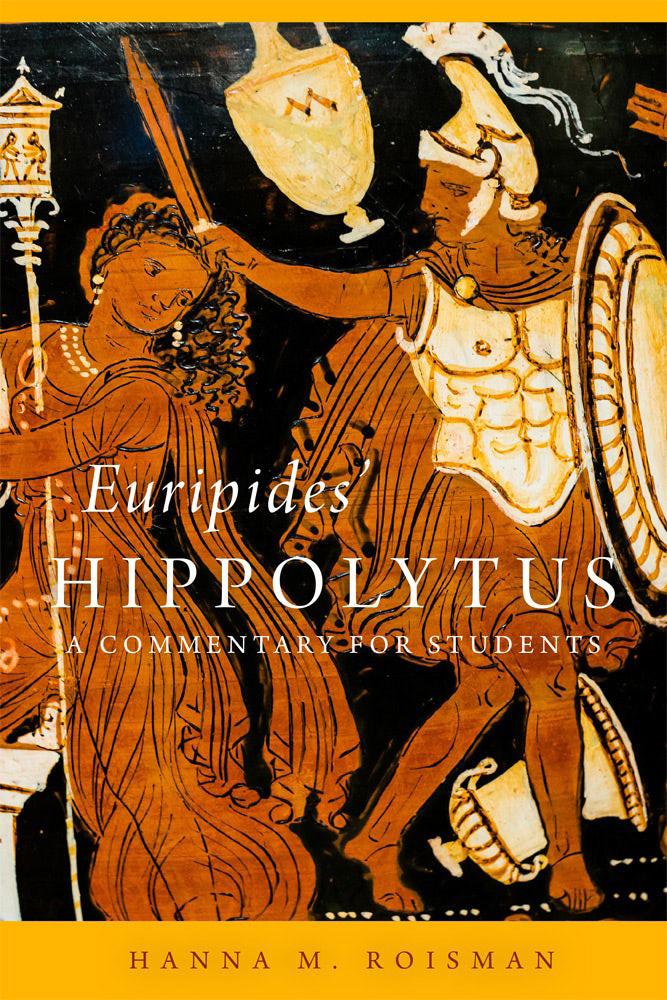
May 2024
300 pages
Classical Studies
Rights: World
Euripides' Hippolytus
A Commentary for Students
HANNA M. ROISMAN
Euripides’ Hippolytus is a fascinating play about passion, innocence, rejection, betrayal, and the tragic breakdown of a family. This commentary, designed for intermediate and advanced students of ancient Greek, helps readers understand and fully appreciate this classic tragedy in all its rich complexity. The volume is the first commentary on the play to appear in print since 1996, and it is the most student-friendly guide to Hippolytus currently available.
To make the play accessible to students who are tackling it for the first time, this book features the Greek text in sections followed immediately by detailed line-by-line notes. By explaining various points of vocabulary, grammar, syntax, and content, these notes allow students to read the play on their own without resorting frequently to dictionaries or other outside aids. The volume also includes the complete, uninterrupted text of the play. In her wide-ranging introduction to the book, Hanna M. Roisman discusses the play’s mythological background and relevant aspects of Greek tragedy and performance. In addition, she explains the literary devices Euripides employs, as well as meter, prosody, and lexicality.
Comprehensive in scope, this commentary concludes with a detailed glossary; a line-by-line index of grammatical, syntactical, literary, and rhetorical figures; a list of irregular verbs; and a select bibliography.
Hanna M. Roisman is Arnold Bernhard Professor in the Arts and Humanities, Emerita, at Colby College in Waterville, Maine, is the author of Loyalty in Early Greek Epic and Tragedy and Nothing Is As It Seems: The Tragedy of the Implicit in Euripides' Hippolytus
34
A Pedagogy of Kindness
Teaching, Engaging, and Thriving in Higher Ed
CATHERINE J. DENIAL
Academia is not, by and large, a kind place. Individualism and competition are what count. But without kindness at its core, Catherine Denial suggests, higher education fails students and instructors—and its mission—in critical ways. Part manifesto, part teaching memoir, part how-to guide, A Pedagogy of Kindness urges higher education to get aggressive about instituting kindness, which Denial distinguishes from niceness. Having suffered beneath the weight of just “getting along,” instructors need to shift every part of what they do to prioritizing care and compassion—for students as well as for themselves. A Pedagogy of Kindness articulates a fresh vision for teaching, one that focuses on ensuring justice, believing people, and believing in people. Offering evidence-based insights and drawing from her own rich experiences as a professor, Denial offers practical tips for reshaping syllabi, assessing student performance, and creating trust and belonging in the classroom. Her suggestions for concrete, scalable actions outline nothing less than a transformational discipline—one in which, together, we create bright new spaces, rooted in compassion, in which all engaged in teaching and learning might thrive.
Catherine J. Denial is Bright Distinguished Professor of American History and Director of the Bright Institute at Knox College. A regular speaker and consultant on teaching and learning, she is also the author of Making Marriage: Husbands, Wives, and the American State in Dakota and Ojibwe Country. Find her online at www.catherinedenial.org.
Who is a Worthy Mother?
An Intimate History of Adoption REBECCA WELLINGTON
The history of adoption is rarely told from an adoptee’s perspective. Wellington remedies this gap by framing the chronicle of adoption in America using her own life story. She describes growing up in a family with which she had no biological connection, giving birth to her own biological children, and then enduring the death of her sister, who was also adopted. As she reckons with the pain and unanswered questions of her own experience, she explores broader issues surrounding adoption in the United States, including changing legal policies, sterilization and compulsory relinquishment programs, forced assimilation of babies of color and Indigenous babies adopted into white families, and other liabilities affecting women, mothers, and children.
According to Wellington, US adoption practices in America are shrouded in secrecy, for they frequently cast shame on unmarried women, women struggling with fertility, and “illegitimate” babies and children. As the United States once again finds itself embroiled in heated disputes over women’s bodily autonomy—disputes in which adoption plays a central role— Wellington’s book offers a unique and much-needed frame of reference.
Writer, historian, and educator Rebecca C. Wellington teaches at the University of Puget Sound.
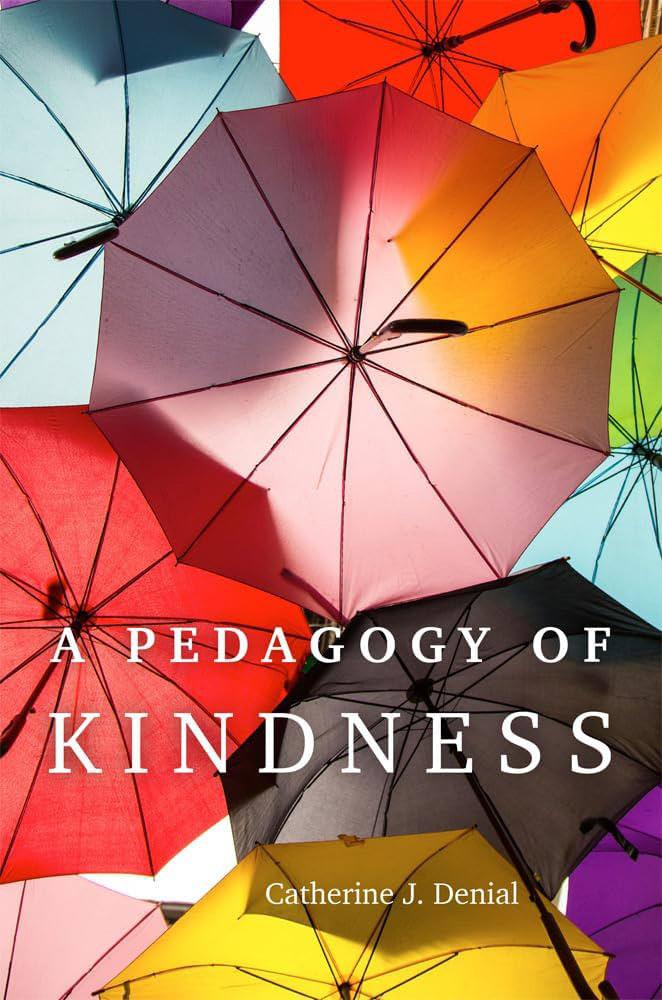
July 2024
168 pages
Rights: World

April 2024
232 pages
Rights: World
35
August 2024
232 pages
Rights: World
The Monarch Butterfly Migration
Its Rise and Fall MONIKA MAECKLE
A highly engaging book, The Monarch Butterfly Migration also focuses a wider lens on the effects of climate change and the tensions between advocacy and scientific accuracy. In addition to calling for environmental sustainability, this book reminds each of us to notice—and never take for granted—the natural wonders in our own backyards.
Monika Maeckle is founder and writer for the Texas Butterfly Ranch website and founder and director of San Antonio’s Monarch Butterfly and Pollinator Festival.

April 2024
504 pages
Rights: World
We Shook Up the World
The Spiritual Rebellion of Muhammad Ali and George Harrison TRACY DAUGHERTY
George Harrison met Muhammad Ali in 1964, when both men were on the cusp of worldwide fame. Ten years later, the two men simultaneously staged comebacks, demonstrating just how much they embodied the promises and perils of their era. In doing so, Tracy Daugherty suggests, they revealed the scope and the limits of political courage and commitment to faith in the modern world. We Shook Up the World is the story of these two larger-than-life figures at a momentous time. A unique blend of biography and cultural history, this book goes to the very heart of the zeitgeist that each man inhabited and reinvented in profound and enduring ways.
In 1974, deep in the Pennsylvania woods, thirty-two-year-old Muhammad Ali was seeking renewal, training to regain his heavyweight boxing title in a fight with George Foreman, and exploring questions about his politics, his career, and his life. Meanwhile, George Harrison was thirty-one years old. With the Beatles disbanded, his marriage ending, and the loss of his mother still fresh, he traveled to India to revitalize his faith, energy, and musical spirit, seeking renewal at the Hindu holy city of Varanasi. In contemplating how these two complex figures managed to carry the cultural rebelliousness and spiritual yearning of the 1960s into a new era of cataclysmic political, economic, and social change, We Shook Up the World offers an intimate perspective on two outsize figures in the nation’s and the world’s cultural history, and a new understanding of their unique contributions to the consciousness of their time and ours.
Tracy Daugherty is Distinguished Professor of English and Creative Writing, Emeritus, at Oregon State University. He has written biographies of Joan Didion, Joseph Heller, and Donald Barthelme, as well as five novels, six short story collections, a book of personal essays, and a collection of essays on literature and writing.
36
Rising Son
The Life and Music of Arlo Guthrie
HANK REINEKE
One of America’s most beloved folk singers, Arlo Guthrie was at the pinnacle of his fame in the late 1960s and early 1970s with his best-selling album Alice’s Restaurant and his iconic appearance at Woodstock. Yet Guthrie’s career as a musician, humorist, and storyteller extends far beyond his years in the celebrity spotlight. Rising Son: The Life and Music of Arlo Guthrie, written by award-winning author Hank Reineke, recounts the veteran musician’s second act, from the early 1980s to the present. Featuring extensive reflections and commentary from Guthrie himself, this book is the only authorized biography of the renowned folk singer.
As a modern-day troubadour drawn to experimentation, Arlo Guthrie has also carried forward the traditions inherited from his legendary father, Woody Guthrie. Rising Son examines Arlo’s role in preserving Woody’s legacy of social protest and examines his collaborations with his father’s friend Pete Seeger. The book also highlights the contributions of Guthrie’s mother, Marjorie Mazia Guthrie, a dancer with the Martha Graham Company and the Guthrie family’s first archivist.
Drawing on substantial research, the author traces Guthrie’s efforts to free himself from corporate oversight of his music and art. In 1983, Guthrie created his own label, Rising Son Records, to reissue titles from his back catalog and create new music. Guthrie speaks frankly about record company blues and music industry tangles, offering lively accounts of the people he met and the places he performed. The narrative takes several detours, with Guthrie sharing memories written in the spirit of his signature shaggy-dog storytelling style.
Rising Son also illuminates the spiritual journey of a restless pilgrim: a man devoted to exploring and synthesizing the most benevolent principles of charity and kindness as practiced by different religious traditions. “What I’ve tried to do,” Guthrie has reflected, “is to use live music to change people’s lives.” This definitive biography invites new appreciation for Arlo Guthrie’s remarkable career as a musician, storyteller, and humanitarian activist.
Hank Reineke has written about folk, blues, and country music for publications such as the Aquarian Arts Weekly, Soho Arts Weekly, Downtown, East Coast Rocker, Blues Revue, On The Tracks, ISIS, and The Bridge

November 2023
496 pages
Biography / Music Rights: World
37
University of Oklahoma Press oupress.com
The

Fighting from Above
A Combat History of the US Air Force BRIAN LASLIE
The story of the United States Air Force (USAF) stretches back to aerial operations prior to the First World War—well before the USAF became a separate service—and looks forward to a new era of airpower in space. Fighting from Above presents a concise account of this expansive history, offering a new perspective on how the air forces of the United States created an independent way of warfare over time.
From the earliest battles of the USAF’s predecessor organizations to its modern incarnation, Brian D. Laslie identifies four distinct and observable ways of war that developed over four distinct epochs. Beginning with the development of early air power (1906–1941), he highlights the creation of roles and missions, with bombardment theory and practice ascendant. An era of strategic dominance (1942–1975) followed in which the ideas of strategic bombardment ruled the air force; when such notions were unceremoniously proven false during the Vietnam-era conflicts, a period of tactical ascendancy (1975–2019) began. Finally, Laslie considers the current environment, where much of the story of the USAF remains unwritten as it grapples with the prospects and challenges posed by drones and the U.S. Space Force. While detailing combat operations, Fighting from Above also pays close attention to technology, politics, rivalries, logistics, policy, organization, equipping, and training. Thorough, concise, and innovative in its approach, it is an authoritative, exceptionally readable history of the development of American airpower.
Brian D. Laslie is the Command Historian at the United States Air Force Academy. He is the author of three books, including Air Power’s Lost Cause: The American Air Wars of Vietnam
38
Spring 2024 274 pages Native American Rights: World
Syracuse University Press
About Syracuse University Press
Over a casual conversation between Chancellor William Tolley and Thomas Watson, the Press was established to publish what would be its first title, IBM’s Precision Measurement in the Metal Working Industry in 1943. Since that time, Syracuse University Press has published groundbreaking works such as Pulitzer Prize–winning composer Ernst Bacon’s Words on Music, Jay Dolmage’s Disability Rhetoric (2015 prose award–winner), Siao-Yu’s Mao Tse-tung and I Were Beggars, and Barry Chevannes’s Rastafari: Roots and Ideology, which was first published in 1991 and remains one of our best-selling books. As we enter our eighth decade of academic publishing, the Press continues to be committed to serving New York State—as well as the region, nation, and globe—by publishing vital scholarship, sharing ideas, and giving voice to important stories that may not have otherwise been told.
press.syr.edu
Arena of Protest
How Jews and Christians United at Madison Square Garden Against Hitler 1933-1945 ALAN M. SHORE
While the dominant narrative of U.S.-based Jewish-Christian relations often locates their beginnings after World War II, In Arena of Protest, Alan Shore challenges this assumption through his examination of several large, highly publicized inter-faith rallies at Madison Square Garden during and after the war.
Drawing on primary and secondary sources, including English and Yiddish newspapers, impassioned publications and speeches from both Jewish and Christian leaders of the time, and neglected histories of various religious organizations, Shore unearths a powerful discourse that contrasts with the common depiction of American churches staying silent during World War II.
Alan Shore is a National Ministry Representative at Chosen People Ministries, an Evangelical Christian nonprofit with ministries in 16 countries. He holds a PhD in modern Jewish history and culture from the Graduate Theological Union and is author most recently of the foreword to C.S. Lewis: A Hebraic Inkling: C.S. Lewis of Judaism & the Jews by P.H. Brazier (Pickwick Publications, 2021).
May 2024
Jewish Studies / New York City / Holocaust / 20th Century History / American History / World War II
Rights: World
39

April 2024
Middle East Studies / Women's and Gender Studies / Ethnography
Rights: World
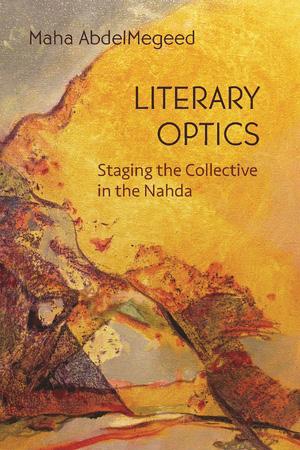
March 2024
304 pages
Middle East Studies / Arabic Literature / Literary Criticism / Cultural Studies
Rights: World
The Hammam through Time and Space
JULIE PETEET
Imbued with sacred and profane meanings, public baths forge historical, architectural, cultural, and aesthetic continuities across time and space. “The Hammam” traces these continuities and the disputed origins of public baths throughout the Mediterranean region. Engaging both historical and ethnographic approaches, Peteet examines how the hammam has functioned as both a tangible architectural space and an intangible set of social and bodily practices. The project is an expansive study encompassing histories of the Bronze and Iron Ages through the Hellenistic, Roman, Byzantine, early Islamic, Seljuk, and Ottoman eras. With these histories in mind, Peteet’s ethnographic component frames the contemporary revival of the bath as a neoliberal refashioning. Within the current global context of wellness culture, the hammam serves as a site of leisure and consumption to display and aesthetically configure and gender the body.
Julie Peteet is professor emerita of anthropology at the University of Louisville. She is author of Space and Mobility in Palestine, Landscape of Hope and Despair: Palestinian Refugee Camps, and Gender in Crisis: Women and the Palestinian Resistance Movement.
Literary Optics
Staging the Collective in the Nahda MAHA ABDELMEGEED
In Literary Optics, Maha AbdelMegeed offers a compelling and far-reaching alternative to the traditional mode of analyzing Arabic literature through an encounter between Arabic narrative forms and European ones. Drawing upon close engagements with the works of canonical authors from the period, including Hassan Husni al-Tuwayrani, Muhammad al-Muwaylihi, Ali Mubarak, Francis Marrash, and ‘Abdallah al-Nadim, AbdelMegeed addresses not where these works emanate from but rather how and why they were drawn together to form a canon. In doing so, she rejects the expectation that these texts, through the trope of encounter, hold the explanatory key to modern Arabic literature.
In this reformulation of Arabic literary history, AbdelMegeed argues that the canon is forged through an urgency to define a new form of political sovereignty and to make history visible. In doing so, she explores three pivotal concepts: the spectral (khayal), the trace (athar) and the collective (alnās). By examining the texts through these concepts, Literary Optics provides a remarkable intellectual history that delves into the aesthetic, philosophical, and political stakes of nineteenth-century Arabic literature.
Maha AbdelMegeed is assistant professor of modern Arabic literature at the American University of Beirut.
40
Mad Scholars
Reclaiming and Reimagining the Neurodiverse Academy
MELANIE JONES AND SHAYDA KAFAI
Mad Scholars is a groundbreaking collection of essays by scholars in the humanities and social sciences whose identification as Mad integrally informs their research methodology, pedagogical approaches, and university engagement. In an era of drastic re-evaluation concerning what constitutes both mental health and higher education, these academics explore strategies for generative disruption and a radical reinterpretation of the university model, speaking from every career stage, across a dozen disciplines, and from universities in North America, Europe, and Australia.
The twenty-three essays in this collection explore the infinite richness of neurodivergent scholars' lived experiences. Each of four sections occupies one of the myriad interlocking spaces within the academic system: the suffocating minutiae of administrative offices and career development; the fraught yet fueling field of self as research; the dangers and opportunities of disclosure in the classroom; and the unraveling and restitching of academic communities. Solution-based and provocative, Mad Scholars is the first book-length study on neurodivergence in the academy to center the voices of multiple Mad and neurodivergent scholars.
Melanie Jones is a faculty member at Bard College in the Bard Prison Initiative program. She has a Ph.D. in Comparative Literature, and her work has appeared in such journals as the Victorian Review Shayda Kafai is Assistant Professor of Ethnic and Women's Studies at California State Polytechnic University. Her work has appeared in such journals as the Journal of Lesbian Studies and Women's Studies Quarterly
The Muslim Social Neoliberalism, Charity, and Poverty in Turkey
GIZEM ZENCIRCI
Since coming to power in 2003, Turkey’s governing party, the AKP, has made poverty relief a central part of their political program. In addition to neoliberal reforms, AKP's program has involved an emphasis on Islamic charity that is unprecedented in the history of the Turkish Republic. To understand the causes and consequences of this phenomenon, Zencirci introduces the concept of the Muslim Social, defined as a welfare regime that reimagined and reconfigured Islamic charitable practices to address the complex needs of a modern market society.
In The Muslim Social, Zencirci explores the blending of religious values and neoliberal elements in dynamic, flexible, and unexpected ways. Although these governmental assemblages of Islamic neoliberalism produced new forms of generosity, distinctive notions of poverty, and novel ways of relating to others in society, Zencirci reveals how this welfare regime privileged managerial efficiency and emotional well-being at the expense of other objectives such as equality, development, or justice. The book provides a lens onto the everyday life of Islamic neoliberalism, while also mapping the kind of political concerns that animate poverty governance in our capitalist present.
Gizem Zencirci is assistant professor of political science at Providence College. She has published articles in several journals, including the International Journal of Middle East Studies, Asian Journal of Social Science, and Middle Eastern Studies

May 2024
Disability Studies / Anthology / Education / Neurodiversity Rights:World

March 2024
304 pages
Middle East Studies / Political Science / Turkish Studies
Rights: World
41
Syracuse University Press press.syr.edu
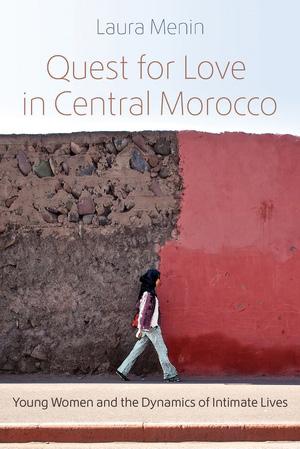
April 2024
496 pages
Women's and Gender studies / Middle East Studies / Ethnography / Islamic Studies / Youth Culture
Rights: World
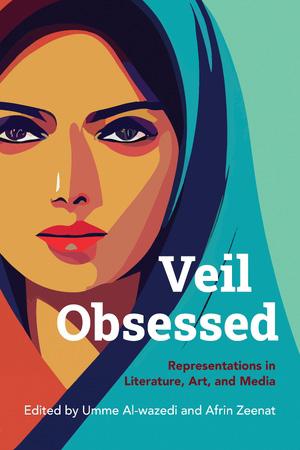
April 2024
496 pages
Women's and Gender Studies / Middle East Studies / South Asian Studies / Islamic studies / Media Studies
Rights: World
Quest for Love
Reimagining Intimate Lives in Central Morocco LAURA
MENIN
Following the 2011 wave of revolutions and uprisings through North Africa and the Middle East, new discussions on individual freedoms began to emerge in Moroccan public spheres and human rights discourse. Public opinion rallied around the removal of an article of the Moroccan penal code that punished sexual relationships outside of marriage. Moving between public and secret interactions, and between online and offline reals, Quest for Love looks closely at the creative ways young women navigate competing amorous desires and moralities. This journey into the intimate worlds and imaginations of young Moroccan women reveals the obscured dynamics marked by rapid and contradictory trajectories of change. The book focuses on young women whose lives unfold in the lowincome and lower-middle class neighborhoods of a mid- sized town in Central Morocco, far from the overt influence of city life. In a way, they form a new generation whose experiences as more educated, economically mobile, and digitally- connected individuals vary with those of their mothers and female generations before them. At once, Menin is challenging stereotypes that frame Muslim cultures as too rigid to allow freedom of choice and romantic love while she is bridging the divide between romantic love and discussions of sexuality. Love becomes the metric by which young women approach romantic experiences and also shape their subjectivities around methods of intimate exchange.
Laura Menin is associate researcher in the School of Global Studies at the University of Sussex. She is author of numerous chapters in edited volumes on North Africa and articles in the Middle East Journal of Culture and Communication, Contemporary Levan, and Journal of the Royal Anthropological Institute
Veil Obsessed
Representations in Literature, Art, and Media UMME AL-WAZEDI AND AFRIN ZEENAT, EDITORS
Discussions surrounding the veil often run along essentialist and ahistorical lines, associating Islam with oppression, shame, and honor. Contributing to these stereotypes, the media in both the East and the West obsessively condemn or valorize practices of veiling. In Veil Obsessed, Umme Al-wazedi and Afrin Zeenat complicate and challenge the dialogue around the veil, exploring its symbolic, religious, and cultural significance. Scholars from a variety of fields analyze and critique use of the veil in literature, film, television, and the fine arts.
Considering the multiple perceptions of the veil, this volume shows that the meaning of hijab can be natural or constructed, real or metaphorical, and religious or political, when it is presented through the media, in the teachings of Islam, and in upholding it as a national symbol of a nation-state. There are inherent tensions among the ideas concerning the power of hijab. Does wearing it give agency to women or does it represent oppression, thereby creating and perpetuating stereotypes? How an individual sees their relationship with the self, family and community, and the nation-state dictates their choice of whether to wear the veil. In exploring the wide range of portrayals, the editors pose critical questions about perceptions of the veil and the dangers of ignoring its multiplicity.
Umme Al-wazedi is associate professor of postcolonial literature in the Department of English and co-director of Women's and Gender Studies at Augustana College, Rock Island, IL. Afrin Zeenat is assistant professor of English at Dallas College, Richmond.
42
Texas Tech University Press
About Texas Tech University Press
Texas Tech University Press (TTU Press) has been the book publishing arm of Texas Tech University since 1971 and a member of the Association of American University Presses since 1987. The mission of TTU Press is to disseminate the fruits of original research by publishing rigorously peer-reviewed works that compel scholarly exchange and that entertain and enlighten the university’s broadest constituency throughout the state, the nation, and the world. TTU Press publishes 15-20 new titles each year and has approximately 450 titles in print. In addition to a diverse list of nonfiction titles focused on the history and culture of Texas, the Great Plains, and the American West, the Press publishes in the areas of natural history, border studies, and peace and conflict studies. Additionally, the Press publishes select titles in literary genres ranging from biography and memoir to young adult and children’s titles. It also publishes the annual winner of the Walt McDonald First-Book Competition in Poetry.
As a university press, we make available works of scholarship and literature that might otherwise not be published. We have a large list in topics showcasing and investigating West Texas, a historically underserved region. Our imprint extends the reach of Texas Tech University both nationally and globally. We promote books and literary culture in our Lubbock community through author events and outreach engagement opportunities.
ttupress.com
Fatal Exam
Solving Lubbock's Greatest Murder Mystery ALAN BURTON AND CHUCK LANEHART
On Monday, December 4, 1967, a body was discovered in the science building of the largest university in West Texas. The next day, citizens of Lubbock gathered for the Carol of Lights, and event typically the centerpiece of the holidays for the quiet college town. But in 1967, the normal festive excitement and anticipation was shockingly and swiftly shattered by the harrowing events that had occurred just twenty-four hours earlier.
For the first time, the story of this shocking murder has been painstakingly reconstructed by Alan Burton and Chuck Lanehart. Piecing together timelines based on interviews, journalists’ archives, courtroom transcripts, and the personal experiences of Lubbockites, Fatal Exam situates the murder, relates the capture, and details the trial of the crime’s perpetrator. Not your standard psychopathic master, the criminal at this story’s center cuts a challenging profile, and his story shines an unusual light on the criminal justice system.
Alan Burton has more than 35 years of experience in the field of media/communications. He served as the special assistant to the president/director of university communications at Southeastern Oklahoma State University. The Sherman native has received writing awards from The Associated Press, Texas School Public Relations Association, and the Oklahoma College Public Relations Association. Chuck Lanehart is a criminal defense lawyer based in Lubbock, Texas. In his four-decade year career, he has represented citizens accused in almost the entirety of the Texas Plains and beyond.


November 2023
216 pages
True Crime Rights: World
43

January 2024
216 pages
Fiction / Black Experience / Queer Experience Rights: World
The Birthright of Sons Stories
JEFFREY SPIVEY
The Birthright of Sons is a collection of stories centered around the experiences of marginalized people, namely Black and LGBTQ+ men. Though the stories borrow elements from various genres (horror, suspense, romance, magical realism, etc.), they’re linked by an exploration of identity and the ways personhood is shaped through interactions with the people, places, and belief systems around us.
Underpinning the project is a core belief—self-definition is fluid, but conflict arises because society often fails to keep pace with personal evolution. In each of these stories, the protagonists grapple with their understanding of who they are, who and how they love, and what’s ultimately most important to them. In almost every case, however, the quest to know or protect oneself is challenged by an external force, resulting in violence, crisis, or confusion, among other outcomes.
The Birthright of Sons colors in “the other” as three-dimensional, by highlighting the unique obstacles that marginalized people face while simultaneously centering their humanity and unearthing universal struggles and commonalities. Be it experiencing a sexual awakening, contemplating the cumulative effects of racial tension in the workplace, or searching desperately for a moment of peace in the attention economy, the collection amplifies underrepresented voices in a playful and contemporary way, elevating, critiquing, and confronting its characters.
Through a mix of heart, dark humor, and social observation, The Birthright of Sons ponders the power of difference in a world defined by rigid definitions, ideological silos, and an unwillingness to change.
Jefferey Spivey is a Des Moines, Iowa-based writer and editor. His short stories have appeared (or will soon appear) in A Gathering of the Tribes, The Evergreen Review, Typehouse, Flying Island, decomp, and Las Positas College’s Havik anthology. He’s also a 2022 de Groot Foundation “Courage To Write” grant recipient.

44
A Dream in Which I am Playing with Bees
Poems
R.K. FAUTH
A Dream in Which I Am Playing with Bees is a collection of poems made of natural imagery, queer metaphors, personal observations, and historical circumstances surrounding honeybees. In the aftermath of a fictional bee extinction, these poems are presented to the post-bee reader as “artifacts.” These are poems in hindsight.
Playing with Bees positions poetry in hindsight to contemplate poetry’s “natural” inclinations towards building alternative worlds through earthbound metaphors. Whether in a line or an entire premise, none of the poems could think, speak, or see in the same way if bees—and the relations they make possible—suddenly disappeared. Like any natural resource, the bee is a wellspring of possibility. Essential. Fragile. Causal. And like any animal, the pollinating bee has enabled a diverse phylum of phrases and myths that humans trade to express our most hard-to-name feelings.
What changes about our imaginations after a peg in the environment is removed? What could disappear from our minds, our fantasies, and our self-descriptors, if nature is no longer a mirror?
Consider a museum of language. As artifacts, these poems are the residue of a dead species—but they are also the offshoots of a playful, abundant, delicate ecosystem. Playing with Bees covets what’s left. At the bottom of everything, we find the fragments an ecologically intact dream; an apocalypse in reverse.
RK Fauth is a poet whose writing has appeared in POETRY, The Rising Phoenix Review, Blue Unicor n, Dream of the River: an LGBTQ+ Anthology, The NonBinary Review, The Fulbright Korea Infusion, and elsewhere. From 2019–2022, RK ran the award-winning public humanities project, “Unprecedented,” which circulated Black Plague–era erasure poems between strangers. She earned an M.A. at Georgetown University, where she also served as a Poetry Fellow at the Lannan Center for Poetics and Social Practice. RK lives in the Blue Ridge Mountains of North Carolina, with her fiancé and their two dogs.
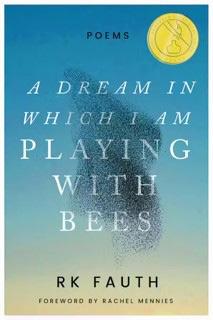
January 2024
96 pages
Poetry / Nature
Rights: World
45 Texas Tech University Press ttupress.org

May 2024
256 pages
Nonfiction / Nature
Rights: World
Going to Seed
Essays on Idleness, Nature, and Sustainable Work
KATE J. NEVILLE
An abandoned place, a disheveled person, a shabby or deteriorating state: we describe such ruin colloquially as “going to seed.” But gardeners will protest: going to seed as idle? No, plants are sending out compressed packets filled with the energy needed to sow new life. A pause from flowering gives a chance for the seeds to form. In a time of urgent environmental change, of pressing social injustice, and of ever-advancing technologies and global connections, we often respond with acceleration—a speeding up and scaling up of our strategies to counter the damage and destruction around us. But what if we take the seeds as a starting point: what might we learn about work, sustainability, and relationships on this beleaguered planet if we slowed down, stepped back, and held off?
Going to Seed explores questions of idleness, considering the labor both of humans and of the myriad other inhabitants of the world. Drawing on science, literature, poetry, and personal observation, these winding and sometimes playful essays pay attention to the exertions and activities of the other-than-human lives that are usually excluded from our built and settled spaces, asking whose work and what kinds of work might be needed for a more just future for all.
Kate Neville is an associate professor in Political Science and the School of the Environment at the University of Toronto, where she studies global energy and resource politics and community resistance. When not in Toronto, Kate can be found in a cabin in northern British Columbia, on the territory of the Taku River Tlingit First Nation.

46
University of Georgia Press
About University of Georgia Press
Since its founding in 1938, the primary mission of the University of Georgia Press has been to support and enhance the University’s place as a major research institution by publishing outstanding works of scholarship and literature by scholars and writers throughout the world.
The University of Georgia Press is the oldest and largest book publisher in the state. We currently publish 60–70 new books a year and have a long history of publishing significant scholarship (in fields such as Atlantic World and American history, American literature, African American studies, American studies, Southern studies, environmental studies, geography, urban studies, international affairs, and security studies), creative and literary works in conjunction with major literary competitions and series, and books about the state and the region for general readers.
ugapress.org
Lived Resistance against the War on Palestinian Children
HEIDI MORRISON, EDITOR
Despite the increasing volume of scholarship that shows children as political actors, prior to this book, a cohesive framework was lacking that would more fully examine and express children’s relationship with political power. Rather than simply hitching children’s resistance to standard theories of resistance, Heidi Morrison seeks to meet children on their own terms.
Through the case study of Palestinian children, Contributors theorize children’s resistance as an embodied experience called lived resistance. A critical aspect of the study of lived resistance is not just documenting what children do but specifically how scholars approach the topic of children’s resistance. With Lived Resistance against the War on Palestinian Children, the authors account for the vessel (i.e., the physical body) through which their resistance generates and operates.
The diverse group of chapter authors examine Palestinian children’s art and media, imprisonment, parenting, bereavement, neoliberalism, refugee camps, and protest movements as aspects of their collective and individual political power. Through these outlets, the book shows consistencies and contends that these children’s relationship to political power operates from an inclusive model of citizenship and is social-justice oriented, symbolically oriented, and contingently based.
Heidi Morrison is associate professor of history at the University of Wisconsin–Lacrosse. She is author or editor of five books, including Inner Wounds: Oral Histories of Palestinian Children’s Trauma and the Second Intifada; Childhood and Colonial Modernity in Egypt; and A Cultural History of Youth

August 2024
352 pages
Children, Youth, and War Ser.
Rights: World
47

May 2024
248 pages
Geographies of Justice and Social Transformation Ser.
Rights: World

November 2023
232 pages
Social Science / Emigration & Immigration / Political Science / Public Policy / Immigration / Labor & Industrial Relations / History / Europe / Italy
Rights: World
Cultivating Socialism
Venezuela, ALBA, and the Politics of Food Sovereignty ROWAN LUBBOCK
Launched in 2004, the Latin American regional institution of ALBA (Alianza Bolivariana para los Pueblos de Nuestra: Bolivarian Alliance for the Peoples of Our America) sought to overcome the historical legacies of neo-colonial domination by consecrating the values of cooperation, inclusive development, and popular power. As part of a region-wide effort among states and social movements to break the socio-ecologically destructive effects of capitalist agriculture, the elevation of food sovereignty—based on the protections of rural livelihoods, land redistribution and sustainable agricultural production (agroecology)— became a cornerstone of ALBA’s development policy. And yet, these regional aspirations barely saw the light of day, while Venezuela (the beating heart of ALBA) experienced the worst food crisis in its history. How did this come to pass? Based on extensive fieldwork in Venezuela, where the majority of ALBA’s food policies reside, Cultivating Socialism provides the first in-depth study of the ways in which peasants, workers and states attempted to redress the inequities of commercialised agriculture, and the limits and contradictions encountered on the road to a regional food sovereignty regime. The politics of food sovereignty within ALBA thus offers important lessons for how we might think about emancipatory politics today, and for the future.
Rowan Lubbock is Lecturer in International Political Economy of Development at the Queen Mary University of London.
Partners in Gatekeeping
How Italy Shaped U.S. Immigration Policy Over Ten Pivotal Years, 1891-1901 LAUREN BRAUN-STRUMFELS
Partners in Gatekeeping illuminates a complex, distinctly transnational story that recasts the development of U.S. immigration policies and institutions. Lauren Braun-Strumfels challenges existing ideas about the origins of remote control by paying particular attention to two programs supported by the Italian government in the 1890s: a government outpost on Ellis Island called the Office of Labor Information and Protection for Italians and rural immigrant colonization in the American South—namely a "plantation" in Arkansas called Sunnyside. Through her examination of these distinct locations, Braun-Strumfels argues that we must consider Italian migration as an essential piece in the history of how the United States became a gatekeeping nation. In particular, she details how an asymmetric partnership emerged between the United States and Italy to manage that migration.
Lauren Braun-Strumfels is an associate professor in the history department at Cedar Crest College. She was also a Fulbright Scholar at Universita Roma Tre in 2020.

48
The Mosquito Confederation
A Borderlands History of Colonial Central America
DANIEL MENDIOLA
Relying on extensive new archival discoveries, The Mosquito Confederation demonstrates that the rise and decline of the Mosquito confederation was not merely a footnote in Central American history, nor was the confederation relegated to the margins of the colonial world. Indeed, the Mosquito were protagonists in shaping the region's complex history, and the confederation's expansionist geopolitical program represented a "conquest" in its own right. In describing these processes, Mendiola excavates the roles of diverse peoples in Central America's Caribbean borderlands including "thoughtful Mosquito leaders who balanced complex geopolitical considerations, Afro-descended Central Americans who shaped Spanish and English responses to the Mosquito, and Amerindians who moved among Spanish, English, and Mosquito worlds.
Daniel Mendiola is an assistant professor of history at Vassar College.
Best Copy Available
A True Crime Memoir JAY BARON NICORVO
In the winter of 1984, Sharon Nicorvo was violently raped while delivering pizza to the barracks at Fort Monmouth Army Base in New Jersey. At that time, her seven-year-old son Jay was being subjected to repeated and secret sexual abuse by his babysitter. Best Copy Available delves into these devastating events and their aftermath. Thirty years later, Nicorvo received a photocopy of the criminal investigation report generated from that brutal night, which offers a primer to better understand certain assumptions. About class and race. Sex and violence. Crime and punishment. Low and high culture. Sanity, madness, and masculinity. And the facsimile nature of the truth.
Jay Baron Nicorvo is the author of the novel The Standard Grand and a poetry collection, Deadbeat. His nonfiction has twice been named "Notable" in Best American Essays. Nocorvo's writing has been featured on NPR and PBS NewsHour. He's served as an editor at PEN America, the literary magazine of the PEN American Center, and at Ploughshares. He lives with his wife, Thisbe Nissen, their son, a couple of cats, a dog, and a dozen chickens on a defunct farm outside of Battle Creek, Michigan. Find Jay at nicorvo.net
April 2025
248 pages
Early American Places
Rights: World
September 2024
240 pages
Memoir
Rights: World
49
of Georgia Press ugapress.org
University

December 2024
264 pages
Music of the American South Rights: World
Kill Your Masters
Run the Jewels and the World That Made Them JAAP VAN DER DOELEN
In Kill Your Masters, Dutch music journalist Jaap van der Doelen tells the story of two rappers in the twiligh of their careers who suddenly find themselves ascending to the heights of pop culture icons while fighting for change in a world about to fall prey to fascism. "It shouldn't have happened," van der Doelen writies. "Hiphop has long been considered a young man's game...and yet two rappers well into their forties have managed to find cross-generational success." This book starts with the stories of how Killer Mike and El-p got their starts as solo artists (in Atlanta and Brooklyn, respectively) and culminates with "Holy Calamavote" in October 2020—a live televised event where Run the Jewels performed their fourth album in its entirety in an effort to motivate as many people as possible to register to vote in the 2020 presidential elections. Van der Doelen relies on multiple interviews he has conducted with RTJ along with conversations Mike and Jamie have had with other music journalists over the years.
Jaap van der Doelen is a journalist whose writing regularly appears in Mass Appeal, Complex, DJBooth, Passion of the Weiss, SAM (Street and More), and Hiphop in je Smoel. He also reports on culture and sports in Dutch newspapers like Algemeen Dagblad, Eindhovens Dagblad, and Brabants Daglad

50
University of Nebraska Press
About University of Nebraska Press
The University of Nebraska Press extends the University’s mission of teaching, research, and service by promoting, publishing, and disseminating works of intellectual and cultural significance and enduring value.
The University of Nebraska Press, founded in 1941, is the largest university press between Chicago and California. It publishes scholarly and general-interest books (with more than 5,000 titles in print and an additional 150 new titles released each year) and journals (with more than 30 different journals published each year) in topics ranging from anthropology and literary criticism to history and sports. In addition to the Nebraska imprint, the Press also publishes books under Bison Books, The Backwaters Press, and Potomac Books imprints and publishes the books of The Jewish Publication Society. The Journals division produces the publications of Nebraska Extension, a division of the University of Nebraska’s Institute of Agriculture and Natural Resources.
nebraskapress.unl.edu
In Search of the Romanov's
A Family's Quest to Solve One of History's Most Brutal Crimes
PETER SARANDINAKI
In 1918 a famed general of the Russian White Army battled through the Red Army to save Emperor Nicholas II—but he arrived too late. The Romanovs had already been murdered. In this thrilling true-life detective story, we follow Anna, the general’s courageous young daughter, who fled across the continent and boarded a ship with her husband to escape the bloodshed. Beneath her bunk was a box, and in this box lay grisly evidence of what had become of Russia’s royal family, the Romanovs. Generations later, Anna’s grandson Peter Sarandinaki set out to finish his great-grandfather’s mission to find the Romanovs’ remains, enlisting searchers and scientists to finally piece together the answers to some of history’s most perplexing questions: What really happened to Tsar Nicholas, Empress Alexandra, and his family?
Set against the disparate backdrops of the Russian Revolution and the twenty-first century’s leading DNA laboratories, In Search of the Romanovs weaves together historical records, forensic science, and the diaries, recollections, and experiences of Sarandinaki’s own family. A riveting and deeply personal story, Sarandinaki reveals hidden truths in the legends about the murder and disappearance of Russia’s most famous royal family
Peter Sarandinaki is a retired sea captain now living in Toms River, New Jersey, with his wife. He is the great-grandson of Lieutenant General Sergey Nikolaevich Rozanov, the White Army commander in the eastern Amur region of Russia who was among the first men to enter the Ipatiev House in Yekaterinburg, where the Romanovs were murdered. Sarandinaki has worked on the Romanov case for more than thirty years.

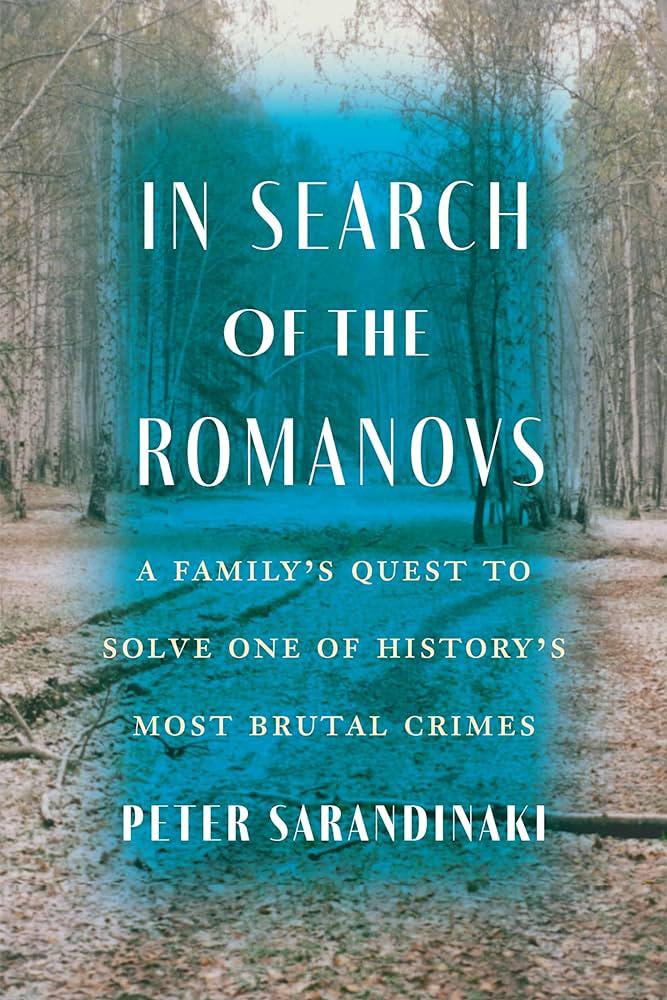
July 2024
304 pages
History
Rights: World
51
August 2024
390 pages
Jewish History & Culture Rights: World
Between the Wires
The Janowska Camp and the Holocaust in Lviv WAITMAN WADE BEORN
Between the Wires tells for the first time the history of the Janowska camp in Lviv, Ukraine. Located in a city with the third-largest ghetto in Nazi-occupied Europe, Janowska remains one of the least-known sites of the Holocaust, despite being one of the deadliest. Simultaneously a prison, a slave labor camp, a transit camp to the gas chambers, and an extermination site, this hybrid camp played a complex role in the Holocaust.
Based on extensive archival research, Between the Wires explores the evolution and the connection to Lviv of this rare urban camp. Waitman Wade Beorn reveals the exceptional brutality of SS staff alongside an almost unimaginable will to survive among prisoners facing horrendous suffering, whose resistance included an armed uprising. This integrated chronicle of perpetrators, victims, and bystanders follows the history of the camp into the postwar era, including attempts to bring its criminals to justice.
Waitman Wade Beorn is an assistant professor of history at the University of Northumbria in Newcastle, UK. He is the author of Marching Into Darkness: The Wehrmacht and the Holocaust in Belarus (Harvard, 2014) and The Holocaust in Eastern Europe: At the Epicenter of the Final Solution (Bloomsbury, 2018).
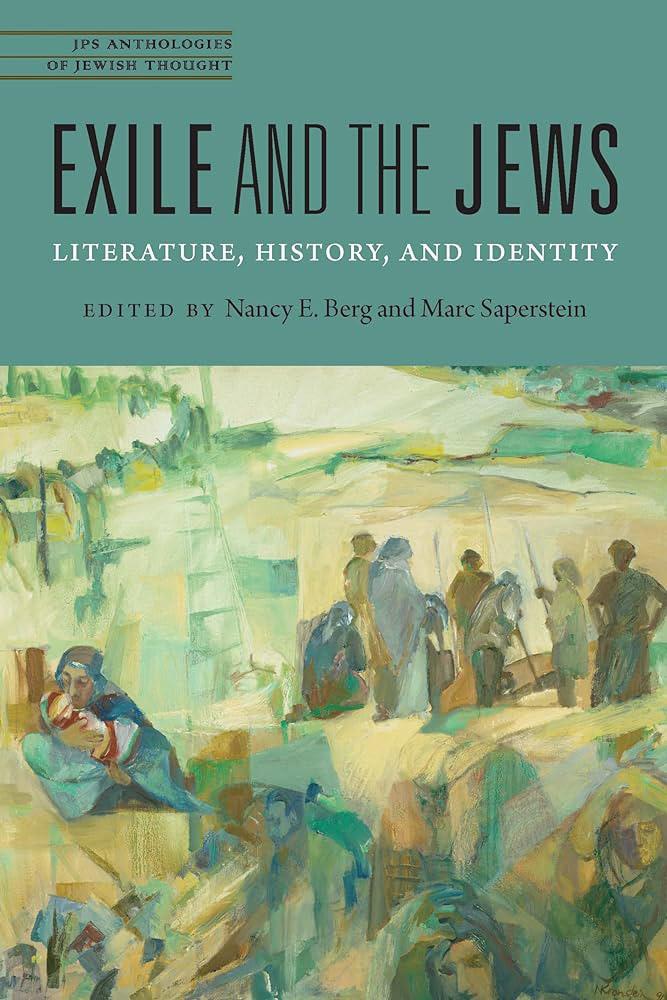
April 2024
330 pages
Jewish History & Culture
Rights: World
Exiles and the Jews
Literature, History, and Identity
NANCY E. BERG & MARC SAPERSTEIN
This first comprehensive anthology examining Jewish responses to exile from the biblical period to our modern day gathers texts from all genres of Jewish literary creativity to explore how the realities and interpretations of exile have shaped Judaism, Jewish politics, and individual Jewish identity for millennia. Ordered along multiple arcs—from universal to particular, collective to individual, and mythic-symbolic to prosaic everyday living—the chapters present different facets of exile: as human condition, in history and life, in holiday rituals, in language, as penance and atonement, as internalized experience, in relation to the Divine Presence, and more. By illuminating the multidimensional nature of “exile”— political, philosophical, religious, psychological, and mythological—widely divergent evaluations of Jewish life in the Diaspora emerge. The word “exile” and its Hebrew equivalent, galut, evoke darkness, bleakness—and yet the condition offers spiritual renewal and engenders great expressions of Jewish cultural creativity: the Babylonian Talmud, medieval Jewish philosophy, golden age poetry, and modern Jewish literature.
Exile and the Jews will engage students, academics, and general readers in contemplating immigration, displacement, evolving identity, and more.
Nancy E. Berg is professor of Hebrew and comparative literature at Washington University in St. Louis. She is the author of Exile from Exile: Israeli Writers from Iraq and coeditor with Naomi B. Sokoloff of the National Jewish Book Award–winning What We Talk about When We Talk about Hebrew (And What It Means to Americans). Marc Saperstein served as principal and professor of Jewish history and homiletics of the Leo Baeck College, London. His dozen books include “Your Voice like a Ram’s Horn”: Themes and Texts in Traditional Jewish Preaching, a National Jewish Book Award winner in Scholarship, and Agony in the Pulpit: Jewish Preaching in Response to Nazi Persecution and Mass Murder, 1933–1945

52
Pakistan and American Diplomacy
Insights from 9/11 to the Afganistan Endgame
THEODORE CRAIG
Pakistan and American Diplomacy offers an insightful, fast-moving tour through Pakistan-U.S. relations, from 9/11 to the U.S. withdrawal from Afghanistan, as told from the perspective of a former U.S. diplomat who served twice in Pakistan. Ted Craig frames his narrative around the 2019 Cricket World Cup, a contest that saw Pakistan square off against key neighbors and cricketing powers Afghanistan, India, and Bangladesh, and its former colonial ruler, Britain.
Craig provides perceptive analysis of Pakistan’s diplomacy since its independence in 1947, shedding light on the country’s contemporary relations with the United States, China, India, Sri Lanka, and Afghanistan. With insights from the field and from Washington, Craig reflects on the chain of policy decisions that led to the fall of the Kabul government in 2021 and offers a sober and balanced view of the consequences of that policy failure. Drawing on his post–Cold War diplomatic career, Craig presents U.S.-Pakistan policy in the context of an American experiment in promoting democracy while combating terrorism.
Currently serving again in South Asia as a counterterrorism program advisor, Ted Craig retired from the U.S. Foreign Service after twenty-nine years and two tours in Islamabad, Pakistan, the second as political counselor. He also served three tours in Latin America and held policy jobs related to peace and security, environmental diplomacy, and human rights.
Maricas
Queer Culture and State Violence in Argentina and Spain, 1942-1982 JAVIER FERNÁNDEZ-GALEANO
In Maricas Javier Fernández-Galeano traces the erotic lives and legal battles of Argentine and Spanish gender- and sexually nonconforming people who carved out their own spaces in metropolitan and rural cultures between the 1940s and the 1980s. In both countries, agents of the state, judiciary, and medical communities employed “social danger” theory to measure individuals’ latent criminality, conflating sexual and gender nonconformity with legal transgression. The first English-language monograph on the history of twentieth-century state policies and queer cultures in Argentina and Spain, Maricas demonstrates the many ways queer communities and individuals in Argentina and Spain fought against violence, rejected pathologization, and contested imposed, denigrating categorization.
Javier Fernández-Galeano is a Ramón y Cajal Fellow at the University of València.

April 2024
288 pages
World & National Affairs Rights: World
June 2024
322 pages
History Rights: World
53 University of Nebraska Press nebraskapress.unl.edu
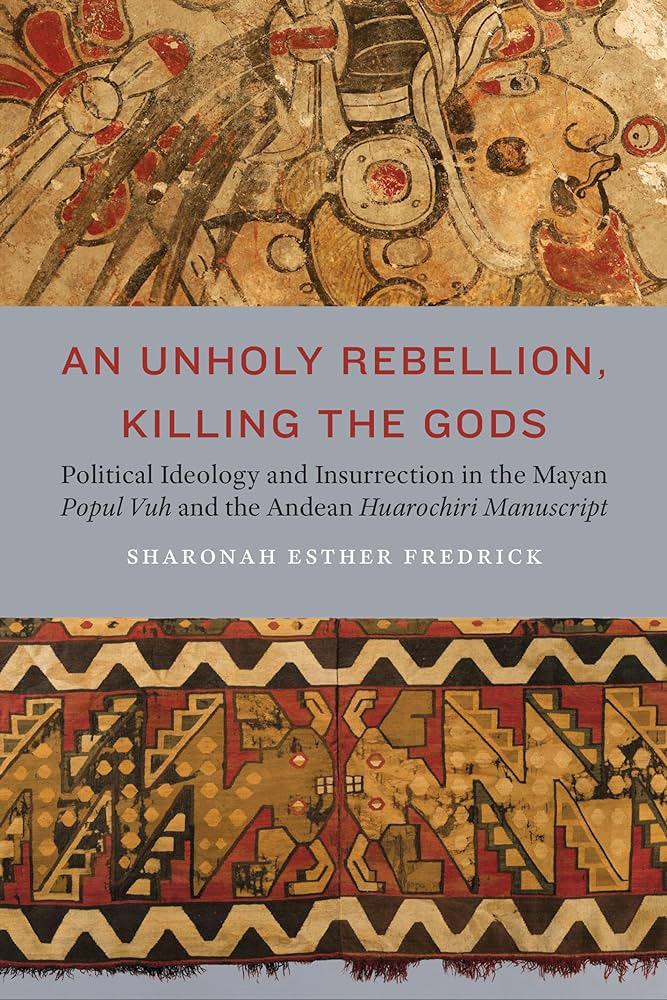
August 2024
368 pages
Native American & Indigenous Studies Rights: World

August 2024
400 pages
Jewish History & Culture Rights: World
An Unholy Rebellion, Killing the Gods
Political Ideology and Insurrection in the Mayan Popul Vuh and the Andean Huarochiri Manuscript
SHARONAH ESTHER FREDRICK
An Unholy Rebellion, Killing the Gods is the first comprehensive comparison of two of the greatest epics of the Indigenous peoples of Latin America: the Popul Vuh of the Quiché Maya of Guatemala and the Huarochiri Manuscript of Peru’s lower Andean regions. The rebellious tone of both epics illuminates a heretofore overlooked aspect in Latin American Indigenous colonial writing: the sense of political injustice and spiritual sedition directed equally at European-imposed religious practice and at aspects of Indigenous belief. The link between spirituality and political upheaval in Native colonial writing has not been sufficiently explored until this work.
Sharonah Esther Fredrick applies a multidisciplinary approach that utilizes history, literature, archaeology, and anthropology in equal measure to situate the Mayan and Andean narratives within the paradigms of their developing civilizations. By demonstrating the power of Native American philosophy within the context of the conquest of Latin America, Fredrick illuminates the profound spiritual dissension and radically conflicting ideologies of the Mesoamerican and Andean worlds before and after the Spanish conquest.
Sharonah Esther Fredrick teaches in the College of Charleston’s Department of Hispanic Studies. She is the Colonial Americas editor for Routledge Resources Online—The Renaissance World
The Triumph of Life
A Narrative Theology of Judiasm RABBI IRVING GREENBERG
The Triumph of Life is Rabbi Irving Greenberg’s magnum opus—a narrative of the relationship between God and humanity as expressed in the Jewish journey through modernity, the Holocaust, the creation of Israel, and the birth of Judaism’s next era.
Greenberg describes Judaism’s utopian vision of a world created by a God who loves life, who invites humans to live on the side of life and enables the forces of life to triumph over death. The Bible proclaims our mission of tikkun olam, repairing the world, such that every human image of God is sustained in the fullness of our dignity. To achieve this ideal, Judaism offers the method of covenant—realistic, personal, incremental—a partnership between God and humanity across generations in which human beings grow ever more responsible for world repair.
Greenberg calls on us to redirect humanity’s unprecedented power in modernity to overcome poverty, oppression, inequality, sickness, and war. The work of covenant requires an ethic of power—one that advances life collaboratively and at a human pace—so that the Jewish people and all humanity can bring the world toward the triumph of life.
Rabbi Irving Greenberg is a preeminent Jewish thinker, theologian, activist, president of the J.J. Greenberg Institute for the Advancement of Jewish Life, and senior scholar in residence at Hadar. He is the author of five books, including For the Sake of Heaven and Earth: The New Encounter between Judaism and Christianity (JPS, 2004).

54
Mary's Place
A Novel
CHARLOTTE HINGER
Iron and Mary Barrett’s farming family is rural royalty, their success symbolized by a magnificent three-story house, Mary’s Place. Years in the building, the house is a testament to Mary’s grit and organizational abilities. But when bank examiners apply new ratings for agricultural loans in the 1980s, the family’s belief that its prosperity is a natural outcome of hard work is sent reeling.
Bank president J.C. Espy had never done anything crooked in his life until the FDIC changed the rules for agricultural loans. After becoming desperate to save his hundred-year-old bank, he worries that his resulting choice will cause his friend Iron to lose his land. Frantically J.C. works to convince Iron he will lose everything if he doesn’t comply with the new standards. In the meantime, both Iron and J.C. must negotiate with sons who have contempt for their fathers’ old-fashioned values. While Iron agonizes, Mary maneuvers to keep the family together and save the farm.
Mary’s Place is an unforgettable tribute to the rural families who weathered one of the worst agricultural disasters in American history.
Charlotte Hinger is the award-winning author of a number of historical and mystery novels, including The Healer’s Daughter and Come Spring, as well as the nonfiction book Nicodemus: Post-Reconstruction Politics and Racial Justice in Western Kansas.
An Endangered Species
A Novel
FRANCES WASHBURN
Tom Warder, born on the Pine Ridge Reservation, works at the LaCreek refuge, which hosts the nation’s last remaining trumpeter swans. The refuge manager assigns Tom, who owns land adjacent to the refuge, to be the swans’ day-to-day caretaker. Tom’s land isn’t productive enough to make a sole living from it, so he leases grazing rights to white rancher Bart Johnson.
Bart has fallen into debt and is unable to pay the lease he owes not only on Tom’s land but also on land he leases from other Native landowners. As he sinks into debt his wife, Betty, becomes more extravagant and resistant to pleas for economy, while their son, Brian, becomes fascinated with hunting and begins stalking the trumpeter swans for the thrill of killing one. As his finances and his family fall apart, Bart takes to drinking. Meanwhile Tom’s wife, Anna, and three daughters struggle to make ends meet, though their eldest daughter, Bit, who often assists her father in the care of the swans, is bright and determined to become something. Where Bit is the hope of her family, Brian is the disaster of his.
An Endangered Species is a tale of two families, each with their own strengths and weaknesses, bound to circumstances largely beyond their control, and struggling to survive on the upper Great Plains during the 1960s.
Frances Washburn (Lakota) is emerita professor of American Indian studies and English at the University of Arizona. She is the author of Elsie’s Business (Nebraska, 2006), Sacred White Turkey (Nebraska, 2010), and The Red Bird All-Indian Traveling Band
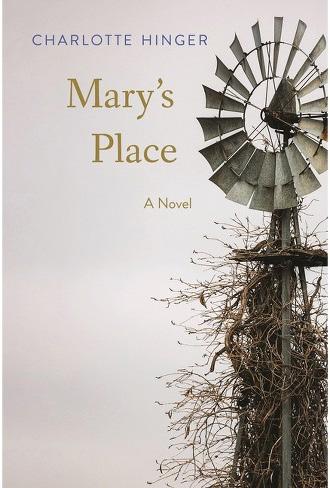
July 2024
306 pages
Western Fiction Rights: World

June 2024
304 pages
Western Fiction Rights: World
55
of Nebraska Press nebraskapress.unl.edu
University

November 2023
250 pages
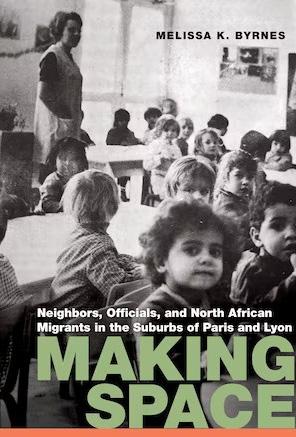
January 2024
250 pages
History / Europe / France Rights: World
Who Are the Jews—And Who Can We Become?
DONNIEL HARTMAN
Who Are the Jews—And Who Can We Become? tackles perhaps the most urgent question facing the Jewish people today: Given unprecedented denominational tribalism, how can we Jews speak of ourselves in collective terms? Crucially, the way each of us tells our “shared” story is putting our collective identity at risk, Donniel Hartman argues. We need a new story, built on Judaism’s foundations and poised to inspire a majority of Jews to listen, discuss, and retell it. This book is that story.
Since our beginnings, Hartman explains, the Jewish identity meta-narrative has been a living synthesis of two competing religious covenants: Genesis Judaism, which defines Jewishness in terms of who one is and the group to which one belongs, independent of what one does or believes; and Exodus Judaism, which grounds identity in terms of one’s relationship with an aspirational system of values, ideals, beliefs, commandments, and behaviors. When one narrative becomes too dominant, Jewish collective identity becomes distorted. Conversely, when Genesis and Exodus interplay, the sparks of a rich, compelling identity are found.
Hartman deftly applies this Genesis-Exodus meta-narrative as a roadmap to addressing contemporary challenges, including Diaspora Jewry’s eroding relationship with Israel, the “othering” of Israeli Palestinians, interfaith marriage, the Israeli-Palestinian conflict, and— collectively—who we Jews can become.
Donniel Hartman is president of the Shalom Hartman Institute, where he holds the Kaufman Family Chair in Jewish Philosophy. He is the author of Putting God Second: How to Save Religion from Itself and The Boundaries of Judaism, among other books; the founder of religious education, training, and enrichment programs in Israel and North America; and host of the popular Jewish podcast For Heaven’s Sake
Making Space
Neighbors, Officials, and North African Migrants in the Suburbs of Paris and Lyon MELISSA K. BYRNES
Since the 2005 urban protests in France, public debate has often centered on questions of how the country has managed its relationship with its North African citizens and residents. In Making Space Melissa K. Byrnes considers how four French suburbs near Paris and Lyon reacted to rapidly growing populations of North Africans, especially Algerians before, during, and after the Algerian War. In particular, Byrnes investigates what motivated local actors such as municipal officials, regional authorities, employers, and others to become involved in debates over migrants’ rights and welfare, and the wide variety of strategies community leaders developed in response to the migrants’ presence. An examination of the ways local policies and attitudes formed and re-formed communities offers a deeper understanding of the decisions that led to the current tensions in French society and questions about France’s ability—and will—to fulfill the promise of liberty, equality, and fraternity for all of its citizens. Byrnes uses local experiences to contradict a version of French migration history that reads the urban unrest of recent years as preordained.
Melissa K. Byrnes is a professor of modern European and world history at Southwestern University in Georgetown, Texas.

56
Religion / BIblical Studies / History and Culture / Inspirational / Judaism Rights: World
Galloping Gourmet
Eating and Drinking with Buffalo Bill
STEVE FRIESEN
In this entertaining narrative Steve Friesen explores the role of eating and drinking in Buffalo Bill's life, his related experiences and enterprises, and the many meals he had with other celebrities of his day. One is struck by the variety and abundance of foods in all of those meals, from formal banquets he attended to the daily diet of performers in his show.
He lived at a time when there was a burgeoning of food options, many of which had been available only on a limited basis. His era was the dawn of a bountiful consumption that continued into the 20th century. A wide range of foods, and large quantities of them, previously available only to royalty and aristocracy, were now accessible to America's and Europe's middle and upper classes. One newspaper reporter observed that "Colonel Cody displays no more care about anything than the proper feeding of horse and man." His concern for those who worked for him was greater than many bosses of his time and certainly extended to providing fine food, and plenty of it, to them. He also became a "missionary" for western foods in the United States and for American cookery in general as the show traveled overseas.
Steve Friesen (MA, SUNY, Cooperstown Graduate Program) is the former director of the Buffalo Bill Museum and Grave near Denver, Colorado.
The Gas and Flame Men
Baseball and the Chemical Warfare Service during World War I JIM LEEKE
The Chemical Warfare Service was launched by the U.S. Army within months of Germany's drastic poison gas attack at Ypres in 1915. Among those who served in what would become known as the Hellfire Battalion were chemists and other scientists, architects, and elite athletes—including some of the most famous names in baseball. The Gas and Flame Men tells how chemical warfare changed the course of World War I—and the future of war in general. It also had lasting effects on baseball, with players such as Ty Cobb and Christy Mathewson suffering lung injuries that changed how they played the game.
Jim Leeke is a former news journalist and U.S. Navy veteran, has covered major league baseball for a Northern California suburban daily and has worked for legendary sportswriter Leonard Koppett.

December 2023
180 pages History / Food Rights: World

February 2024
285 pages
World War I / Sports Rights: World
57 University of Nebraska Press nebraskapress.unl.edu

December 2023
History / Polar Regions
Rights: World

December 2023
278 pages
World War II / Women
Rights: World
Brand Antarctica
How Global Consumer Culture Shapes Our Perceptions of the Ice Continent HANNE ELLIOT FØNSS NIELSEN
Antarctica is, and has always been, very much “for sale.” Whales, seals, and ice have all been marketed as valuable commodities, but so have the stories of explorers. The modern media industry developed in parallel with land-based Antarctic exploration, and early expedition leaders needed publicity to generate support for their endeavors. Their lectures, narratives, photographs, and films were essentially advertisements for their adventures. At the same time, popular media began to use the newly encountered continent to draw attention to commercial products. These advertisements both trace the commercialization of Antarctica and reveal how commercial settings have shaped the dominant imaginaries of the place.
By contextualizing and analyzing Antarctic advertisements from the late nineteenth century to the present, Brand Antarctica identifies five key framings of the South Polar continent: a place for heroes, a place of extremity, a place of purity, a place to protect, and a place that transforms. Demonstrating how these conceptual framings of Antarctica in turn circulate through our culture, Hanne Elliot Fønss Nielsen challenges common assumptions about Antarctica’s past and present, encouraging readers to rethink their own relationship with the Far South.
Hanne Elliot Fønss Nielsen is a senior lecturer in Antarctic law and governance at the Institute for Marine and Antarctic Studies at the University of Tasmania. In addition to her Antarctic research, she has spent five seasons working in Antarctica as a polar tourism guide.
Of Love and War
Pacific Brides of World War II ANGELA WANHALLA
In Of Love and War Angela Wanhalla details the intimate relationships forged during wartime between women and U.S. servicemen stationed in the South Pacific, traces the fate of wartime marriages, and addresses consequences for the women and children left behind. Paying particular attention to the experiences of women in New Zealand and in the island Pacific—including Tonga, Fiji, Samoa, and the Cook Islands—Of Love and War aims to illuminate the impact of global war on these women, their families, and Pacific societies. Wanhalla argues that Pacific war brides are an important though largely neglected cohort whose experiences of U.S. military occupation expand our understanding of global war. By examining the effects of American law on the marital opportunities of couples, their ability to reunite in the immediate postwar years, and the citizenship status of any children born of wartime relationships, Wanhalla makes a significant contribution to a flourishing scholarship concerned with the intersections between race, gender, sexuality, and militarization in the World War II era.
Angela Wanhalla (Ngāi Te Ruahikihiki, Ngāi Tahu) is a professor of history at the University of Otago, New Zealand. She is the coauthor of He Reo Wāhine: Māori Women’s Voices from the Nineteenth Century and author of Matters of the Heart: A History of Interracial Marriage in New Zealand, winner of the Ernest Scott Prize for best book in Australian and New Zealand history in 2014.

58
Yochanan's Gamble
Judaism's Pragmatic Approach to Life
RABBI MARC KATZ
Yochanan's Gamble investigates how the talmudic Rabbis navigate their own ethical challenges—determining truth, upholding compromise, convincing others, keeping the peace, weighing sinning in hopes of promoting greater good—thereby forging a pragmatic Jewish path for resolving moral conundrums today.
Rabbi Marc Katz is the rabbi at Temple Ner Tamid in Bloomfield, NJ. He is the author of The Heart of Loneliness: How Jewish Wisdom Can Help You Cope and Find Comfort, a National Jewish Book Award Finalist.
Thanks for This Riot
Stories
JANELLE BASSETT
Winner of the Raz/Shumaker Prarie Schooner Book Prize in Fiction, Thanks for This Riot explores the limits of kindness, the weight of being needed, and the fear of being misunderstood.
Janelle Bassett's writing appears or is forthcoming in The Rumpus, New Delta Review, Smokelong Quarterly, American Literary Review, The Offing, Washington Square Review, Wigleaf, and Best Microfiction 2023 She lives in St. Louis and is a fiction editor at Split Lip Magazine
The Spring Before Obergefell
A Novel
BEN GROSSBERG
It's not easy for a middle-aged gay man to find love out in small town America, so when Mike Breck blows his shot with a local guy just as lonely as he is, he's got to open up to the people around him to figure out how to angle for a second chance.
Ben Grossberg is a professor of English and Director of Creative Writing at the University of Hartford. He is the author of four full-length books of poetry, My Husband Would (University of Tampa, 2020), Space Traveler (University of Tampa, 2014), Underwater Lengths in a Single Breath (Ashland Poetry Press, 2007), and Sweet Core Orchard (University of Tampa, 2009).
December 2024
290 pages
Religion / Judaism / Ethics Rights: World
University of Nebraska Press nebraskapress.unl.edu
September 2024
Fiction / Short Stories / Feminist Rights: World
October 2024
Fiction / Literary / LGBTQ+ Rights: World
59
November 2024
History / Wars & Conflicts / WWII
Rights: World
September 2024
Fiction / Animals
Rights: World
December 2023
278 pages
World War II / Women
Rights: World
Spaces of Treblinka
Retracing a Death Camp JACOB FLAWS
A reconceptualization of Treblinka that maps Jewish, Polish, and German experiences for the first time to reveal how the lived experiences of these transnational groups in and near the camp overlapped and interacted in ways generally taken for granted.
Jacob Flaws (PhD, University of Colorado-Boulder, 2020) is a Lecturer at Arizona State University in Tempe, Arizona. His work has been published in The Journal of Holocaust Research
The Scent of Distant Family
A Novel SID SIBO
Set against the backdrop of a remote location in the throes of rapid development, The Scent of Distant Family is a contemporary novel that can expand, even across geologic time, our sense of who we choose to consider family.
sid sibo (MFA, University of Maine, 2019) is a former Wyoming Humanities Council Board member, library outreach coordinator and current creative author. After years of volunteering in animal rescue, she founded a local shelter where she now resides in western Wyoming. She has earned the Neltje Blanchan Memorial Writing Award, and some of her previous work has been selected for Best Small Fictions 2022. Her literary publications include Orca, Cutthroat, Brilliant Flash Fiction, Evocations, Fourth River and others.
Nazis at the Watercooler War Criminals in Postwar Germany
TERRENCE C. PETTY
Nazis at the Watercooler chronicles a historic injustice quieted by German government officials and abetted by the CIA: the ease with which Nazi war criminals were able to land jobs in the postwar civil service, largely because of a callous indifference among German authorities about job candidates' wartime records.
Tererrence C. Petty (BA, University of Vermont, 1974) was an Associated Press journalist for thirty-five years. He was based in Bonn between 1987-1997, where he covered German and European affairs, traveling between West and East Germany during the Cold War. During the late 1980s and 1990s, from the pro-democracy movement and reunification to neo-Nazi violence and the fiftieth-anniversary cermonies at Dachau and Buchenwald, he filed extensively from the country. From 1999 to 2017, he managed the AP's news operation in Oregon. Before joining the AP, Petty worked for newspapers in Vermont and upstate New York.

60
University of New Mexico Press
About University of New Mexico Press
Established in 1929 by the Regents of the University of New Mexico, the University of New Mexico Press ranks within the top third of publishing houses in the Association of University Presses and is the fourth largest university press west of the Rocky Mountains in publishing new titles. With over 1,200 titles currently in print and as a distributor for local and regional publishers, the Press has been an important element in enhancing the scholarly reputation and worldwide visibility of the university.
The University of New Mexico Press participates in the public mission of the University of New Mexico through a publishing program that seeks to maintain the professional excellence of American university presses in general and to present the finest national and international scholarship in the academic areas in which we publish. We produce scholarly books in the arts, humanities, and natural and social sciences—more specifically, in the areas of fine arts, Western history, Latin American studies, literature, poetry, environmental studies, archaeology, anthropology, and natural history. In recognition of the university’s educational outreach and public role, we also publish books of general interest and significance for our state and our region.
unmpress.com
The Big Book of Hatch Chile
180 Great Recipes Featuring the World's Favorite Chile Pepper KELLEY CLEARY COFFEEN
New Mexico chiles grown around the village of Hatch are world famous for their culinary versatility, unique flavor, and varying levels of heat. In The Big Book of Hatch Chile Kelley Cleary Coffeen offers more than 180 detailed but easy-to-use recipes for everything from chile-laced Margaritas to several variations on the classic Green Chile Cheeseburger. Find amazing new recipes and familiar Hatch chile favorites, including weeknight time-savers and Saturday-night showstoppers. Spice up your home menus with everything from amazing appetizers to delicious desserts, soups and stews, Mexican classics, and many more. Complete with generous helpings of Hatch chile lore and history, The Big Book of Hatch Chile profiles family farms, restaurants, and everyone and everything that makes chile central to the identity of the Hatch valley and New Mexico.
Kelley Cleary Coffeen is a professor at New Mexico State University. She is a culinary expert, food consultant, and the author of five Mexican cookbooks, including Fiesta Mexicali; 300 Best Taco Recipes: From Tantalizing Tacos to Authentic Tortillas, Sauces, Cocktails and Salsas; and 200 Easy Mexican Favorites: Authentic Recipes From Burritos to Enchiladas. She lives in Las Cruces, New Mexico.
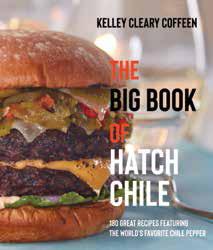
November 2023
368 pages
Cooking / Southwest / New Mexico
Rights: World
61

February 2024
Fiction
Rights: World
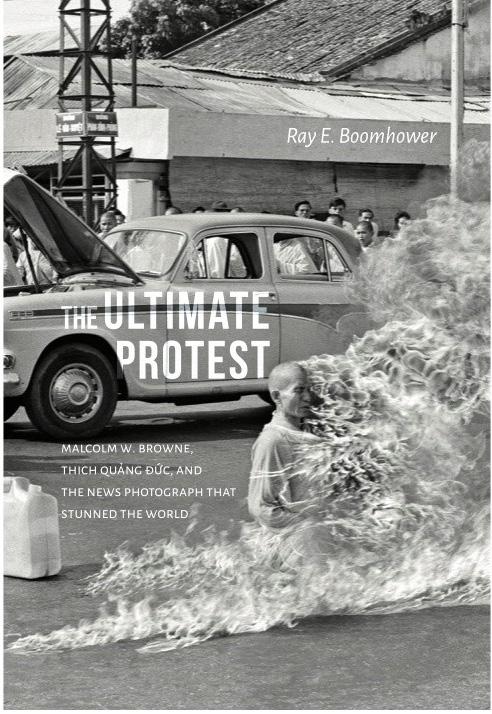
March 2024
344 pages
Biography / Journalism / Vietnam Era
Rights: World
Death Comes for the Archbishop
A Classic Novel of New Mexico
WILLA CATHER
EDITED AND WITH AN INTRODUCTION BY
RICHARD W. ETULAIN
Willa Cather is one of the greatest writers of twentieth-century American literature. Her masterwork Death Comes for the Archbishop tells the story of the French Catholic priest Jean Marie Latour, appointed to serve as the first bishop of the newly created diocese of New Mexico after the Mexican-American War. Along with his friend and vicar Joseph Vaillant, Latour makes the long journey to the newly annexed territory of New Mexico—a vast expanse that was once “the cradle of the Faith in the New World,” but where now the few priests are without guidance or discipline and where the old mission churches have fallen into ruin. Here, Latour and Vaillant encounter a completely strange and unfamiliar brand of Catholicism. But over time the two priests gradually learn to adjust to the ways of the New World Catholics and even open up their eyes to Native American religious ideas so seemingly distant from their own beliefs.
Willa Cather (1873-1947) was an American writer known for her spare, unswerving look at the American plains and west. She is the recipient of the Pulitzer Prize for her WWI novel One of Ours, and the author of classic novels O Pioneers! and My Antonia, in addition to her classic novel of New Mexico, Death Comes for the Archbishop
The Ultimate Protest
Malcom W. Brown, Thcih Quâng Dúc, and the News Photograph that Stunned the World RAY E. BOOMHOWER
The Ultimate Protest: Malcolm W. Browne, Thich Quảng Đức, and the News Photograph That Stunned the World examines how the most unlikely of war correspondents, Malcolm W. Browne, became the only Western reporter to capture Buddhist monk Thich Quảng Đức’s horrific self-immolation on June 11, 1963. Quảng Đức made his ultimate sacrifice to protest the perceived anti-Buddhist policies of the Catholic-dominated administration of South Vietnam’s president Ngo Dinh Diem. The Ultimate Protest explores the background of the Buddhist crisis in South Vietnam in the spring of 1963 that led to Quảng Đức’s self-sacrifice, as well as the worldwide reaction to Browne’s photograph, how it affected American policy toward Diem’s government, and the role the image played in the violent coup on November 1, 1963, that deposed Diem and led to his assassination.
The book also delves into the dynamics involved in covering the Vietnam War in the early days of the American presence and the pressures placed on the journalists—Browne and his colleague Peter Arnett from the AP, David Halberstam from the New York Times, and Neil Sheehan from United Press International—there to "get on the team" and stop raising doubts about how the war was going. Browne and Halberstam shared the 1964 Pulitzer Prize for international reporting for their reporting from Vietnam.
Ray E. Boomhower is a senior editor at the Indiana Historical Society Press. His books include The Soldier’s Friend: A Life of Ernie Pyle; Dispatches from the Pacific: The World War II Reporting of Robert L. Sherrod; and Richard Tregaskis: Reporting Under Fire from Guadalcanal to Vietnam
62
Embracing Autonomy
Latin American-US Relations in the Twenty-First Century GREGORY
WEEKS
Too many analyses of Latin American-U.S. relations focus primarily on the U.S. perspective.
Greg Weeks’ Embracing Autonomy departs from other general treatments of Latin American-U.S. relations not by putting U.S. policy aside, but by bringing in the Latin American and global contexts more closely and thus avoiding the incomplete picture provided by a narrow focus solely on the policies of the United States.
To do so, the book utilizes the concept of autonomy, which has been developed and used by Latin American analysts for decades. The core of autonomy for Latin America from the U.S. is seen in new, deeper, and more numerous relationships that do not include the United States. Broadly speaking, they can be political or economic. Political relationships include the creation and strengthening of international institutions, diplomatic initiatives, military agreements, and diplomatic summits. Economic ties include trade agreements, foreign investment, and loans. These are all things Latin American governments currently focus on, and more globally than in the past.
Gregory Weeks is Associate Dean for Academic Affairs at UNC Charlotte, and Professor of Political Science and Latin American Studies. For over two decades, he has published extensively on U.S.-Latin American Relations, Latin American Politics, and immigration. With Michael Allison, he is the author of U.S. and Latin American Relations, 3rd edition
Ride the High Country
Part of the Reel West Series
ROBERT NOTT
Director Sam Peckinpah was just starting out when he made Ride the High Country in 1962. The New York Times review referred to him as an “unknown,” though in truth he had already made a string of TV Westerns and one forgotten feature. He was a new kind of director, young, brash, and in a hurry to help the Western “grow up” by treating with adult themes. Ride the High Country was, for its time, something new and different, something a little reassuring and a little scary, a hybrid Western that let viewers know that not only was the ever-transitioning West changing, but so was the ever-transitioning Western. Stars Randolph Scott and Joel McRea were old hands at this sort of thing. Ride the High Country gave the two veteran actors one last job to do, a chance to go out with some dignity – exactly like the characters they played in the film. Just a year before the assassination of a popular president, the start of an unpopular war, and the turmoil of civil-rights protests that would upend the nation, Ride the High Country did in fact help the genre mature and adapt to the turbulent, changing times. It also launched Peckinpah’s career, and invoked all the themes honor, loyalty, and compromised ideals, the destruction of the West and its heroes, and the difficulty of doing right in an unjust world present in his later masterpiece The Wild Bunch
Robert Nott is the author of three books on Western film: The Films of Randolph Scott; Last of the Cowboy Heroes; and The Films of Budd Boetticher, all published by McFarland; and of Goin’ Crazy with Sam Peckinpah and all our Friends, co-authored with Max Evans and published by UNM Press. He has been a reporter for the Santa Fe New Mexican for the last 20 years.

March 2024
200 pages
Latin America / Politics / History Rights: World
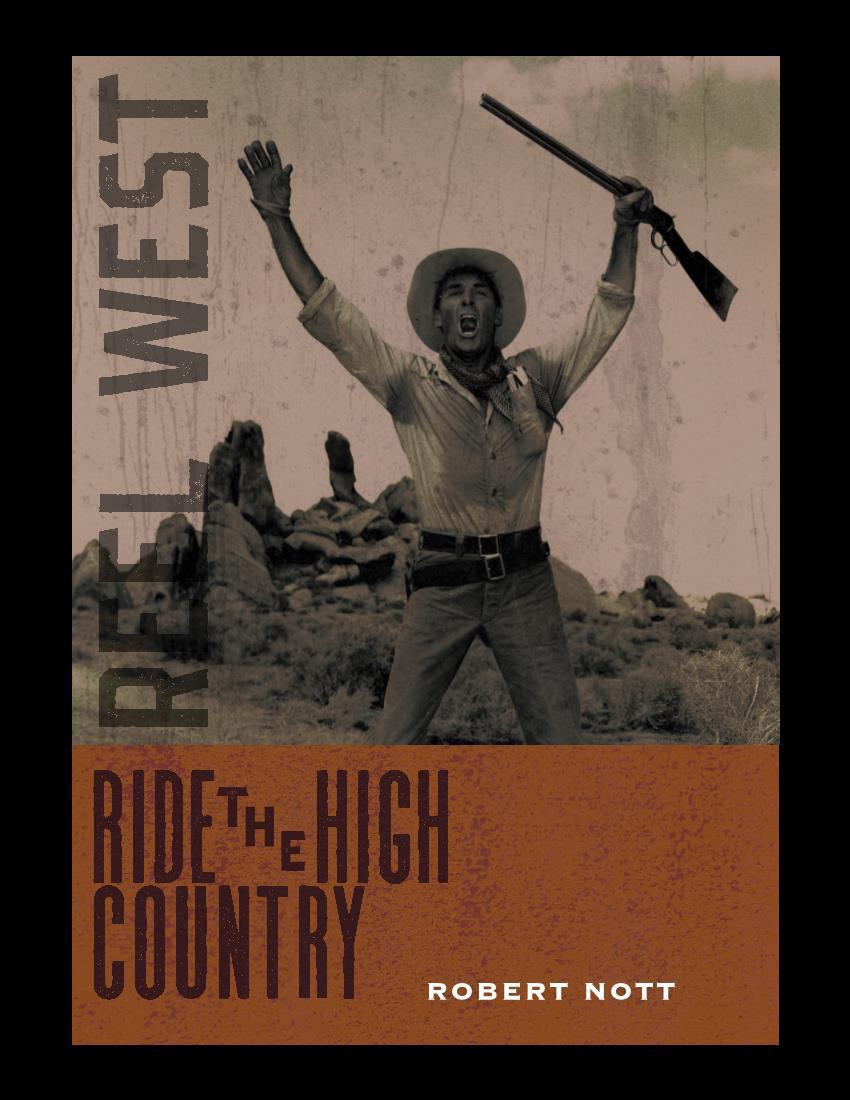
March 2024
152 pages
Film / American West Rights: World
63 University of New Mexico Press unmpress.com

May 2024
408 pages
Women's Studies / Latin America / History Rights: World

March 2024
344 pages
Latin America / History / Politics Rights: World
Women's Suffrage in the Americas
STEPHANIE MITCHELL
Women’s Suffrage in the Americas provides an outstanding analysis of the long and often drawn-out process of attaining women's suffrage in the Western Hemisphere. Due attention is given to the unevenness of the process, not only across the Americas, but within each country with respect to which groups of women (and men) were excluded as suffrage was extended—Carmen Diana Deere, co-author of Empowering Women: Land and Property Rights in Latin America. The first hemispheric study to trace how women in the Americas obtained the right to vote, Women’s Suffrage in the Americas pushes back against the misconception that women’s movements originated in the United States. The volume brings Latin American voices to the forefront of English-language scholarship. Suffragists across the hemisphere worked together, formed collegial networks to support each other’s work, and fostered advances toward women gaining the vote over time and space from one country to the next. The collection as a whole suggests five models by which women in the Americas gained the right to vote: through party politics; through decree, despite delays justified by women’s supposed conservative politics; through conservative defense of traditional roles for women; and, within the context of imperialism. However, historians have traditionally failed to view this common history through a hemispheric lens. Until now.
Stephanie Mitchell is professor of history at Carthage College in Kenosha, Wisconsin, co-editor, of The Women’s Revolution in Mexico, 1910–1953
The Struggle for Natural Resources
Findings From Bolivian History
CARMEN SOLIZ AND ROSANNA BARRAGÁN
The Struggle for Natural Resources traces the troubled history of Bolivia's land and commodity disputes across five centuries, combining local, regional, national, and transnational scales. Enriched by the extractivism and commodity frontiers approaches to world history, the book treats Bolivia's political struggles over natural resources as long-term processes that outlast immediate political events. Exploration of the Bolivian case invites dialogue and comparison with other parts of the world, particularly regions and countries of the so-called Global South.
Carmen Soliz is an associate professor of History and Latin American Studies at the University of North Carolina at Charlotte. Rossana Barragán is Senior Fellow Researcher at the International Institute of Social History in Amsterdam (2011-2022) and Professor of CIDES-UMSA La Paz. Ph D. at the École des Hautes Études en Sciences Sociales de Paris.
64
The Creation of Modern Buenos Aires
Football, Civic Associations, Barrios, and Politics, 1912-1943 JOEL HOROWITZ
The Creation of Modern Buenos Aires examines the impact of civic associations on the culture and the society of Buenos Aires and their ties to politics in the first decades of the twentieth century. The period saw the emergence of the modern political system with true appeals to the voters, tremendous urban growth, and the solidification of a barrio identity. Historian Joel Horowitz examines four types of organizations: football clubs, bibliotecas populares (popular libraries), sociedades de fomento (development societies that pushed for barrio improvements), and universidades populares (popular universities that provided practical training beyond the primary school level). All four types became important social centers and were connected to the political world. The book focuses on the period from the passage of a voting reform law in 1912, which made male citizen voting obligatory and fraud more difficult, to the military coup of 1943. The book shows how civic associations helped create the social world of the city, especially the part they played in the development of the sense of barrio. It also demonstrates how civic associations became vital links in the system of politics that emerged. Civic associations became places for politicians to build connections to different communities. However, despite being created by inhabitants to fulfill some of their needs and generally run according to rules that prescribed democratic procedures, they did not function as schools for democracy.
Joel Horowitz is Emeritus Professor of History at Saint Bonaventure University. He is the author of Argentina’s Radical Party and Popular Mobilization, 1916-1930 and Argentine Unions, the State and the Rise of Perón, 1930-1945
Indigenous Culture IAN JACOBS
With Indigenous Cultures and Regional Change in Guerrero, Mexico, Ian Jacobs at last puts Guerrero’s history firmly on the map of Mexican archaeology and history. The book brings together a vast amount of cross-disciplinary information to understand the deep roots of the Indigenous cultures of a complex region of Mexico, and the forces that shaped the foundations of colonial Mexico there in the sixteenth century and beyond. This book is particularly significant in exploiting archaeological and Indigenous, as well as historical sources.
Ian Jacobs is the author of Ranchero Revolt: The Mexican Revolution in Guerrero
April 2024
216 pages
Latin America / History / Politics
Rights: World
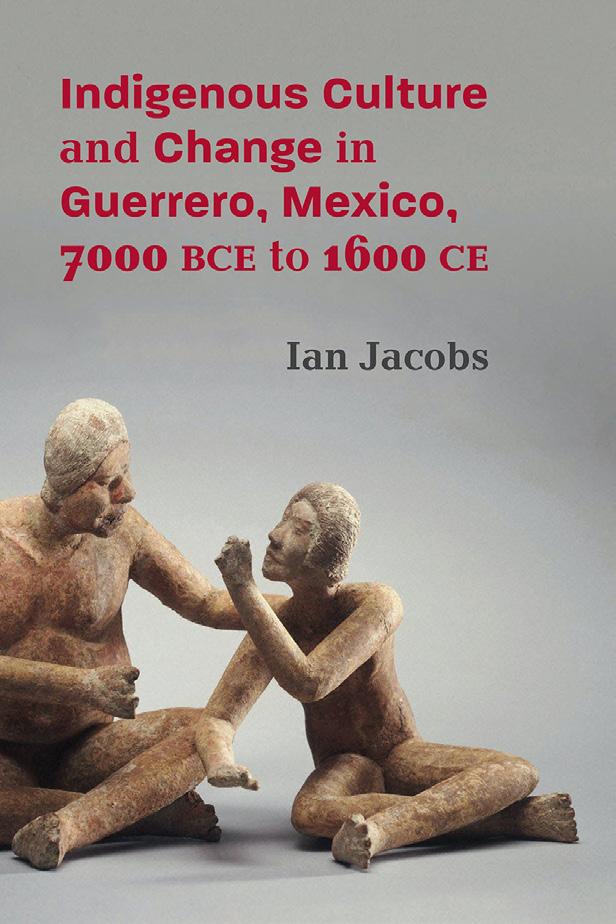
April 2024
384 pages
Latin America / History / Archaeology
Rights: World
65 University of New Mexico Press unmpress.com

June 2024
240 pages
Latin America / Literary Criticism Rights:World
The Chilean Dictatorship Novel
Memory, Postmemory, Affect, and Emotions
HELENE WELDT-BASSON
Though the civil rights abuses by the Pinochet dictatorship in Chile (1973–1990) were later recognized by reparations and truth commissions, the difficult emotions suffered by the victims and their families were often pushed into the background or out of the national conversation entirely. In response, novelists began writing memory of feelings experience during the dictatorship into their books. In The Chilean Dictatorship Novel, Weldt-Basson examines fifteen novels and one testimony written on the topic of dictatorship to illustrate how the Chilean narratives center on affect and emotions. Each chapter focuses on a different emotion: feelings of loss because of father abandonment and spatial injustice caused by neoliberal urbanization of Santiago; despair articulated through tragic romances and affective landscapes; left-wing nostalgia and melancholia communicated through allegory; feelings of abjection caused by torture and betrayal; and the creation of affect through violent events, aggressive child-play and sexual torture. Through a close look at the work of José Donoso, Ariel Dorfman, Diamela Eltit, Carlos Franz, and Nona Fernández, among others, Weldt-Basson effectively argues that by inspiring emotion and creating empathy within readers, the authors of these books instill a drive in the readers for ongoing social justice advocacy, thereby transforming the process of reading into a platform for future action. Weldt-Basson’s landmark study will serve as a basis for future study of Latin American literature for decades to come.
Helene Weldt-Basson is a professor in the Department of Modern and Classical Languages and Literatures at University of North Dakota. She is author or editor of seven additional books including Masquerade and Social Justice in Contemporary Latin American Fiction (UNMP).

May 2024
296 pages
Art History / Mexico Rights: World
Julio Galán
The Art of Performative Transgression TERESA ECKMANN
From his provincial origins in the small northern Mexico town of Múzquiz, Coahuila, to his meteoric rise in Manhattan’s East Village art scene, to having achieved international standing at the time of his early death at the age of forty-seven, Julio Galán was radically transgressive, extending contemporary Mexican painting beyond the cultural criticism of the 1980s Neo-Mexicanist tendency in order to redefine Mexican identity as gender-expansive in his art. Galán combined gender-fluid imagery, a performative persona, queer self-representation, and cross-cultural visual and textual references to create large-scale, layered, dialogical visual puzzles. Ahead of his time in the relevance of his content and imagery to the contemporary LGBTQ social movements, Galán also broke the barriers of limited Latinx (in) visibility with his participation in such exclusive platforms/arenas as the Whitney Biennial of 1995. Replete with full-color reproductions of Galán’s artwork, Teresa Eckmann’s book serves as the first English-language monograph on the artist’s life and work.
Teresa Eckmann is Associate Professor of Contemporary Latin American art in the Department of Art and Art History at the University of Texas at San Antonio. She is also author of Neo-Mexicanism: Mexican Figurative Painting and Patronage in the 1980s (UNMP).
66
Popular Politics and Protest Analysis in Latin America
MOISES ARCE AND TAKESHI WADA
The arrival of democracy and globalization was a watershed moment for Latin America. It produced a changing political and economic environment, where democracy provided challengers with expanding political opportunities but globalization precipitated economic threats to livelihoods and human welfare. This changing environment removed the state from modes of political representation, such as urban labor movements and their affiliated mass-party organizations, while unleashing more pluralistic, heterogenous, and decentralized patterns of popular representation. Reducing its role in production, the state became mostly a regulator of economic activities.
Arce and Wada's volume examines the consequences of democracy and globalization on popular protests in Latin America, theorizing a broad shift of popular politics involving reactive and proactive mobilizations. A collaboration of sixteen distinguished scholars with different specializations (economists, historians, sociologists, and political scientists) in both the Global North and South, the volume provides a unique collection of studies of protest events in ten Latin American countries: Bolivia, Brazil, Chile, Colombia, Costa Rica, Ecuador, Mexico, Nicaragua, Peru, and Venezuela.
Moisés Arce is the Scott and Marjorie Cowen Chair in Latin American Social Sciences and Professor in the Department of Political Science at Tulane University. Takeshi Wada is Professor in the Department of Area Studies and Director of the Latin American and Iberian Network for Academic Collaboration (LAINAC) at The University of Tokyo.

April 2024
352 pages
Latin America / Politics / Sociology Rights: World
67 University of New Mexico Press unmpress.com
University of North Carolina Press
About University of North Carolina Press
The University of North Carolina Press, a nonprofit publisher of both scholarly and general-interest books and journals, operates simultaneously in a business environment and in the world of scholarship and ideas. The Press advances the University’s triple mission of teaching, research, and public service by publishing first-rate books and journals for students, scholars, and general readers. The Press has earned a distinguished reputation by publishing excellent work from the nation’s leading scholars, writers, and intellectuals and by presenting that work effectively to wide-ranging audiences.
Established in 1922, unc Press was the first university press in the South and one of the first in the nation. Our regional publishing program—aimed at general readers and offering engaging, authoritative work on all aspects of the region’s history and culture, its natural and built environment, its music, food, literature, geography, plant and animal life—has been widely adopted in other parts of the country. Over the years, Press books have won hundreds of prestigious awards including the Pulitzer Prize and the National Book Award and those of many national scholarly societies. Today, the imprint of unc Press is recognized worldwide as a mark of publishing excellence—both for what we publish and for how we publish.
uncpress.org

April 2024
256 pages
Urban Studies / Environmental Studies Rights: World
The Ethics of Cities
Shaping Policy for a Sustainable and Just Future
TIMOTHY BEATLEY
Ethical dilemmas and value conflicts affect cities globally, but urban leaders and citizens often avoid confronting them directly and instead view the governance of cities as primarily an administrative task or, even worse, a merely political one. Timothy Beatley challenges readers to consider the issues in our cities not simply as legal or economic problems but as moral ones, asking readers “How can a city become more ethical?” Beatley exposes, explores, and unearths the many ethical questions cities face today and touches on many topics, from privacy and crime to racism and the ethics of public space. Drawing from recent policy debates and using extensive specific examples to highlight complex ethical dilemmas, Beatley argues that cities must expand the definition of the moral community to all their citizenry.
Cities must take profound steps to address social injustice and must plan for climate change—both as moral obligations—and this approachable and readable introduction to moral philosophy, urban planning, and social justice will help new generations to grapple with these global issues.
Timothy Beatley is the Teresa Heinz Professor of Sustainable Communities in the Department of Urban and Environmental Planning at the School of Architecture at the University of Virginia and is the author of several books, including Ethical Land Use: Principles of Policy and Planning
68
Remembering Conquest
Mexican Americans, Memory, and Citizenship OMAR VALERIO-JIMÉNEZ
Remembering Conquest analyzes the ways collective memories of the US-Mexico War have shaped Mexican Americans' civil rights struggles over several generations. As the first Latinx people incorporated into the nation, Mexican Americans were offered US citizenship by the Treaty of Guadalupe Hidalgo, which ended the war. Because the 1790 Naturalization Act declared whites solely eligible for citizenship, the treaty pronounced Mexican Americans to be legally white. While their incorporation as citizens appeared as progress towards racial justice and the electorate's diversification, their second-class citizenship demonstrated a retrenchment in racial progress. Over several generations, civil rights activists summoned conquest memories to link Mexican Americans' poverty, electoral disenfranchisement, low educational attainment, and health disparities to structural and institutional inequalities resulting from racial retrenchments. Activists also recalled the treaty's citizenship guarantees to push for property rights, protection from vigilante attacks, and educational reform.
Omar Valerio-Jiménez addresses the politics of memory by exploring how succeeding generations reinforced or modified earlier memories of conquest according to their contemporary social and political contexts. Remembering Conquest also examines collective memories in the US and Mexico to illustrate transnational influences on Mexican Americans, and to demonstrate how community and national memories can be used strategically to advance political agendas.
Omar Valerio-Jiménez is professor of history at the University of Texas at San Antonio.
Truffles and Trash
Recirculating Food in a Social Welfare State
KELLY ALEXANDER
On a fragile planet with a growing population, shrinking natural resources, and spreading food insecurity, food waste is a social, political, and ethical problem. In Truffles and Trash, Kelly Alexander follows collaborative, sometimes scrappy institutional and community efforts to recuperate and redistribute food waste in Brussels, Belgium. She offers a close analysis of three sites: a food bank with ties to the E.U.; a “social restaurant” serving low-cost meals made from unsellable donated food prepared and served by an emergent immigrant labor force; and, finally, a social inclusion program in an urban market with a weekly “zero food waste” pop-up café. Alexander illustrates how these efforts, in concert with innovative policy, effectively recirculate surplus discarded but edible food to new publics who can use it.
According to Alexander, the models face big challenges, including reproducing the very power dynamics across race, class, and citizenship status that they seek to circumvent. They mirror the tensions and challenges of the everyday operations of the European social welfare state, which is increasingly reliant on NGOs to meet its provisioning promises. Yet, she finds that they also successfully move the needle forward in reducing food waste across one city, providing a model for major urban centers around the world.
Kelly Alexander is assistant professor and George B. Tindall Fellow of American Studies at The University of North Carolina-Chapel Hill.
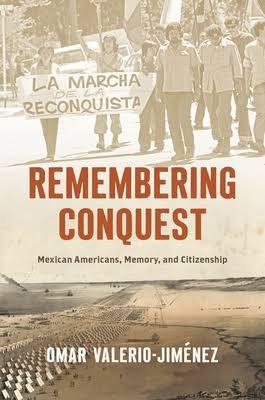
April 2024
368 pages
Latin American & Caribbean Studies Rights: World
June 2024
224 pages
Food Studies / Environmental Studies Rights: World
69 University of North Carolina Press uncpress.org
Spring 2024
200 pages
Memoir / Essay
Rights: World English
Brown Women Have Everything
Meditations on Witches, Wives, and Goddesses SAYANTANI
DASGUPTA
As a child growing up in New Delhi, Sayantani Dasgupta wanted to go on adventures involving shipwrecks and treasure chests. Her parents wanted her to stay in school instead. She satisfied her curiosity by drawing maps, inventing languages with friends, and reading everything: English adventures, Russian folktales, Hindi comics, Bengali ghost stories. Brown Women Have Everything embraces the same spirit of wonder as we follow Dasgupta, now living and teaching in the United States, to cathedrals in Italy, pirate graveyards in North Carolina, hair salons in Idaho, her aunt’s kitchen in Bangladesh, graffiti-lined streets of Colombia, the hierarchical world of academia, and her marriage to a handsome Sikh. As she moves through the world, she examines issues of the body, violence, travel, and belonging with a mix of humor, joy, pride, and outrage. While the eighteen interwoven essays in this collection call out bigotry, bias, and othering, they ultimately celebrate the ties that bind our disparate, global lives together.
Sayantani Dasgupta is an Assistant Professor of Creative Writing at the University of North Carolina, Wilmington.

January 2024
304 pages
History Rights: World
The Edwin Fox
The Extraordinary Story of How an Ordinary Sailing Ship Connected the World in the Age of Globalization BOYD COTHRAN AND ADRIAN SHUBERT
It began as a small, slow, and unadorned sailing vessel—in a word, ordinary. Later, it was a weary workhorse in the age of steam. But the story of the Edwin Fox reveals how an everyday merchant ship drew together a changing world and its people in an extraordinary age of rising empires, sweeping economic transformation, and social change. This fascinating work of global history offers a vividly detailed and engaging narrative of globalization writ small, viewed from the decks and holds of a single vessel. The Edwin Fox connected the lives and histories of millions, though most never even saw it.
Built in Calcutta in 1853, the Edwin Fox was chartered by the British navy as a troop transport during the Crimean War. In the following decades, it was sold, recommissioned, and refitted by an increasingly far-flung constellation of militaries and merchants. It sailed to exotic ports carrying luxury goods, mundane wares, and all kinds of people: not just soldiers and officials but indentured laborers brought from China to Cuba, convicts and settlers being transported from the British Empire to western Australia and New Zealand—with dire consequences for local Indigenous peoples—and others. But the power of this story rests in the everyday ways people, nations, economies, and ideas were knitted together in this foundational era of our modern world.
Boyd Cothran is associate professor of history at York University. Adrian Shubert is professor emeritus at York University.
70
Creatures of Fashion
Animals, Global Markets, and the Transformation of Patagonia
JOHN SOLURI
Today, the mention of Patagonia and Tierra del Fuego conjures images of idyllic landscapes untouched by globalization. Creatures of Fashion upends this, revealing how the exploitation of animals—terrestrial and marine, domesticated and wild, living and dead—was central to the region's transformation from Indigenous lands into the national territories of Argentina and Chile. Drawing on evidence from archives and digital repositories, John Soluri traces the circulation of furs and fibers to explore how the power of fashion stretched far beyond Europe’s houses of haute couture to entangle the fates of Indigenous hunters, migrant workers, and textile manufacturers with those of fur seals, guanacos, and sheep at the "end of the world."
From the nineteenth-century rise of commercial hunting to twentieth-century sheep ranching to contemporary conservation-based tourism, Soluri's narrative explains how struggles for control over the production of commodities and the reproduction of animals drove the social and environmental changes that tied Patagonia to global markets, empires, and wildlife conservation movements. By exposing seams in national territories and global markets knit together by force, this book provides perspectives and analyses vital for understanding contemporary conflicts over mass consumption, the conservation of biodiversity, and struggles for environmental justice in Patagonia and beyond.
John Soluri is associate professor of history at Carnegie Mellon University.
Encyclopédie Noire
The Making of Moreau de Saint-Méry's Intellectual World SARAH E. JOHNSON
If you peer closely into the bookstores, salons, and diplomatic circles of the eighteenth-century Atlantic world, Médéric Louis Élie Moreau de Saint-Méry is bound to appear. As a lawyer, philosophe, and Enlightenment polymath, Moreau created and compiled an immense archive that remains a vital window into the social, political, and intellectual fault lines of the Age of Revolutions. But the gilded spines and elegant designs that decorate his archive obscure the truth: Moreau's achievements were predicated upon the work of enslaved people and free people of color. Their labor afforded him the leisure to research, think, and write. Their rich intellectual and linguistic cultures filled the pages of his most applauded works. Every beautiful book Moreau produced contains an embedded story of hidden violence.
Sara Johnson's arresting investigation of race and knowledge in the revolutionary Atlantic surrounds Moreau with the African-descended people he worked so hard to erase, immersing him in a vibrant community of language innovators, forgers of kinship networks, and world travelers who strove to create their own social and political lives. Built from archival fragments, creative speculation, and audacious intellectual courage, Encyclopédie noire is a communal biography of the women and men who made Moreau’s world.
Sara E. Johnson is associate professor of Literature of the Americas at the University of California, San Diego.

December 2023
240 pages
Latin American & Caribbean Studies / Natural History Rights: World

December 2023
352 pages
Latin American & Caribbean Studies / African & African Diaspora Studies
Rights: World
71 University of North Carolina Press uncpress.org

January 2024
352 pages Jewish Studies / Military History Rights: World

November 2023
208 pages
Religion Rights: World
Between Two Worlds
Jewish War Brides after the Holocaust ROBIN JUDD
Facing the harrowing task of rebuilding a life in the wake of the Holocaust, many Jewish survivors, community and religious leaders, and Allied soldiers viewed marriage between Jewish women and military personnel as a way to move forward after unspeakable loss. Proponents believed that these unions were more than just a ticket out of war-torn Europe: they would help the Jewish people repopulate after the attempted annihilation of European Jewry.
Historian Robin Judd, whose grandmother survived the Holocaust and married an American soldier after liberation, introduces us to the Jewish women who lived through genocide and went on to wed American, Canadian, and British military personnel after the war. She offers an intimate portrait of how these unions emerged and developed—from meeting and courtship to marriage and immigration to life in the United States, Canada, and the United Kingdom—and shows how they helped shape the postwar world by touching thousands of lives, including those of the chaplains who officiated their weddings, the Allied authorities whose policy decisions structured the couples' fates, and the bureaucrats involved in immigration and acculturation. The stories Judd tells are at once heartbreaking and restorative, and she vividly captures how the exhilaration of the brides' early romances coexisted with survivor's guilt, grief, and apprehension at the challenges of starting a new life in a new land.
Robin Judd is associate professor of history at The Ohio State University, where she directs the Hoffman Leaders and Leadership in History Fellowship program.
Who Is Muhammad?
MICHAEL MUHAMMAD KNIGHT
Combining insights from the best published historical and religious studies scholarship, original research, and rich first-person perspective, this highly readable book offers a comprehensive yet concise introduction to the founder and central figure of the Islamic tradition: the prophet Muhammad. Narrating Muhammad's life story, teachings, and daily practices, and assessing how his legacy is received, interpreted, and applied around the world, Michael Muhammad Knight reveals how the prophet has become simultaneously one of the most beloved historical figures in the world and also one of the most contested, challenged, and disparaged.
Knight argues that there was never a singular Muslim vision of Muhammad but rather always multiple perspectives. While Muslims defend Muhammad's legacy against Islamophobic polemics, they also challenge each other regarding the proper authorities through which Muhammad's life and message become comprehensible and applicable in our world. Thinking across time and place, Knight argues that Muhammad is always contextual and contemporary.
Michael Muhammad Knight is assistant professor of religion and cultural studies at the University of Central Florida and the author of seventeen books, including Muhammad’s Body: Baraka Networks and the Prophetic Assemblage
72
Sabor Judío
The Jewish Mexican Cookbook
ILAN STAVANS AND MARGARET E. BOYLE
Cookbooks for Jewish and Mexican food are legion, but Sabor Judío is the first to celebrate the fusion of these two fascinating and beloved culinary traditions. This joyful and fully illustrated book demonstrates how cooking and eating connect the Jewish Mexican diaspora across places and generations. Featuring one hundred deeply personal recipes enjoyed by Mexican Jews around the world, the book is organized by meal—desayuno (breakfast), almuerzo (lunch), and cena (dinner)—and also includes dishes made for Shabbat, Rosh Hashanah, Yom Kippur, Passover, Hanukah, Shavuot, and other holidays. Sabor Judío isn’t only a cookbook; it is also a vibrant history of Jewish immigration to Mexico from 1492 to the present. It explains how favorite flavors and dishes evolved in Mexican and Jewish kitchens and how they fused into a distinct cuisine, mainly by the labor of Ashkenazi, Sephardic, and converso women. The cookbook is the product of two award-winning, internationally known Jewish Mexican writers who spent a decade gathering recipes and personal narratives from Jewish Mexican households.
Ilan Stavans, a leading Jewish Mexican scholar and critic, is Lewis-Sebring Professor of Humanities and Latin American and Latino Culture at Amherst College. Margaret Boyle is Director of Latin American, Caribbean, and Latinx Studies at Bowdoin College.
Thanks to Life
A Biography of Violeta Parra ERICKA KIM VERBA
Violeta Parra (1917-1967) was a prolific Chilean musician and artist. Celebrated globally, Parra’s song, “Gracias a la vida,” has been recorded by the likes of Joan Baez, Mercedes Sosa, Kacey Musgraves, and Yo-Yo Ma. An instrumental figure in the Latin American folk revival, Parra was the foundational inspiration for Nueva Canción (New Song), a genre of politically engaged music. In her short life, Parra composed more than two hundred songs as well as experimental pieces for guitar, documentary soundtracks, and music for ballet. She was also a ceramicist, sculptress, painter, and tapestry maker—and the first Latin American artist to have a solo exhibition at the Museum of Decorative Arts in the Louvre.
Ericka Kim Verba is professor of Latin American studies at California State University, Los Angeles.

October 2024
280 pages
Cooking / Food Studies
Rights: World
January 2025
448 pages
Biography / Music Rights: World
73 University of North Carolina Press uncpress.org
January 2025
288 pages
Biography / History / Islamic Studies
Rights: World
December 2024
288 pages
History / Atlantic World
Rights: World
Mahommah Gardo Baquaqua
An Enslaved Muslim of the Black Atlantic
PAUL E. LOVEJOY AND NIELSON BEZERRA
Author of the only known narrative by a former Brazilian slave, Mahommah Gardo Baquaqua's (b. 1820-30, d. unknown) autobiography offers vivid and rare glimpses of slavery, escape, and freedom in the nineteenth-century. A literate Muslim born in present-day Benin, Baquaqua was enslaved and forcibly moved to Brazil. He escaped when his master took a consignment to New York City in 1847. From there, Baquaqua fled to Haiti, converted to Christianity, and returned to the United States, where he enrolled in New York Central College, becoming one of the earliest Africans to attend a college in North America. Baquaqua published his autobiography in 1854 and then traveled to England with the intention of returning to Africa. He apparently achieved this goal by the early 1860s, which is when his paper trail disappears. Lovejoy’s and Bezerra’s retelling and analysis of the autobiography illuminates what Baquaqua’s home in Africa was like, examines African slavery in Brazil, and offers an Atlantic perspective on resistance slavery in the Americas in the era of the Fugitive Slave Law of 1850.
Paul E. Lovejoy is Distinguished Research Professor and Canada Chair in African Diaspora History at York University. Nielson Rosa Bezerra is Director of Research and Pedagogical Affairs at the Heritage and Historical Reference Center of Duque de Caxias, Rio de Janeiro and at the Living Museum of São Bento.
The Women of Rendevous
A Transatlantic Story of Family and Slavery JENNY SHAW
The Women of Rendezvous is a dramatic transatlantic story about five women who birthed children by the same prominent Barbados politician and enslaver. Two of the women were his wives, two he enslaved, one was a servant in his household. All were determined to make their way in a world that vastly and differentially circumscribed their life choices. From a Barbados plantation to the center of England’s empire in London, Hester Tompkyns, Frances Knights, Susannah Mingo, Elizabeth Ashcroft, and Dorothy Spendlove built remarkable lives for themselves and their children in spite of, not because of the man who linked them together.
Jenny Shaw is associate professor of history at the University of Alabama.
74
Captive Cosmopolitans
Black Mariners and the World of South Atlantic Slavery
MARY E. HICKS
Mary Hicks places free and enslaved Black mariners at the center of Salvador de Bahia’s maritime labor force and, by extension, at the center of Portugal’s Atlantic empire. Chapters chronicle the geographic and cultural knowledge of African maritime laborers; the quotidian experiences of life in the South Atlantic slave trade; enslaved mariners’ engagement with the law and marronage to gain freedom; the changing structures of both the slave trade and property holding strategies of African mariners; and examine the role of African medical practitioners as part of the larger transatlantic circulation facilitated by the slave trade.
Mary E. Hicks is assistant professor of history at the University of Chicago.
In Place of Mobility
Railroads, Rebels, and Migrants in an
Argentine-Chilean Borderland KYLE E. HARVEY
Offering a comprehensive analysis of the Argentina-Chile border in the nineteenth century, Kyle E. Harvey’s investigation of this transnational borderland, which he calls “the Transandean,” is centered on the region connected by the Andes mountains in the Argentine region of Cuyo. Following the movements of migrants, rebels, engineers, and others, Harvey argues that the people who created this borderland challenged state-formation processes in Argentina, prompting local, provincial, and national governments to embark on projects to control mobility, thus shaping state formation at a crucial moment in history.
Kyle E. Harvey is assistant professor of history at Western Carolina University.
December 2024
424 pages
History / Atlantic World Rights: World
December 2024
304 pages
History / Latin American & Caribbean Studies Rights: World
75 University of North Carolina Press uncpress.org
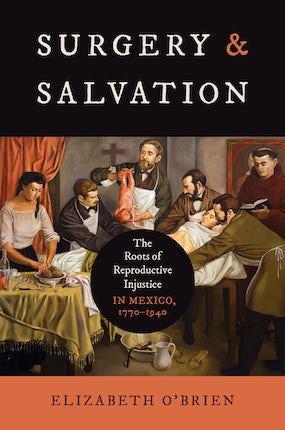
November 2023
320 pages
Latin American & Caribbean Studies / Health & Medicine Rights: World
Surgery and Salvation
The Roots of Reproductive Injustice in Mexico, 1770–1940 ELIZABETH O’BRIEN
In this sweeping history of reproductive surgery in Mexico, Elizabeth O'Brien traces the interstices of religion, reproduction, and obstetric racism from the end of the Spanish empire through the post-revolutionary 1930s. Examining medical ideas about operations (including cesarean section, abortion, hysterectomy, and eugenic sterilization), Catholic theology, and notions of modernity and identity, O'Brien argues that present-day claims about fetal personhood are rooted in the use of surgical force against marginalized and racialized women. This history illuminates the theological, patriarchal, and epistemological roots of obstetric violence and racism today.
O'Brien illustrates how ideas about maternal worth and unborn life developed in tandem. Eighteenth-century priests sought to save unborn souls through cesarean section, while nineteenth-century doctors aimed to salvage some unmarried women's social reputations via therapeutic abortion. By the twentieth century, eugenicists wished to regenerate the nation's racial profile, in part by sterilizing women in public clinics. The belief that medical interventions could redeem women, children, and the nation is what O’Brien refers to as "salvation though surgery." As operations acquired racial and religious significances, Indigenous, Afro-Mexican, and mixed-race people's bodies became sites for surgical experimentation. Even during periods of Church-state conflict, O'Brien argues, the religious valences of experimental surgery manifested in embodied expressions of racialized, and often-coercive, medical science.
Elizabeth O’Brien is assistant professor of the history of medicine at Johns Hopkins University.
76
Vanderbilt University Press
About Vanderbilt University Press
Established in 1940, Vanderbilt University Press is the principal publishing arm of one of the nation’s leading research universities. The Press’s primary mission is to select, produce, market, and disseminate scholarly publications of outstanding quality and originality. In conjunction with the long-term development of its editorial program, the Press draws on and supports the intellectual activities of the university and its faculty. Although its main emphasis falls in the area of scholarly publishing, the Press also publishes books of substance and significance that are of interest to the general public, including regional books. In this regard, the Press also supports Vanderbilt’s service and outreach to the larger local and national community.
The editorial interests of Vanderbilt University Press include most areas of the humanities and social sciences, as well as health care and education. The Press seeks intellectually provocative and socially significant works in these areas, as well as works that are interdisciplinary or that blend scholarly and practical concerns. At present, Vanderbilt publishes around twenty-five new titles each year.
vanderbiltuniversitypress.com
The Paradox of Paradise
Creative Destruction and the Rise of Urban Coastal Tourism in Contemporary Spanish Culture
WILLIAM J. NICHOLS
The Paradox of Paradise focuses on the trajectory of urban coastal tourism in Spain from the late Franco years to the present through the lens of Spanish cultural production. “Sun-and-fun” destinations like Torremolinos (located in the Costa del Sol) and Benidorm (located in the Costa Blanca) established a model for urban renewal that literally built the coasts to accommodate and expand foreign tourism as the driving force of the so-called Spanish Economic Miracle.
In addition to inserting the coasts into the scope of Iberian urban studies (typically dominated by studies of Madrid and Barcelona) this project breaks new ground by bringing to the fore unexplored cultural artifacts vital to the narrative of development along the coasts in Spain: in particular the ubiquitous tourist postcard, which advances not only the post-Franco economic miracle, but does so by highlighting the transformation of the actual Spanish landscape along its coasts.
William J. Nichols is an associate professor of Spanish literature and culture at Georgia State University.


December 2023
272 pages
History / Europe
Rights: World
77
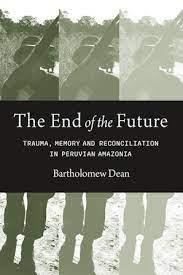
November 2023
288 pages
Social Science / Anthropology Rights: World

November 2023
352 pages
Music / Genres & Styles Rights: World
The End of the Future
Trauma, Memory, and Reconciliation in Peruvian Amazonia BARTHOLOMEW DEAN
This book explores the complicated and confusing linkages between memory and trauma for individuals caught up in civil war and post-conflict reconciliation in the Peruvian Amazon's Huallaga Valley—an epicenter for leftist rebels and a booming shadow economy based on the extraction and circulation of cocaine. The End of the Future tells the story of the Túpac Amaru Revolutionary Movement's (Movimiento Revolucionario Túpac Amaru, MRTA) violent attempts to overthrow the state in the late 1980s and early 1990s from the perspective of the poorest residents of the lower Huallaga's Caynarachi Basin.
Bartholomew Dean is an associate professor of anthropology at the University of Kansas.
Latin America and the Transports of Opera Fragments of a Transatlantic Discourse ROBERTO IGNACIO DÍAZ
Latin America and the Transports of Opera studies a series of episodes in the historical and textual convergence of a hallowed art form and a part of the world often regarded as peripheral. Perhaps unexpectedly, the archives of opera generate new arguments about several issues at the heart of the established discussion about Latin America: the allure of European cultural models; the ambivalence of exoticism; the claims of nationalism and cosmopolitanism; and, ultimately, the place of the region in the global circulation of the arts. Opera’s transports concern literal and imagined journeys as well as the emotions that its stories and sounds trigger as they travel back and forth between Europe—the United States, too—and Latin America.
Roberto Ignacio Díaz is an associate professor of Spanish and comparative literature at the University of Southern California.

78
Sonic Strategies
Performing Mexico's War on Drugs, Mourning, and Feminicide
CHRISTINA BAKER
In Sonic Strategies, author Christina Baker highlights the tactics employed by contemporary performance artists in Mexico in response to the violence surrounding the government’s so-called War on Drugs. Taken together, the case studies in this book illuminate how critiques of the nation’s rising death tolls, governmental corruption, and gendered violence very literally sound, whether in Música de balas, a post-dramatic piece by Hugo Salcedo; the lamentations of the nation’s Antigones; satirical revisions of Mexican Golden Age film in the cabaret piece Nosotras las proles; or the story of transfeminicide in César Enríquez’s La Prietty Guoman by way of US pop music. By paying close attention to both planned and spontaneous sounds within live and textual experiences, Sonic Strategies contends that conscientious listening reveals dynamic practices that reside beyond the linguistic and embodied gesture.
Christina Baker is an assistant professor of Latin/x American theater and performance at Temple University.
Subjunctive Aesthetics
Mexican Cultural Production in the Era of Climate Change
CAROLYN FORNOFF
Studies indicate that Mexicans are more worried about climate change than any other global issue, more anxious about natural disasters than any other quotidian threat (including crime), and that suicide rates have risen along with temperatures. These fears are grounded in reality: in the last twenty years, Mexico issued more than 2,000 extreme weather warnings linked to hydrometeorological events, and ranked in the top ten countries in terms of absolute economic losses caused by (un)natural disasters. Mexico is also one of the deadliest countries in the world for environmental activists: in 2018 alone, twenty-one defenders of the land were murdered, and many others criminalized or intimidated. Social anxiety in Mexico about ongoing and future climate change is reflected in the outpouring of eco-cultural production over the past decade, a body of work that has yet to be comprehensively studied. The exponential explosion of cultural responses to climate change is not limited to any one genre: Mexican poets like Karen Villeda and Isabel Zapata have thematized extinction, sci-fi writer Alberto Chimal recently published a dystopian young adult climate fiction, and performance artist Naomi Rincón Gallardo has created works that contest extractivism’s murderous tactics. Subjunctive Aesthetics brings together these artists and others to collate a diverse constellation of Mexican cultural responses to climate change that index the multifaceted nature of this crisis.
Carolyn Fornoff is an assistant professor of Latin American literatures and cultures in the Department of Spanish and Portuguese at the University of Illinois at Urbana-Champaign.

December 2023
296 pages
Performing Arts / Theater
Rights: World

January 2024
288 pages
Literary Criticism Rights: World
79
University Press vanderbiltuniversitypress.com
Vanderbilt

March 2024
256 pages
History / Latin America / Mexico
Rights: World
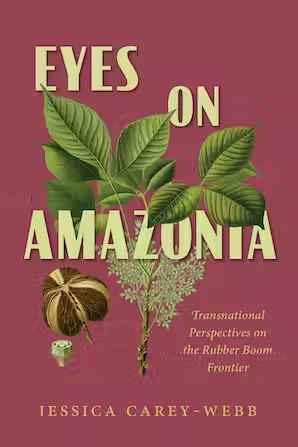
February 2024
288 pages
Political Science / Imperialism Rights: World
The End of Catholic Mexico
Causes and Consequences of the Mexican Reforma (1855-1861)
DAVID ALLEN GILBERT
In The End of Catholic Mexico: Causes and Consequences of the Mexican Reforma (1855-1861), historian David A. Gilbert provides a new interpretation of one of the defining events of Mexican history: the Reforma. During this period, Mexico transformed from a Catholic confessional state to a modern secular nation, sparking a three-year civil war in the process. While past accounts of the Reforma have foregrounded its class dimensions and portrayed it as a liberal triumph over conservative elites, Gilbert instead argues that the Reforma was a religious war fueled two competing interpretations of the Catholic faith. These competing interpretations, Gilbert contends, generated sharp disagreements about Mexico's future, which further polarized the country and led to a culture war centered on religion.
Gilbert's fresh account of this pivotal moment in Mexican history will be of interest to scholars of Latin American religious history, nineteenth-century church history, and U.S. historians of the antebellum republic.
David A. Gilbert is a professor of history at Clayton State University.
Eyes on Amazonia
Transnational Perspectives on the Rubber Boom Frontier JESSICA CAREY-WEBB
The Amazon extends across nine countries, encompasses forty percent of South America, and hosts four European languages and more than three hundred indigenous languages and cultures. Eyes on Amazonia: Transnational Perspectives on the Rubber Boom Frontier is a fascinating exploration how Latin American, European, and U.S. intellectuals imagined and represented the Amazon region during the late nineteenth and early twentieth centuries. This multi-faceted study, which draws on a range of literary and non-literary texts and visual sources, examines the complex ways that race, gender, representation, mobility, empire, modernity, and personal identity have indelibly shaped how the region was and is seen. In doing so, the book argues that representations of the Amazon as a backward region in need of the civilizing influence of colonialism and modernization served to legitimize and justify imperial control.
Eyes on Amazonia operates in cultural geography, ecocriticism, and visual cultural analysis. The diverse and fascinating documents and images examined in Eyes on Amazonia capture the modernizing project of this region at a crucial juncture in its long history: the early twentieth century rubber boom.
Jessica Carey-Webb is an assistant professor of Spanish and Portuguese at the University of New Mexico.

80
Biocosmism
Vitality and the Utopian Imagination in Postrevolutionary Mexico
JORGE QUINTANA NAVARRETE
Most scholars study postrevolutionary Mexican culture as a period in which cultural production significantly shaped national identity through murals, novels, essays, and other artifacts that registered the changing political and social realities in the wake of the Revolution. In Biocosmism, Jorge Quintana Navarrete shifts the focus to examine how a group of scientists, artists, and philosophers conceived the manifold relations of the human species with cosmological forces and nonhuman entities (animals, plants, inorganic matter, celestial bodies, among others).
Drawing from recent theoretical trends in new materialisms, biopolitics, and posthumanism, this book traces for the first time the intellectual constellation of biocosmism or biocosmic thought: the study of universal life understood as the vital vibrancy that animates everything in the cosmos from inorganic matter to living organisms to outer space. It combines both analysis of unexplored areas—such as Alfonso L. Herrera’s plasmogeny—and innovative readings of canonical texts like Vasconcelos’s La raza cósmica to examine how biocomism produced a wide array of utopian projects and theorizations that continue to challenge anthropocentric, biopolitical frameworks.
Jorge Quintana Navarrete is an assistant professor of Spanish at Dartmouth University.
The Rights of Nature and the Testimony of Things
Literature and Environmental Ethics from Latin America
MARK ANDERSON
The Rights of Nature and The Testimony of Things: Literature and Environmental Ethics from Latin America begins by analyzing the ethical debates and political contexts relating to Latin American “rights of nature” legislation and the political ontology of nonhuman political speech within a framework of intercultural and multispecies diplomacy. Anderson shows how these political ontologies work in Latin American writing on animal ethics, since animal rights are often considered the bridge between human rights and the rights of nature.
In addition to legal frameworks, Anderson looks at Latin American literary contributions and how they can complicate our understanding of the philosophy of ethics he explores in terms of human and nonhuman relation and obligation. He expands this discussion into the cosmopolitics of human-plant assemblages, which leads to a formulation of environmental ethics centered on the collective, multispecies work of maintaining environments and ecological cycles, as well as responding to the critical roles that disability and reciprocal care play within this ethics. Finally, the author analyzes the points of connection and divergences between Latin American relational ontologies and Euro-American posthumanist theories within indigenous Latin American re-modernization projects that reappropriate and repurpose ancestral practices as well as developing new technologies with the goal of forging an alternative modernity compatible with a livable future for all species.
Mark Anderson is an associate professor at the University of Georgia. He is the author of Disaster Writing: The Cultural Politics of Catastrophe in Latin America
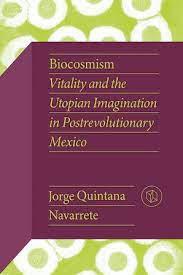
February 2024
244 pages History / Social History Rights: World

June 2024
288 pages
Political Science / Public Policy / Environmental Policy Rights: World
81
University
vanderbiltuniversitypress.com
Vanderbilt
Press






















































































































